GLAZE OF GLORY
How a historic British tilemaker is transforming surfaces old and new

Thinkstation P360 P54 Workshop kit guide P28 TECHNOLOGY FOR THE PRODUCT LIFECYCLE WHEELCHAIR DESIGN PORT-TO-PORT SEAGLIDER AI & SCENE GENERATION
CADsoma P46 FEBRUARY / MARCH 2023 | £6 | € 7 | $10 | DEVELOP3D.COM

©2023 Advanced Micro Devices, Inc. All rights reserved. AMD, the AMD Arrow logo, Radeon, AMD RDNA, Ryzen and combinations thereof are trademarks of Advanced Micro Devices, Inc. Other product names used in this publication are for identification purposes only and may be trademarks of their respective companies. PID#: 21771403 Ver#:02 smart performance. smart pairing. Get the ultimate software experience with up to a gigantic 32GB of lightning-fast framebuffer, high-performing hardware raytracing, optimizations for up to 6 ultra-high res HDR displays, and superior multitasking capabilities. All wrapped around an award-winning graphics architecture, called AMD RDNA™ 2 which is the proven graphics foundation for the leading, visually rich gaming consoles. The latest AMD Radeon™ PRO W6000 Series graphics is compatible with modern workstations offering additional optimizations for select AMD Ryzen™ based processors, harnessing the GPU’s and system’s full performance potential. #AMD #TogetherWeAdvance To learn more visit amd.com/RadeonPRO
EDITORIAL Editor Stephen Holmes stephen@x3dmedia.com
+44 (0)20 3384 5297
Managing Editor Greg Corke greg@x3dmedia.com
+44 (0)20 3355 7312
Staff Writer Claudia Schergna claudia@x3dmedia.com
Consulting Editor Jessica Twentyman jtwentyman@gmail.com
+44 (0)20 7913 0919
Consulting Editor Martyn Day martyn@x3dmedia.com
+44 (0)7525 701 542
DESIGN/PRODUCTION
Design/Production Greg Corke greg@x3dmedia.com
+44 (0)20 3355 7312
ADVERTISING
Group Media Director Tony Baksh tony@x3dmedia.com
+44 (0)20 3355 7313
Deputy Advertising Manager Steve King steve@x3dmedia.com
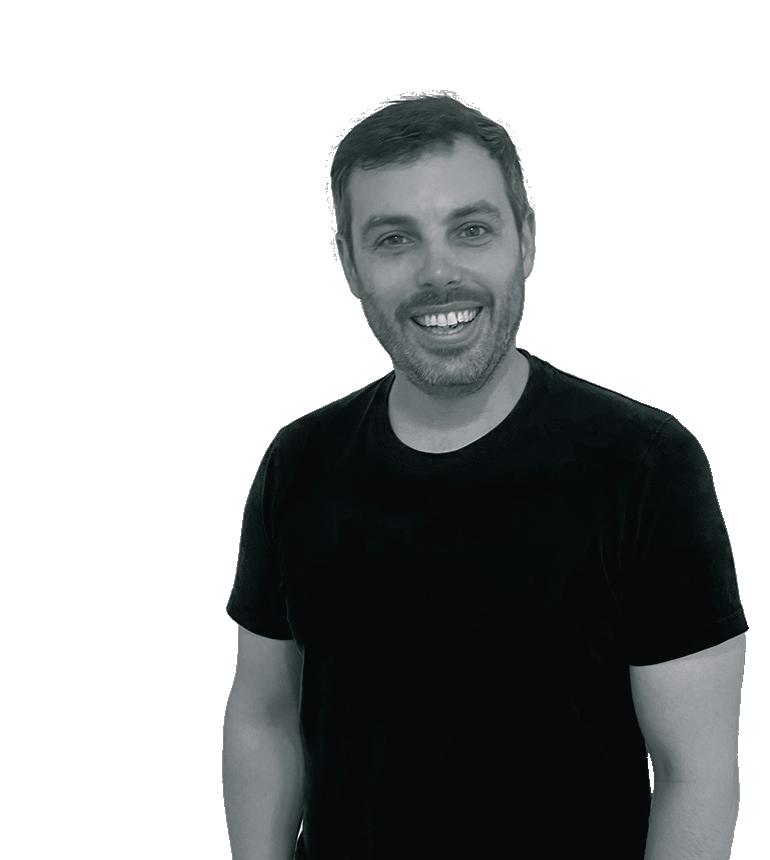
+44 (0)20 3355 7314
US Sales Director Denise Greaves denise@x3dmedia.com

+1 857 400 7713
SUBSCRIPTIONS

Circulation Manager Alan Cleveland alan@x3dmedia.com
+44 (0)20 3355 7311 `
ACCOUNTS
Accounts Manager Charlotte Taibi charlotte@x3dmedia.com


Financial Controller Samantha Todescato-Rutland sam@chalfen.com

Spring is a time of growth and renewal, so we’re firing into the new year with some excitingly fresh features.
Our cover story sees Claudia head to one of Britain’s oldest purveyors of tiling, to learn how digital tools keep it at the forefront of its industry. Craven Dunnill Jackfield has leveraged a university graduate scheme to enable its skilled craftsmen to increase production of even the most complex tiles, many of which feature in some glorious restoration projects.
While the D&T education sector remains under the cosh here in the UK, we managed to find some interesting glimmers of hope, with two comment articles this month from educators. These cover TEDI-London, the capital’s newest higher education provider devoted to engineering and design, and from across the pond, a viewpoint from Wayne State University in Detroit, Michigan, on how a new breed of mobile device-based design tools are democratising the teaching of key skills.
As CAD technology suppliers evolve their business models, there has been a significant reduction in the number of resellers, hindering customer adoption of useful third-party plug-ins. This issue, we find out more about CADsoma, which aims to become the ‘Amazon of CAD tools’, supporting these products and their developers, and introducing customers to new ways to get jobs done.
Given the hype and hope around new generative AI tools in many sectors, we also spoke to Paul Powers of Physna. When Paul realised that nothing really existed in this category for the 3D design sector, he and his team set out to build such a tool in just two weeks, with just three engineers, and training the AI on just 8,000 models. If such AI tools are to be the future, then this Physna project is definitely worth a closer look.
Equally, with ‘digital twin’ being the buzz term for all the major engineering software companies this year, we asked Laurence Marks to dig into what the term really means and how design processes might benefit.
Finally, if you’re planning to bring more prototyping in-house in 2023, then we’ve got a list of products that might just fill some gaps in your arsenal. From dinky desktop CNC mills to a tough-cutting waterjet, we’ll definitely have listed something that will have you eyeing-up that small patch of remaining benchtop in your workshop.
So there it is. You’ll be outside frolicking like lambs soon enough, but hopefully, this issue gets you through the remaining early nights and dark mornings.
DEVELOP3D.COM FEBRUARY / MARCH 2023 3
ABOUT DEVELOP3D is published by X3DMedia 19 Leyden Street London E1 7LE, UK T. +44 (0)20 3355 7310 F. +44 (0)20 3355 7319 © 2022 X3DMedia Ltd All rights reserved. Reproduction in whole or part without prior permission from the publisher is prohibited. All trademarks acknowledged Opinions expressed in articles are those of the author and not of X3DMedia. X3DMedia cannot accept responsibility for errors in articles or advertisements within the magazine
WELCOME DEVELOP3D.com facebook.com/DEVELOP3D @DEVELOP3D groups/DEVELOP3D Join our online community Stephen Holmes Editor, DEVELOP3D Magazine, @swearstoomuch
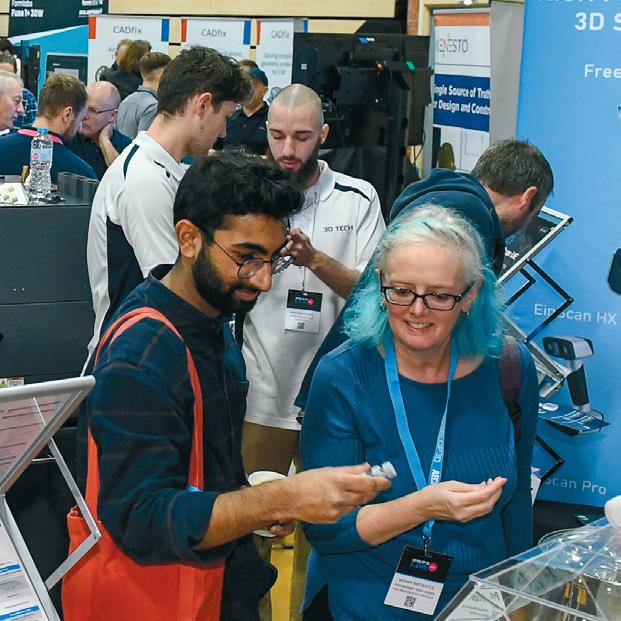
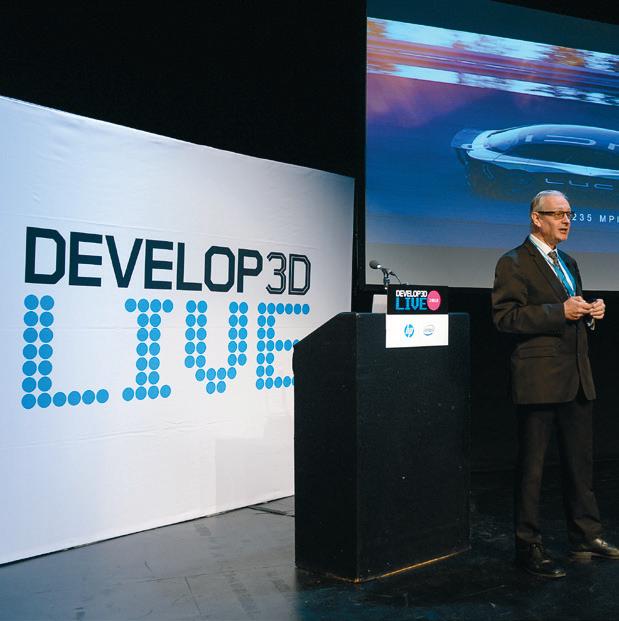
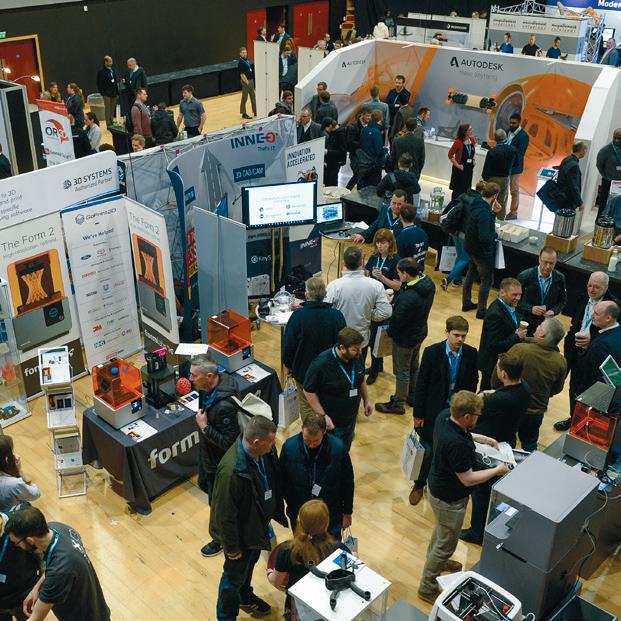
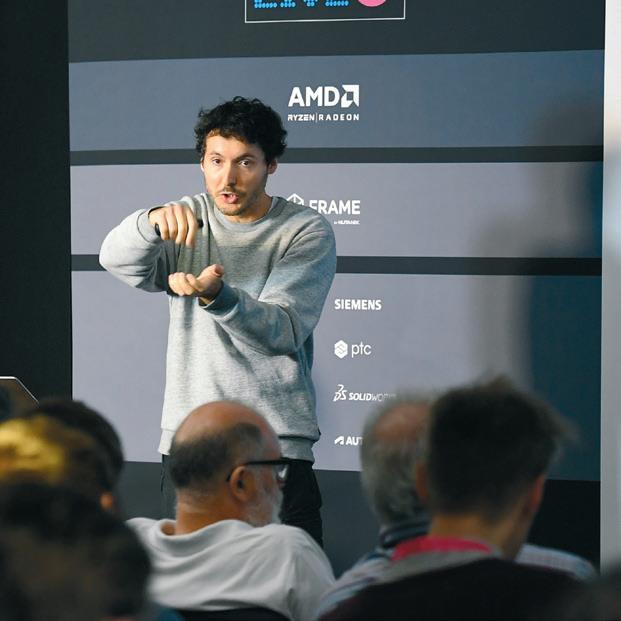

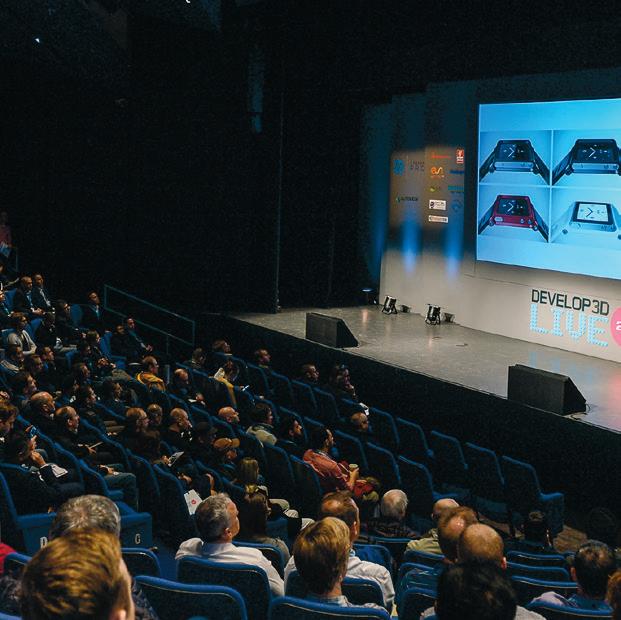
September 2023
Arts Centre, UK 2023 develop3dlive.com Accelerating product development to manufacture Save the date D3DLIVE returnstowhereitallstarted * *following£25mrenovations
20
Warwick
NEWS
Ultimaker launches new S7 3D printer, Formlabs unveils its Automation Ecosystem, Intel announces new mobile and desktop CPUs, plus lots more
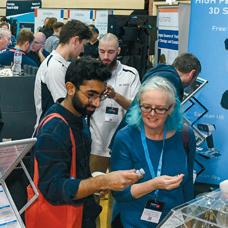
FEATURES
Comment: Claas Kuhnen on giving students new design tools
Comment: Judy Raper on real-life experiences in education
Visual Design Guide: GE Profile Smart Mixer
COVER STORY Traditional tilework meets technology

Workshop kit: D3D’s guide to the best prototyping products

Physna experiments with AI-enabled scene generation
New horizons: The Freedom One Series 5 wheelchair
Introducing CADsoma, a marketplace for third-party apps
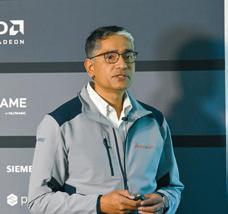
Opinion: Laurence Marks on digital twins and simulation

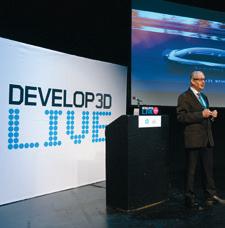
Port-to-port transport: Hop aboard the Regent Seaglider
REVIEWS
Lenovo ThinkStation P360 Ultra workstation
THE LAST WORD
With the December arrival of his baby son, Stephen Holmes had ample time on the maternity ward to consider how comforting a mundane but familiar object can be during challenging times
FEBRUARY / MARCH 2023 ISSUE NO. 138 6 10 12 14 20 28 38 42 46 48 50 54 58 The wood used to produce this magazine comes from Forest Stewardship Council certified well-managed forests, controlled sources and/or recycled material CONTENTS 2023 DEVELOP3D.COM FEBRUARY / MARCH 2023 5 20 September 2023 Warwick Arts Centre, UK
ULTIMAKER LAUNCHES NEW S7, WITH FOCUS ON EASE OF USE AND PRINT RELIABILITY
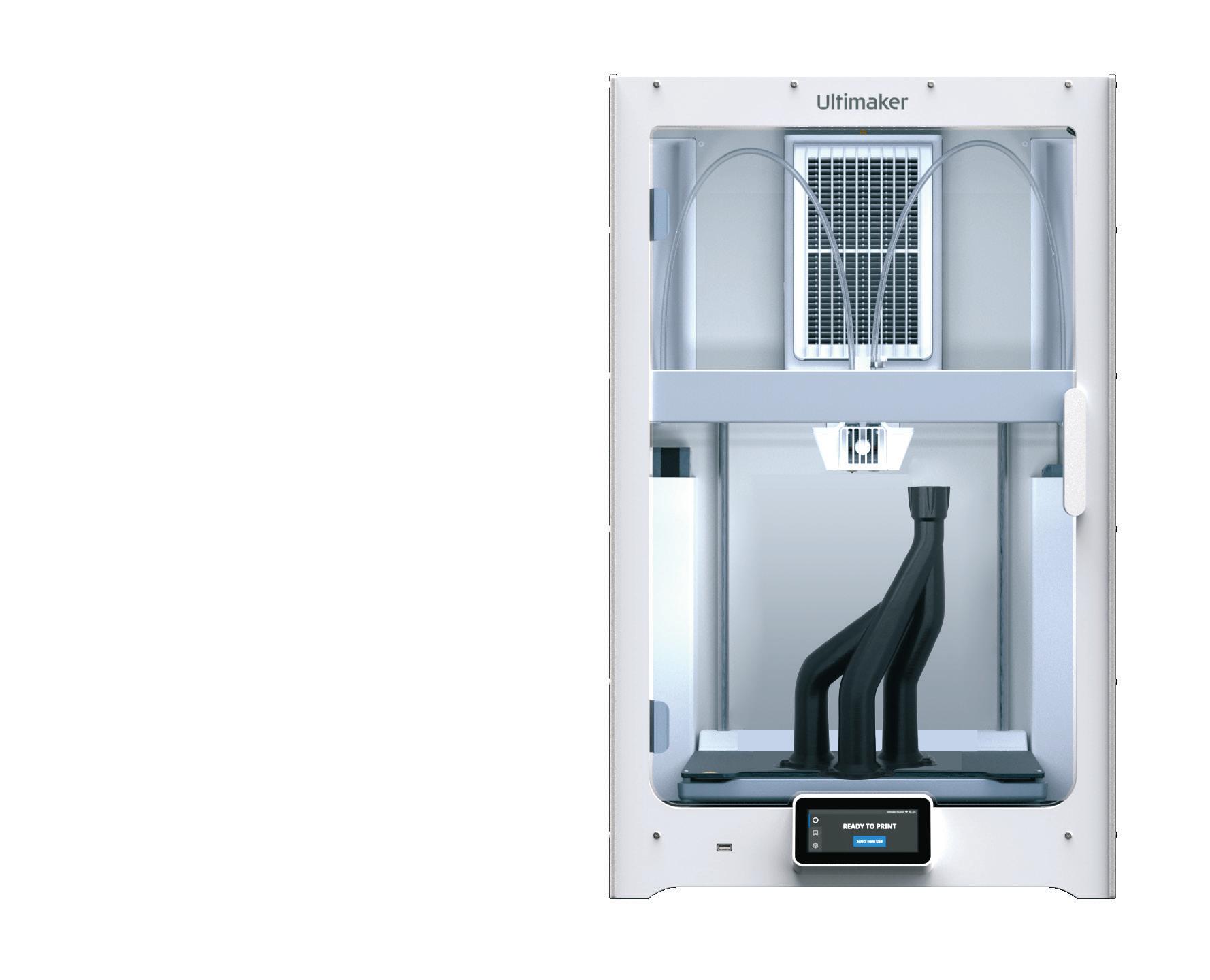
» The newest addition to the company's line-up of 'S' 3D printers is here, with a range of sensors and tweaks engineered to help users get every print right first time
The launch of the UltiMaker S7 3D printer gives us a first glimpse of the strong partnership that has been forged since desktop additive manufacturing stalwarts MakerBot and Ultimaker merged last year.
The S7 is an updated version of the popular UltiMaker S5, reportedly in use by over 25,000 customers. This new model gives users a large 330 x 240 x 300mm build volume. It also introduces a range of new features focused on ease of use and print reliability. A new flexible build plate makes removing prints a breeze. An integrated air filter is claimed to remove up to 95% of ultra fine particles (UFPs) and improves temperature regulation. The S7 also features improved automated bed levelling for reliable first-layer adhesion.
“The UltiMaker S7 is a fantastic addition to our S-Series of printers,” said UltiMaker CEO Nadav Goshen. “As more customers are using 3D printing to grow and innovate their business, our goal is to provide them with a complete solution to be successful.”
UltiMaker CTO Miguel Calvo explained that while the base electronics are “fundamentally the same” to those in the S5, the S7 has more sensors and tweaks to make sure every print is right, first time. Further wizards and walkthroughs with image guides have been added too,
so if issues are encountered, the user can quickly work to solve them using the guidance provided.
One of the key draws of the new 3D printer will be its compatibility with the UltiMaker ecosystem of over 200 materials, including those from third parties. The add-on Material Station will allow for six
“Cura’s the lead software. It’s the right software to use for an Ultimaker,” Calvo explained. “You will only get the best print quality, reliability and all that kind of good stuff using Cura, and Cura remains open source and we’re dedicated to continuing that development.” ultimaker.com
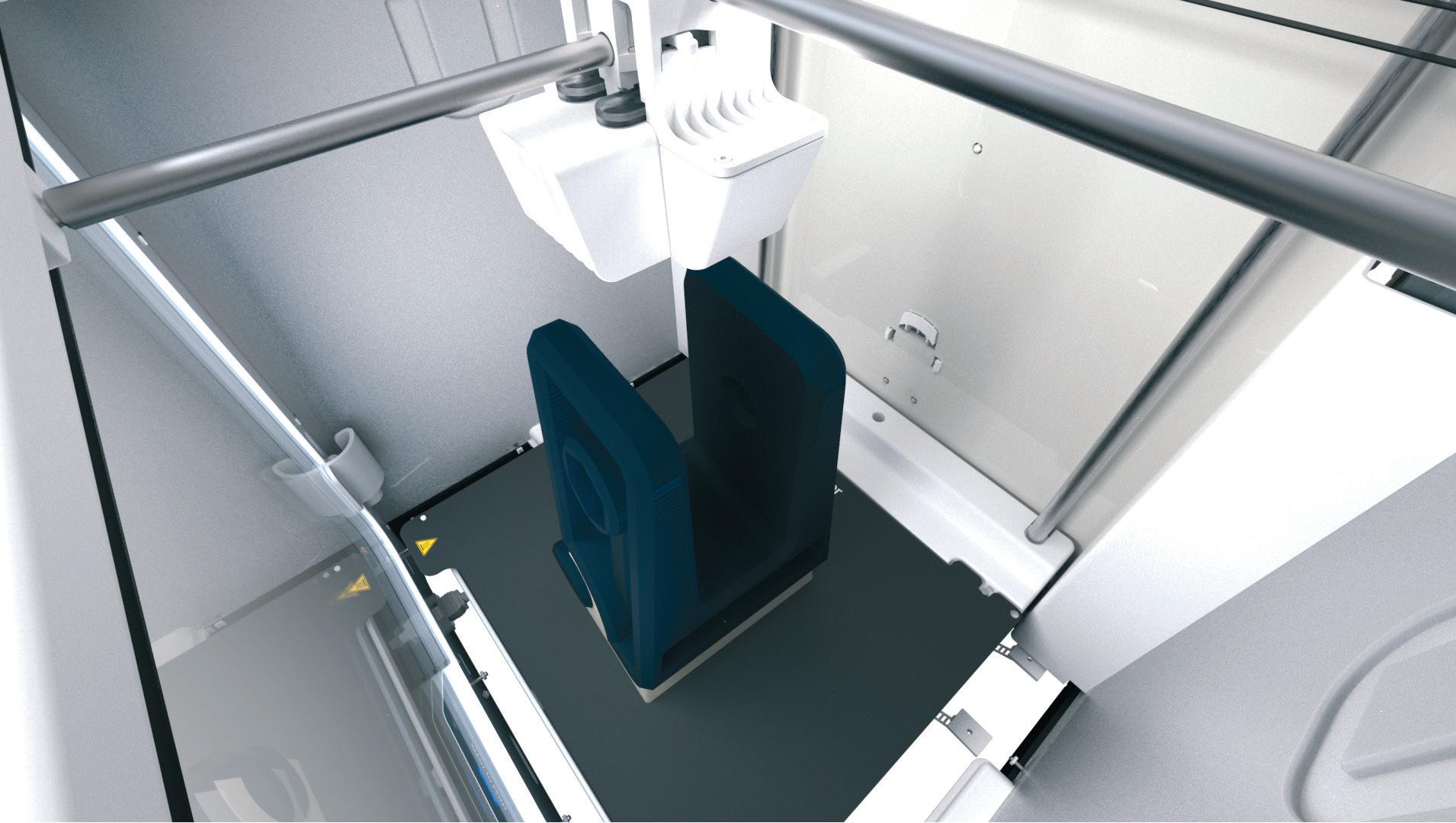
6 FEBRUARY / MARCH 2023 DEVELOP3D.COM NEWS
NEWS
A webcam view of the build chamber in the Ultimaker S7 with its updated build plate


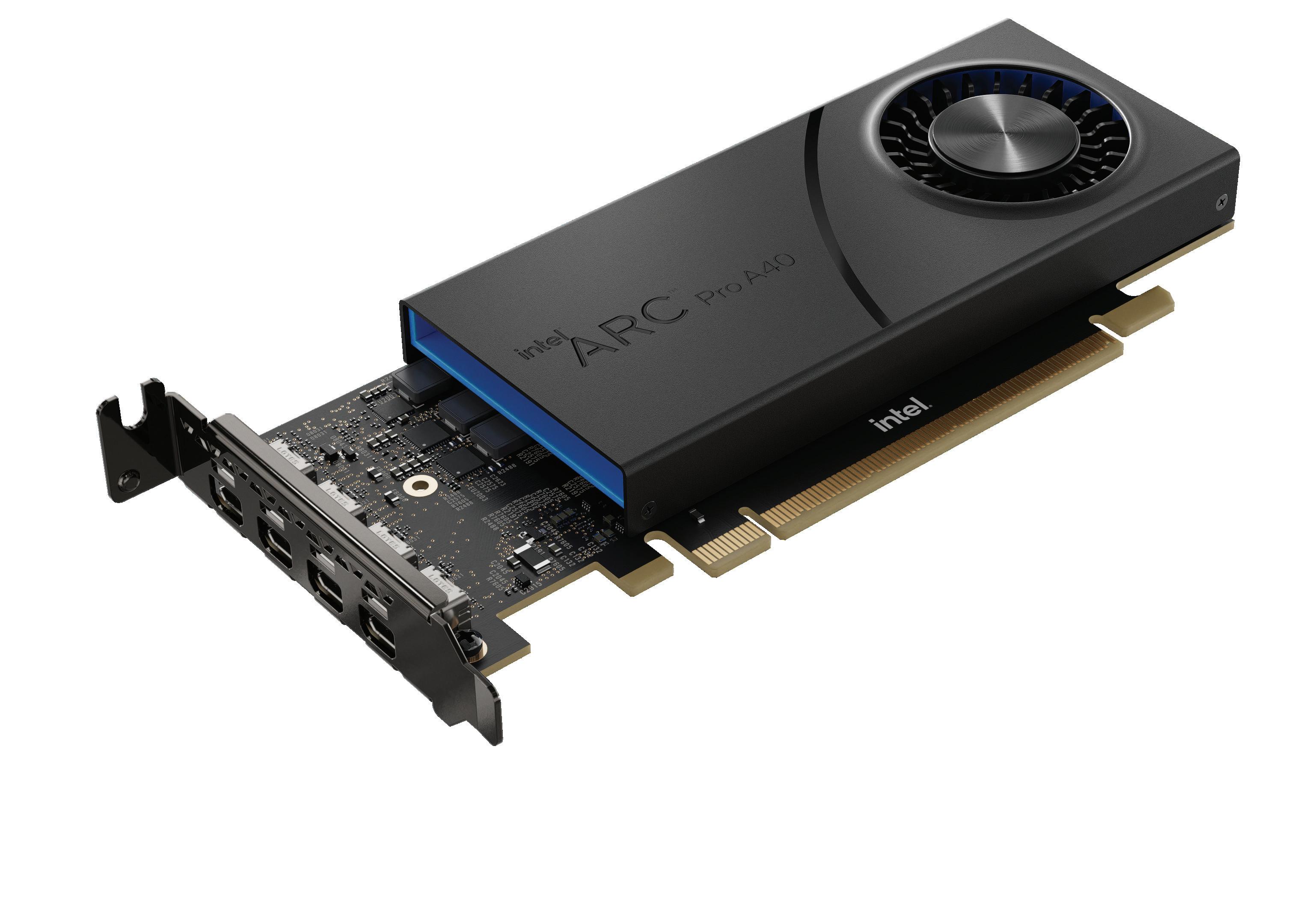
Intel® Arc™ Pro A40 GPU unites fluid viewports, the latest in visual technologies, and rich content creation in a condensed half height, half length form factor. • Ray Tracing Hardware Acceleration • Dedicated AI Acceleration • Industry First AV1 Hardware Encode • 6GB High Speed Memory • Software Certifications • Up to 4x Displays, with Audio Support and Latching Mechanism • Single Slot, Tiny Form Factor • Premium Components • Extended Warranty Professional Graphics Begins Here Intel.com/ArcProA40 © Copyright 2022 Intel Corporation. All rights reserved. Intel, the Intel logo, and other Intel marks are trademarks of Intel Corporation or its subsidiaries. Intel Arc Graphics is a trademark of Intel Corporation in the U.S. and/or other countries. Other names and brands may be claimed as the property of others.
FORMLABS AIMS TO BOOST 3D PRINTING PRODUCTIVITY
Fabrisonic intros smart build plate
Fabrisonic's new SmartPlate aims to improve 3D printing processes by analysing individual ‘pixels’ for sudden vector changes, a tell-tale sign of build issues.
In effect, SmartPlate is a build plate that incorporates optical strain gauges and thermal sensors. In tests involving a problematic PBF build, Fabrisonic execs claim that the SmartPlate picked up significantly more information from an initial build than from the bulk stress state. Research into the product continues, with the team recently upgrading an EOS M290 with a SmartPlate for quality monitoring.
www.fabrisonic.com
Formlabs has introduced the Automation Ecosystem, with the aim of delivering new levels of 3D printing productivity. Automation Ecosystems comes with Form Auto, for back-to-back throughput; Fleet Control, for advanced fleet management; and a High Volume Resin System for high-capacity printing.
According to Formlabs executives, the Automation Ecosystem will reduce the amount of operator labour required and minimise idle printer time. They claim that 24/7 printing will enable users to efficiently produce end-use parts, prototypes and customisable products at a lower cost per part.
The Automation Ecosystem was formally launched at CES 2023 in Las Vegas, where attendees had the opportunity to check
out first-hand the new system’s ability to produce back-to-back prints, non-stop and without an operator.
As organisations expand their 3D printing set-ups from one printer to multiple printers, the Automation Ecosystem is designed to make the transition smoother, without adding management complexity.
“The Formlabs Automation Ecosystem is a seamless solution for ramping up production with 3D printer fleets, staying true to the ease of use of all Formlabs products, so anyone can make anything,” said Formlabs chief product officer David Lakatos.

Formlabs users recently achieved a “major milestone”, he added: more than 100 million parts have been printed to date using the company’s machines. www.formlabs.com
Intel unveils new mobile and desktop CPUs
Intel has kicked off 2023 with the announcement of a raft of new CPUs for mobile and desktop machines, as well as a teaser relating to forthcoming workstation processors.
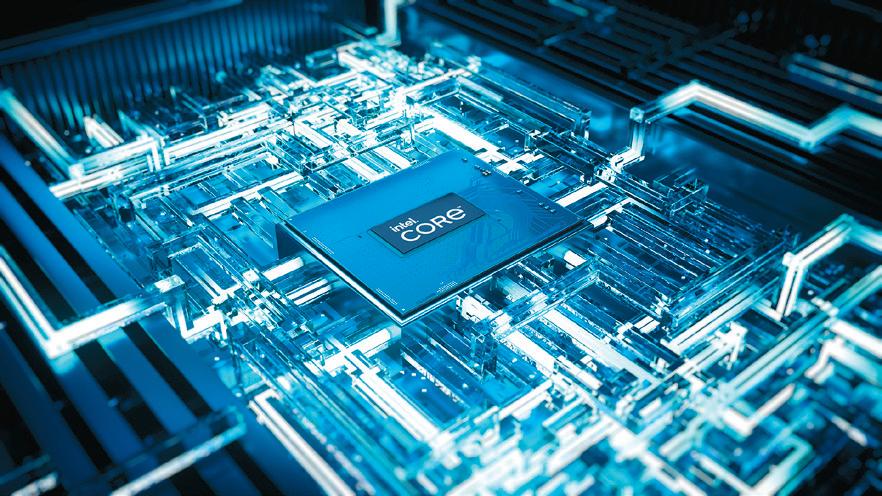
New launches include the 13th Gen Intel Core mobile processors, new 13th Gen Intel Core desktop processors and Intel Xeon W processors (Sapphire Rapids), which pave the way for new workstations.
The big news is that Intel has added more cores to its mobile chips, with up to 24 (8 P-cores and 16 E-cores) for the HX-series, and up to 14 (6 P-cores and 8 E-cores) for the H-Series and P-series.
On the desktop, Intel has expanded its family of 13th Gen Intel Core processors with new 35W and 65W models that look well-suited to budget-conscious CAD users. It has also launched the ‘special edition’
Simcenter 2023 updates begin
The latest release of Simcenter from Siemens Digital Industries Software includes a slew of new updates, as well as new capabilities specific to automotive and aerospace.
In particular, the company is targeting the revolution in automotive electrification, by breaking down the silos that typically exist when it comes to mechanical simulation for various aspects of electric vehicle (EV) powertrains. This includes the analysis of e-motor design, transmission, NVH (noise, vibration and harshness) and acoustics.
www.sw.siemens.com
New UltraSharp monitor from Dell
Dell has announced the UltraSharp 32 6K Monitor (U3224KB). This is its first 6K resolution monitor and also comes with IPS Black technology, designed to provide higher contrast and deeper blacks.
Intel Core i9-13900KS, with a record 6.0 GHz max turbo frequency out of the box. Finally, Intel has shared some brief details of its forthcoming Intel Xeon W-2400 and Intel W-3400 Series workstation processors, codenamed Sapphire Rapids.
www.intel.com
The new monitor is targeted at detail-oriented professionals engaged in activities where every pixel counts: designers, engineers and data scientists, for example. A resolution of 6K offers around 150% more pixels than 4K, and this is boosted by the inclusion of IPS Black technology, which means an increase in depth for dark objects, even in dark environments, and also in colour accuracy, especially for low greys.
www.dell.com
8 FEBRUARY / MARCH 2023 DEVELOP3D.COM NEWS
The Formlabs Automation Ecosystem aims to help users make the transition from one 3D printer to a fleet of machines
VRGINEERS AND IMRNEXT SHOW OFF NEW VR HEADSET
Vrgineers has released its new wireless high-fidelity VR headset XTAL, developed in partnership with IMRNext, at the CES 2023 show in Las Vegas.
Executives from the company, a manufacturer of virtual and mixed reality (VR/MR) headsets for professionals, explained that the XTAL has been developed to address the switch from tethered to standalone headsets that give users more freedom and comfort.
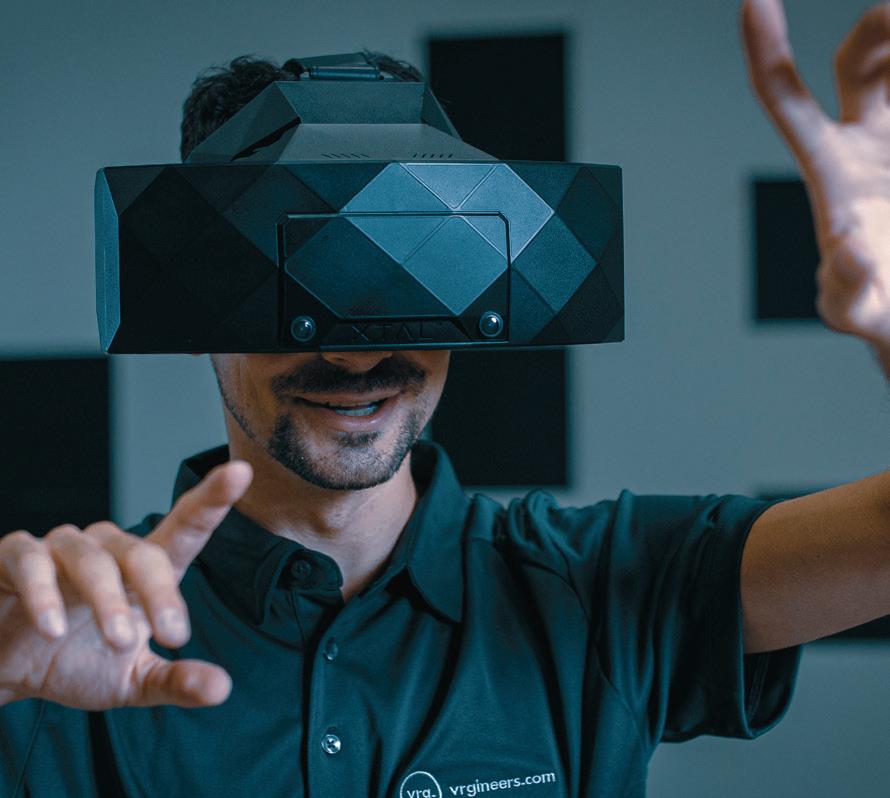
In contrast with many other solutions currently available, the new XTAL headset targets high-end customers who are unable to run demanding applications from mobile cores and need fully performing computers in order to calculate their VR content.
“As a supplier to the defence industry, we strongly believe that the wireless XTAL will be the best choice for such use cases as machine and aircraft maintenance, rescue or fire-fighting operations, as well as special forces training. Everywhere where total immersion, freedom and high performance is a must,” said Vrgineers CEO Marek Polcak.
The XTAL headset will natively run 4K resolution per eye, which requires a very substantial bit rate. In order to achieve a smooth wireless experience, Vrgineers has developed a special mode that runs a compressed resolution of 2560×1440 at 70Hz per eye, which IMRNext’s proprietary technology transmits using Wi-Fi 6E.
Instead of placing the antenna on the head, as is the case with other headsets, Vrgineers decided to create an on-belt module. This includes a powerful battery
pack with adjustable power capacity and wireless antennas.
As a result, the overall weight of the headset should remain the same, while wearing an extra weight on the belt should make wireless usage more convenient.
The prototype that Vrgineers and IMRNext showed off at CES weighs 920 grams and is of comparable size to an SLR camera. However, the final version is expected to weigh under 500 grams and be of similar size to a mobile phone.
The computer connects one USB and display port from the GPU into a proprietary IMRNext Wi-Fi access point, which converts the signal into Wi-Fi 6E and streams it directly to the on-belt module. As a cable-free solution, the XTAL should support “more dynamic use case scenarios”, executives claim.
www.vrgineers.com | www.imrnext.com
BCN3D gives Epsilon Series a major update
BCN3D has given the Epsilon Series its first major update since the product line was launched in 2020, with new features aimed at providing a productivity boost for users of the benchtop machines.
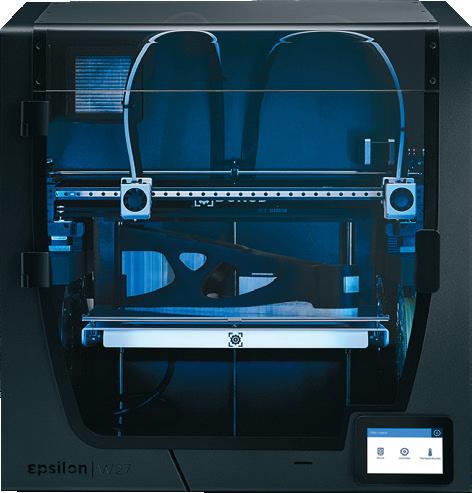
A new heated ventilation system lowers internal pressure and lets the interior absorb air from outside.
New Trinamic TMC2226 motors drive the machine quietly and with greater efficiency and provide better engine torque while staying cool.
The new generation sees the
ROUND UP
Ansys has acquired particle dynamic simulation software Rocky, which enables users to understand the behaviour of discrete solids and particle-laden free-surface flows in order to reduce waste, improve product quality and uniformity, and meet sustainability targets www.ansys.com
The Science Museum in London is to open a new Engineers Gallery in June 2023. This will celebrate the UK’s engineering heritage and showcase innovation through the lens of the Queen Elizabeth Prize for Engineering, featuring current and past prize winners www.sciencemuseum.org.uk
Among Maxon’s first updates for the year is Redshift integration for ZBrush. This is to enable artists who create highquality renders using ZBrush's digital sculpting software to adopt new workflows that support subsurface scattering and object-based emissive light generation www.maxon.net
introduction of a custom-made signal board for the Epsilon Series. This was designed specifically for BCN3D products, and concentrates the main features onto one single board, as opposed to several commercial pieces implemented in various areas of the printer.
Newly added local network access means that files can be sent to the printer remotely, and jobs monitored, paused and cancelled remotely as well.
The updated Epsilon Series, which includes the W50, W27, W50 SC and W27 SC, is now available for purchase.
www.bcn3d.com
The Additive Manufacturing Users Group (AMUG) has announced its keynote speakers for its 2023 conference in Chicago, 19-23 March. They include Robert Ducey of Laika Studios, Nicholas Jacobson of the University of Colorado’s Anschutz Medical Campus and Max Haot of Launcher www.amug.com
The SprutCAM X Robot online library for CAM simulation now includes models of almost 700 robot mechanisms from worldrenowned manufacturers including KUKA, ABB and Universal Robots, as well as a programming environment for simulating robot/user interactions www.sprutcam.com
DEVELOP3D.COM FEBRUARY / MARCH 2023 9
The combination of the XTAL headset with its on-belt module delivers a wireless AR/MR experience
The upgraded Epsilon Series printers offer a new aesthetic, upgraded electronics and XYZ autocalibration
the
Since I started to study design 22 years ago, technology has advanced radically, not only transforming our classroom, but also giving us the ability to innovate even the process we use when designing.
As an educator, this is very important, because it not only provides a solution to accessibility issues (hard and software cost) and further democratises design, but it also enables students who all have different skill sets to productively participate.
In my teaching philosophy, the guiding narrative is: ‘Why do we teach something?’ Traditionally in industrial design, sketches are valued more than 3D modelling in CAD, because it is often assumed that sketching is faster and more productive.
This way of thinking, in my experience, is often based on an incorrect and limited understanding of what 3D modelling can be. In short, with the correct tool, one person might 3D model just as fast as another person could illustrate their ideas via sketching. The reverse of this is that elaborate and detailed marker renderings can take as long as detailed CAD models.
To my surprise, in education, the ‘sketch first, 3D model later’ process is still very common. This ignores the human aspect: students have different abilities. Some are better sketchers, some are better 3D modellers. And, unfairly, students who can draw are often valued more. It’s assumed that they are more creative, because they can express their ideas better and faster.
As an educator, my task is not to provide an apprenticeship-like education that forces students through one narrow tunnel of accepted methods and tools.
Instead, it is to provide students with a solid general foundation, and then give them diverse options to further develop their skill sets, based on their own interests, resulting in very unique and individual design personalities.
And by diversifying teaching tools and methods, you can also help each student to improve in areas where they are weak.
As designers, we are not artists. We present information. It should not matter how we arrive at the final proposal – but more that we do arrive there.
Sketching is two-dimensional and allows you to quickly explore orthographic studies or details. Perspective sketches, on the other hand, are more time-consuming to create accurately.
In contrast, 3D modelling allows me to experience an idea more from a threedimensional aspect. I can rotate and evaluate proportions in a way I can’t with hand sketching. And it is true that quick local edits in a 3D model can be labourintensive compared to quick sketch studies.
The point I am making is that each method has its advantages but also its disadvantages. The beauty of mixing the two together is that they inform each other.
NEW DIRECTIONS WITH IPADS
I started the iPad programme in my department at Wayne State University, and it radically transformed how students operate in my classroom, because of two apps: Shapr3D and Concepts.
Shapr3D’s parasolid 3D modelling comes with an incredibly intuitive interface and workflow. It provides a very fresh approach to 3D modelling by not abiding to traditional CAD workflows and instead puting the designer in front. In Shapr, 3D modelling feels more like 3D drawing.
Concepts also provides a very different approach and toolset to assist creative minds. Instead of going with the usual pixel-based workflow, it uses paths, which can be styled to look like a pencil, marker, airbrush and other tools, enabling a student to adjust literally every single stroke created afterwards, when cleaning up or changing sketches, without the need to redo parts.
To top this, Concepts also allows you to sketch with a scale, measuring your lines even while you draw and enabling you to precisely understand the dimensions of your work.
This is an incredible emotional liberation, because students know that there are
no time-costly mistakes anymore. This promotes more ‘fearless sketching’ and designs are proportionally correct.
This all runs on an iPad, giving students the ability to work when and wherever they want. In addition to mixing 3D and sketching via overlays in Concepts to document their work, students can also make use of various LiDAR and photogrammetry-based apps to digitise objects and include them in their design process as a precise 3D blueprint underlay reference.
Now imagine a workflow where a student creates a basic 3D model of a hairdryer. They create a screenshot, mark up the handle brown and let an AI app like Draw Things on the iPad generate material. They then document and analyse this in Concepts to develop their ideas in Shapr 3D, versus the common ‘sketches and marker/ photoshop renderings’ way of teaching.
The recent invention of AI in image processing will, in all probability, further change how we use 3D rendering, since AI can now be based on depth data, adjusting basic 3D models respecting the threedimensionality.
I entered design education due to my own enjoyment from learning and experimenting with technology. Now is an amazing time to teach, implementing this in my classroom and giving students the ability to inject that new understanding into the industry once they graduate.
ABOUT THE AUTHOR: Claas Kuhnen is an assistant professor for interior and industrial design at Wayne State University, focusing on a modern and interdisciplinary approach to digital 3D design methods and technology. He’s on Twitter: @claaskuhnen

10 FEBRUARY / MARCH 2023 DEVELOP3D.COM
COMMENT
Teaching
next generation of designers and giving them a competitive edge can be achieved without sacrificing your teaching ideals, writes Claas Kuhnen of Wayne State University in the US
In my teaching philosophy, the guiding narrative is: ‘Why do we teach something?’

Are you looking for growth opportunities? CADSOMA | CAD Solution Marketplace Be one of the first – sign up as a reseller on cadsoma.com Hello CAD developers!
Positive change starts with changing the way that we educate future
engineers,
writes
Judy Raper, Dean and CEO of TEDI-London, the Capital’s newest higher education provider devoted to design and engineering
When I was given the chance to become Dean and CEO of The Engineering & Design Institute London (TEDILondon), a new engineering higher education provider looking to embrace a completely different way of doing things, I knew it was an opportunity I couldn’t pass up.
Why? TEDI-London exists to meet some of the longstanding needs of our profession: for a diverse workforce and for well-rounded, work-ready graduates, who understand how society will use the solutions they develop. We need innovators who are conscientious, contextually aware and environmentally focused.
The good news is that, through moving away from traditional education models, it is possible to meet our industry’s needs. And given that future engineers will have a key part to play when it comes to solving the increasingly urgent global challenges we’re facing, it has never been more important for us to prepare them properly.
DIVERSITY MATTERS
To help achieve this, we need to modify processes that impact aspiring engineers before they even apply. Nine times out of 10, candidates are required to have completed a Maths A level, or equivalent qualification, to study engineering. Given that females, members of ethnic minority groups and those from lower socioeconomic backgrounds are statistically less likely to pursue a higher-level maths qualification, are traditional admissions processes a barrier to outcomes we desperately need?
Granted, engineers need to have an aptitude for maths. But this can be assessed as part of the admissions process and built into the degree itself; we needn’t rely on students having prior knowledge.
From my experience, if a candidate can demonstrate the ability to carry out basic mathematical problem-solving, they have the aptitude to succeed as an engineer. Their preference for arts or humanities
subjects at age 16 shouldn’t be the reason why their ambition to join our profession is thwarted. What’s more, teams with a blend of different creative and technical skills develop better solutions. Innovation requires creativity, so students with nonmathematical backgrounds should be welcomed, not discouraged.
At TEDI-London – and a handful of other providers – this is working already; the option for applicants without a maths background to take either an aptitude test or maths refresher course has led to a more diverse student population, with females comprising 41% and members of ethnic minority groups comprising 59% (at the time of writing).
WORKPLACE PREPARATION
Once they enter the workplace, how often do engineers attend lectures or exams? Despite not being representative of a working environment, degree programmes are often centred around lectures, with students rarely undertaking practical work in their first couple of years.
Students need to learn theory, but it’s practical application that often motivates them and makes it stick. A project-based curriculum gives students the chance to see how their knowledge applies to real-life examples. What’s more, it enables them to naturally develop the workplace skills that graduates tend to lack, like project management, commercial awareness, communication and adaptability.
If every engineering student was able to apply their knowledge within a project team where they become familiar with collaboration, planning and time management, drawing upon each other’s strengths and communication, they’d surely develop a more well-rounded skillset.
Assessing students through their project work helps them gain valuable experience in producing reports, presentations, prototypes, and portfolios. By the time they graduate, they’ll be comfortable with delivering presentations, written communication, critical analysis of their
own and others’ work, and conveying information to different audiences, both within and outside the industry.
INSTILLING POSITIVE VALUES
Given that engineers have the power to use their knowledge and skill to help tackle our global challenges, I’ve always wondered why ethics is presented as a standalone module at the end of most programmes, rather than being threaded throughout. If students aren’t expected to think carefully about the social, environmental and economic consequences of their ideas, how can we expect them to do so after graduation?
Adopting a project-based model, where each project is centred around the UN Sustainable Development Goals, and where students design solutions for local stakeholders such as businesses and charities works wonders when it comes to embedding ethical values.
Given the opportunity to practice applying these thought processes, students realise first-hand how important sustainability, social and fiscal responsibility and ethics are in real-life projects. Plus, properly conducting research to understand the needs of stakeholders and end users as part of every university project establishes good habits for an entire career.
From what I’ve seen at TEDI-London so far, I truly believe that disrupting the status quo is what engineering education needs. Giving diverse student teams opportunities to contribute before they graduate motivates them to consider the consequences of their work and draw on the skills and perspectives of their peers. The production of high-quality solutions to real problems attracts a wider pool of diverse talent – and so the virtuous cycle continues.
ABOUT THE AUTHOR: Professor Judy Raper has worked as TEDILondon’s Dean & CEO since its incorporation in June 2019. During her career, Judy has been named one of Australia’s 100 most influential engineers, one of Australia’s 10 leading female engineers in 2019, and has received an award for leadership in engineering named in her honour from UNSW Sydney

12 FEBRUARY / MARCH 2023 DEVELOP3D.COM
COMMENT
Students need to learn theory, but it’s practical application that often motivates them and makes it stick
We offer you the platform – you do the business. Publish your first plugin in the CAD Solution Marketplace and start selling! Selling CAD plugins has never been easier CADSOMA.COM It’s here! Independent CAD marketplace Use your own PayPal or Stripe account for billing Promote your CAD plugins
VISUAL DESIGN GUIDE GE PROFILE SMART MIXER

This thoroughly modern mixer enables users to blend and whip to perfection, thanks to Wi-Fi connectivity, voice control, overthe-air data and its very own app
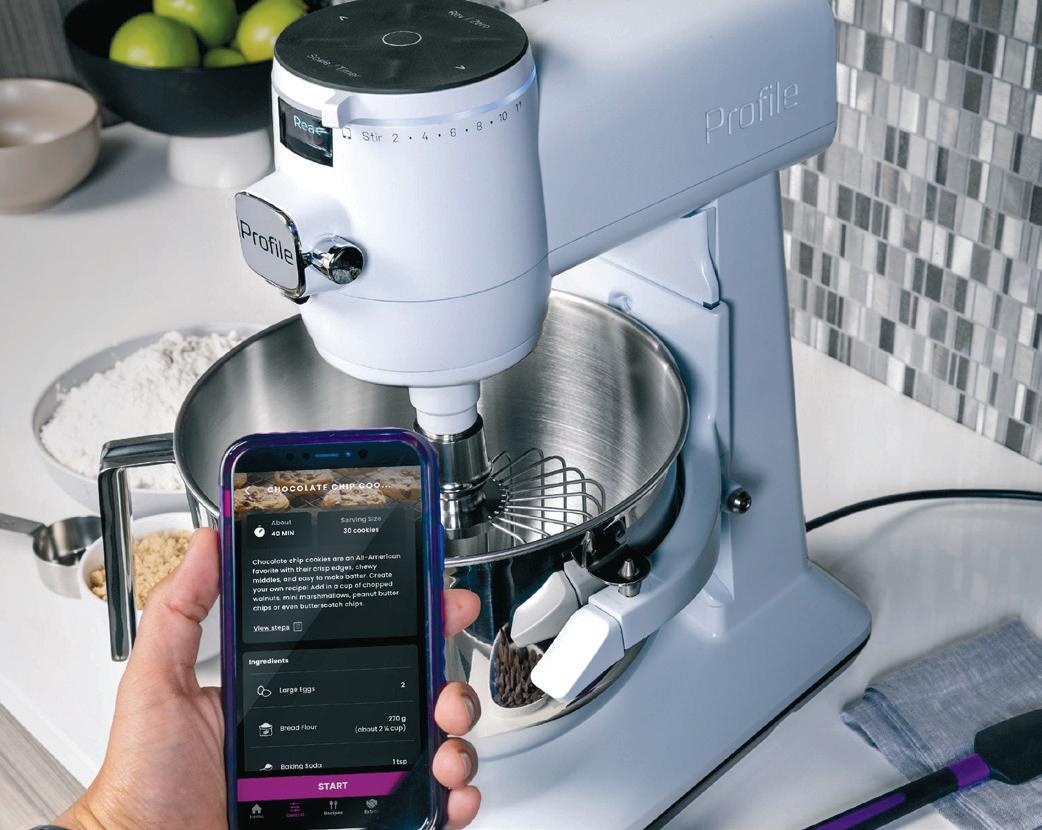
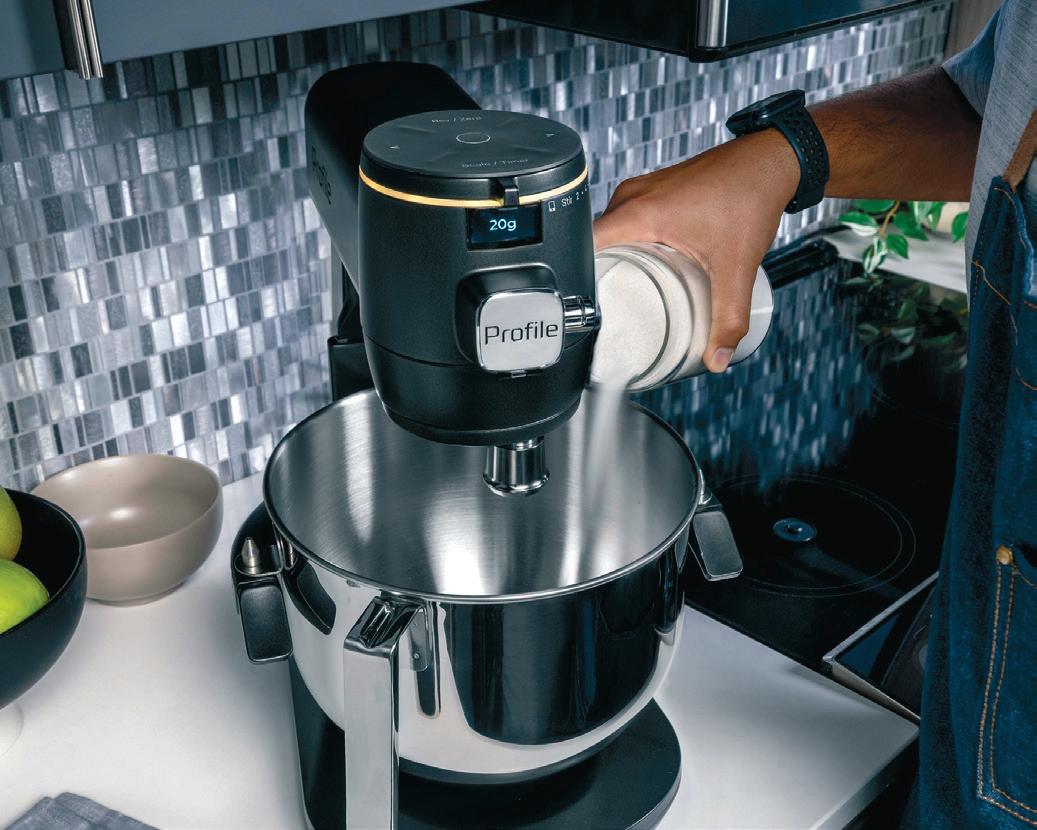
EASY TRANSITIONS
A simple one-click design allows bakers to change attachments with a simple snap, thanks to a lift-and-lock design that has been developed for easy use by both right- and left-handers
ALL-INCLUSIVE
A built-in smart scale weighs ingredients directly in the mixing bowl, so users get exact measurements without needing additional kit
NO MORE DESSERT FAILS
14 FEBRUARY / MARCH 2023 DEVELOP3D.COM
Auto Sense Technology monitors changes in texture and viscosity through motor torque feedback. A shut-off feature eliminates the risk of over- or undermixing fails
GUIDING LIGHT
A profile light ring and digital display show the status of your stand-up mixer. Users get a mode indicator, countdown timer, progress bar and speed level indicator to keep everything under control, all of which can be seen from across the kitchen
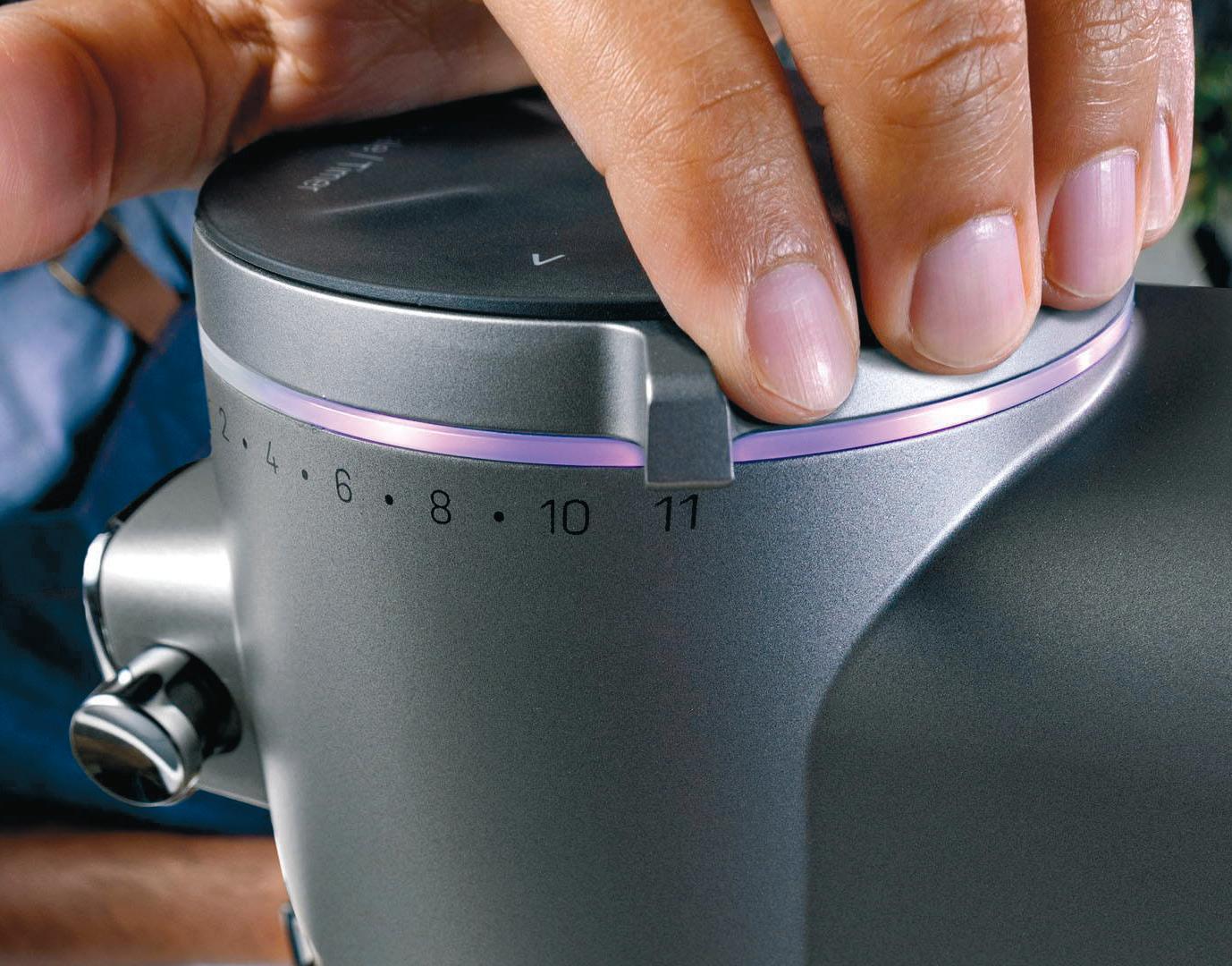
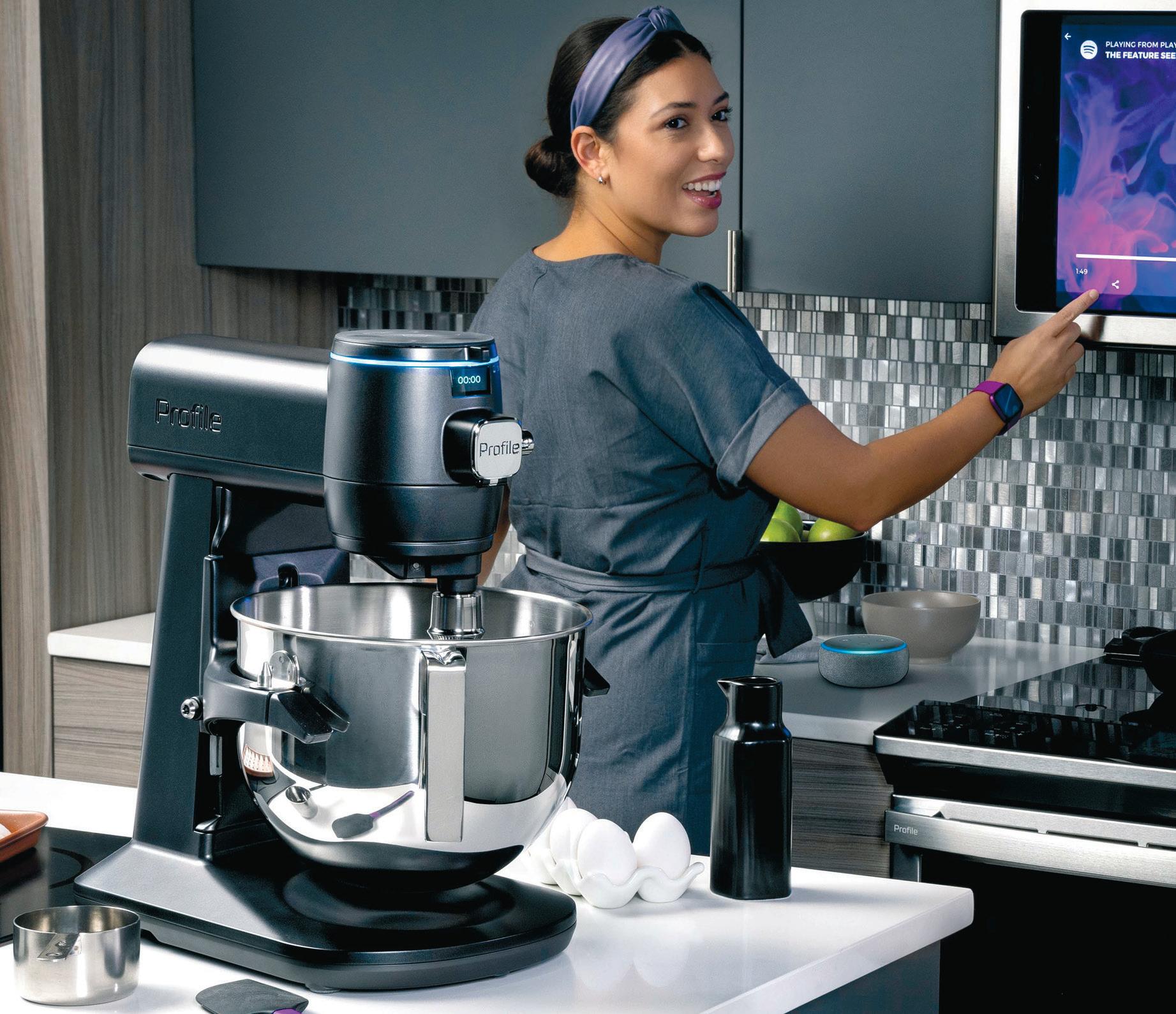
POWERFUL MIXING
A new brushless digital motor system, engineered to run at a low temperature for extended life, delivers speeds as high as those of a blender, allowing bakers to emulsify to perfection in record time

DEVELOP3D.COM FEBRUARY / MARCH 2023 15
THE POWER OF SMALL
Lenovo ThinkStation P360 Ultra
Everyone loves a compact workstation. They save valuable desk space - both at home or in the office - and are easy to re-locate. And at just 3.9 litres in volume, the Lenovo ThinkStation P360 Ultra is one of the smallest out there. But unlike other sub4-litre machines, this innovative new workstation has few compromises when it comes to specifications and performance.
In fact, the ThinkStation P360 Ultra has many of the hallmarks of an 8-litre Small Form Factor (SFF) workstation, even a standard desktop tower, which is typically five or six times larger by volume.
But what does this mean for product designers, engineers, and manufacturing professionals – the very people that push the limits of powerful pro software, including CAD, visualisation, simulation, and CAM?
This article focuses on three of the leading components within the ThinkStation P360 Ultra – GPU, CPU, and memory - and explores what they mean for the most demanding product development workflows.
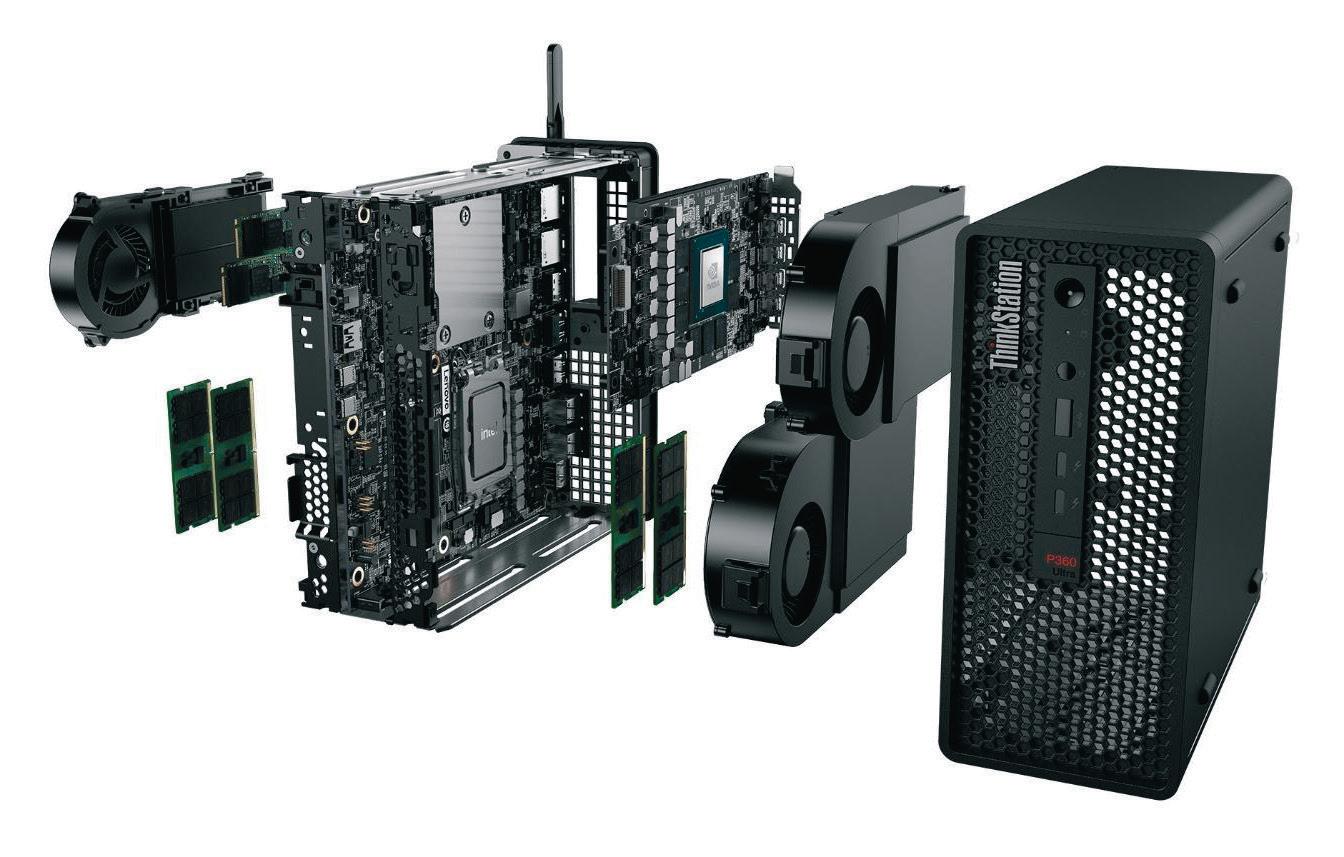
GPU (Graphics Processing Unit)
The GPU is traditionally one of the big compromises of a small workstation. Sub-4-litre machines are typically limited
to entry-level professional GPUs. These are fine for pure 3D design work, as the graphics requirements for most 3D CAD applications are relatively low. However, for more demanding workflows, entrylevel GPUs often fall short.
The ThinkStation P360 Ultra breaks the mould with the option of a much more powerful GPU than other machines in its class. The NVIDIA RTX ™ A5000 laptop GPU with 16 GB of VRAM is a big jump up
RTX A5000 laptop GPU into a desktop chassis, Lenovo developed a custom MXM board driven through a PCIe standard riser. Currently, no other major OEM offers anything similar for such a powerful workstation-class GPU.
Processor (CPU)
The ThinkStation P360 Ultra offers an extensive choice of 12th Gen Intel ® Core ® processors, making it extremely well suited to a wide range of product development workflows. This includes 35-watt, 65-watt and 125-watt processors, up to the Intel Core i9-12900K, which has 8 Performance-Cores and 8 Efficient-Cores for a total of 24 threads.
from the NVIDIA RTX ‘2000’ or ‘3000’ class GPUs often found in compact workstations. It means the ThinkStation P360 Ultra can be used for a much wider range of workflows beyond CAD, including Virtual Reality (VR), GPU rendering, and real-time visualisation. It delivers both faster processing and expanded memory to handle very complex datasets.
In order to fit the powerful NVIDIA
In contrast, some competitive workstations only offer 35-watt or 65-watt CPUs. This gives the ThinkStation P360 Ultra an advantage, particularly in highly multi-threaded workflows such as ray trace rendering, engineering simulation, and CAM, where more power means more cores can run at higher frequencies, minimising the time it takes to render, solve or generate complex multi-axis toolpaths.
With a max turbo frequency of 5.2 GHz, the Intel Core i9-12900K processor also delivers excellent single threaded performance which is important for CAD and for general operations.
Despite its super compact form factor, Lenovo’s new high-performance workstation can support the most demanding workflows, empowering product designers and engineers now and well into the future
SPONSORED CONTENT
SMALL
But performance is not just about specifications – components need to be expertly engineered within the workstation to deliver on their full potential. 125-watt processors produce more heat, so to maintain the highest frequencies, they need to be kept cool. And this must be done over a sustained period. In design visualisation, for example, multiple frames of an animation can take hours to render, so it’s important that processors don’t clock down after a few minutes.
A small chassis brings significant thermal challenges, but the ThinkStation P360 Ultra excels thanks to its advanced cooling system, which has been optimised by Lenovo’s thermodynamics engineers with the help of computational fluid dynamics (CFD) software. The unique design features a motherboard that resides in the middle of the chassis, thus allowing for active components on both sides. This dual chamber design allows for better isolation of high thermal components (i.e. CPU, GPU and storage) thus maximizing thermal dissipation, and helping get the very best out of the powerful 125-watt processor.
Memory
Thanks to a close collaboration with Intel, the ThinkStation P360 Ultra stands out from the competition because
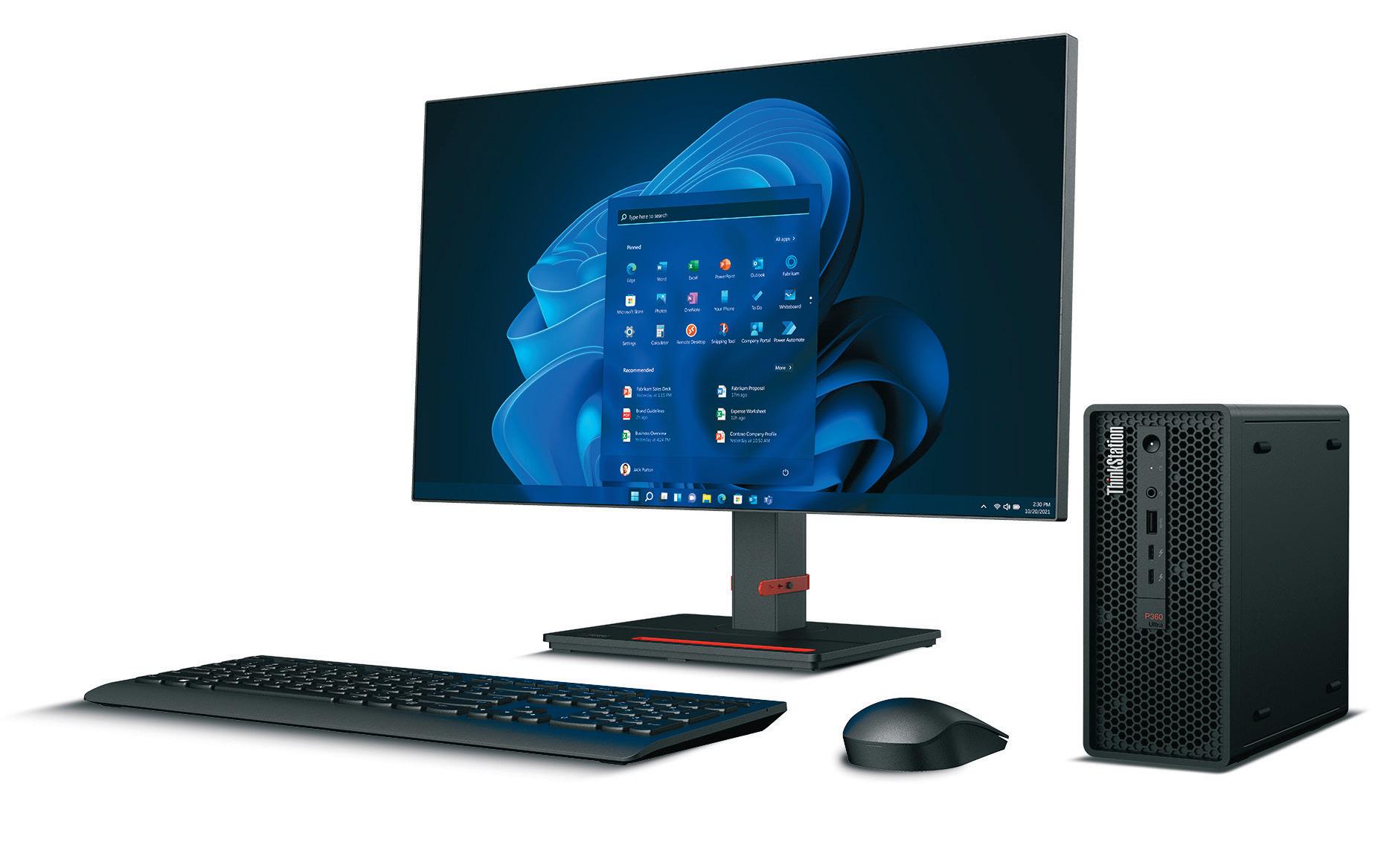
it can support up to 128 GB of memory. 128 GB is double that of other sub-4-litre workstations, which typically max out at 64 GB.
While most mechanical CAD assemblies will fit comfortably into 64 GB, some of the larger datasets used in product development - both upstream and downstream - may struggle. In this respect, the ThinkStation P360 Ultra opens new possibilities for design and
can start with a smaller amount and then add more as necessary. With consumer and industrial products continuing to grow in complexity, demands on workstation memory will only increase in the future, so this gives users real flexibility.
A game changing workstation
Compact workstations used to be largely limited to CAD-centric workflows, but the ThinkStation P360 Ultra transforms that completely, particularly when it comes to 3D graphics.
The game changing workstation means product designers and engineers no longer need to rely on larger towers to fully support more challenging workflows like VR, real-time viz and GPU rendering. Such demanding users can now get the performance they need in a super compact sub-4-litre form factor, now and well into the future.
engineering professionals, as it can handle a much wider range of workflows than other super compact workstations. This includes complex engineering simulation, comprising FEA, CFD and multi-physics; visualisation with very large models and textures; and reverse engineering with colossal point cloud datasets.
The ThinkStation P360 Ultra’s 128 GB of DDR5 memory is spread across four SoDIMM slots. Fully upgradeable, users
Lenovo ThinkStation P-Series workstations come in a wide range of form factors from minute desktops to fully expandable powerhouses. All workstations can be configured for a range of different workflows and budgets
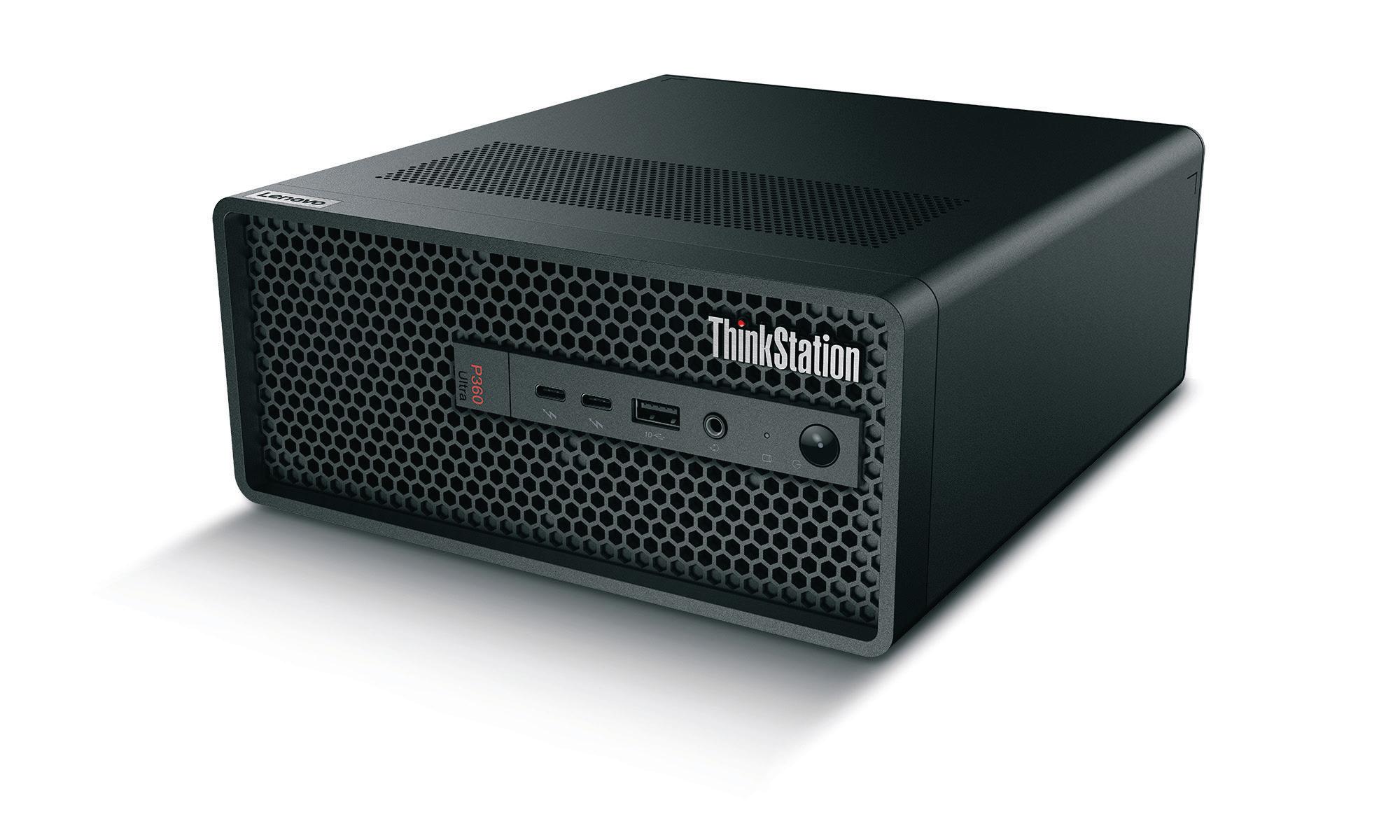
www.lenovo.com/workstations
THE NO-COMPROMISE SPACE Lenovo ThinkStation P360 Ultra
For years desktop workstations were bulky towers that took up lots of space. The inevitable drive towards miniaturisation saw machines shrink down, but there was always a trade-off in performance, particularly when it came to graphics-intensive workflows like real-time visualisation, virtual reality (VR) and GPU rendering.
This all changes with the Lenovo ThinkStation P360 Ultra, a compact sub4-litre workstation with a mighty CPU, a choice of powerful pro GPUs, including the NVIDIA RTX™ A5000 laptop GPU, lots of memory, and levels of performance you’d expect from a full-sized tower. It means product designers and engineers can benefit from the space saving design, without having to limit their workflows.
The ThinkStation P360 Ultra can be used throughout the product development process, from 3D CAD all the way through to engineering simulation, ray trace rendering, visualisation and beyond. This is explored in more detail in the article on the previous page.
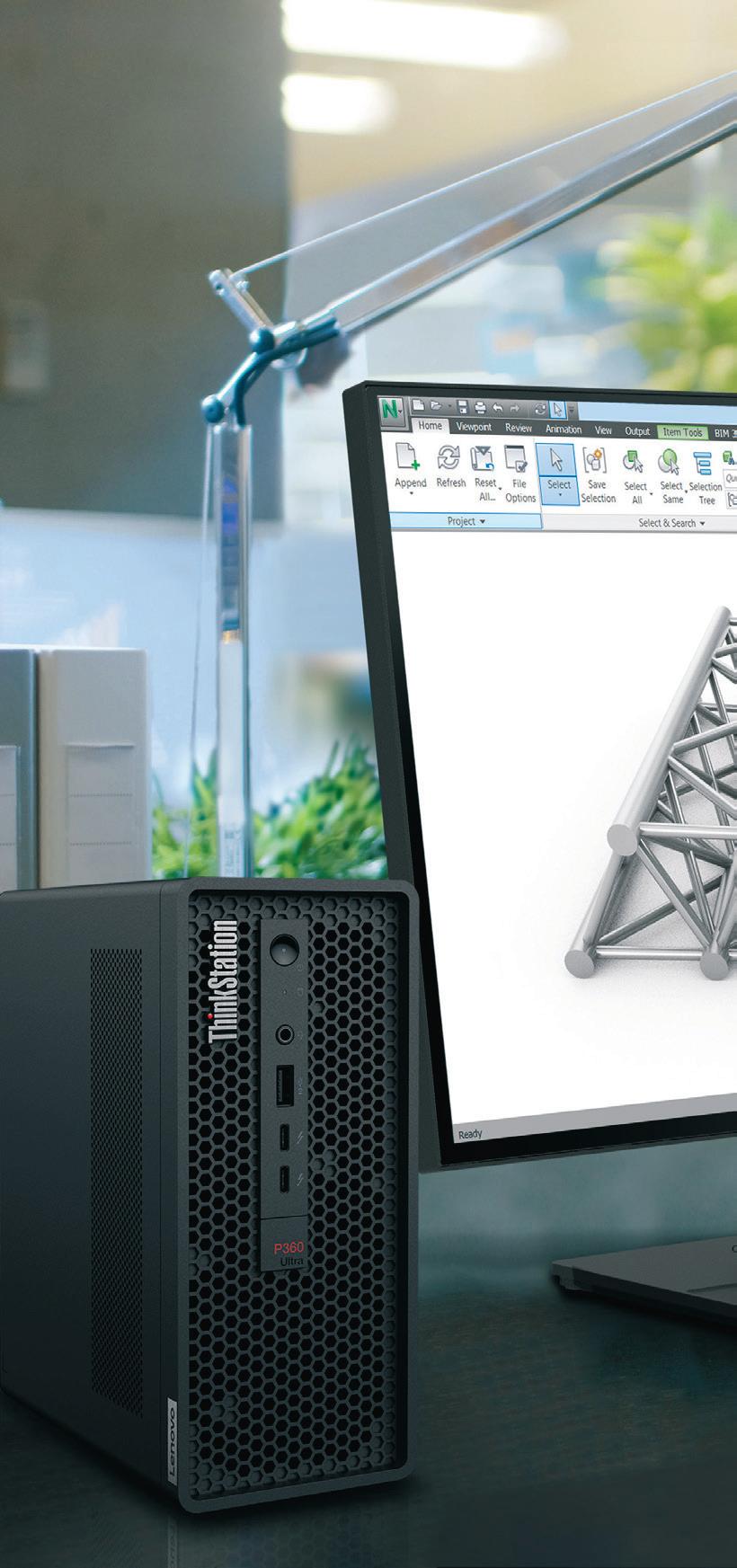
But why is this compact workstation so desirable to designers and engineers, and why is it particularly relevant today?
The hybrid workplace
Over the last couple of years, Covid has led to a huge shift in working patterns. More people than ever are working from home. For many, Tuesday to Thursday is the new office working week.
But product designers and engineers don’t want to make compromises when it comes to performance. They demand the exact same experience from their workstation at home as they have in the office.
Moving a bulky tower between locations is not practical. But it’s eminently possible with the ThinkStation P360 Ultra, which starts at
1.8 kg and fits comfortably in a small bag, measuring a mere 87 x 223 x 202mm.
Small desk, less clutter
One of the biggest benefits of the ThinkStation P360 Ultra’s compact design is that it saves significant desk space compared to a traditional desktop workstation. This is not only important at home, in space-constrained home office environments, but it helps keep design studios and workshops clutter free, making space for other tools used in product development, such as Wacom tablets, 3D printers, 3D scanners, desktop CNC machines, or even the humble sketch pad.
The ThinkStation P360 Ultra can be placed directly on a desk, vertically or horizontally. With a sleek, aesthetically pleasing design, it can enhance any design studio or home office. For a true clutter free desktop environment, it can be paired with a wireless Bluetooth keyboard and mouse. Or, for precise control over your 3D models, even a 3D mouse, such as the 3D Connexion SpaceMouse Pro Wireless. WiFi is built-in so there’s no need for an Ethernet cable.
Of course, some peripherals, such as desktop CNC milling machines and 3D printers still need to be wired in. With (5) USB Type-A ports (1 front, 4 rear) and two Thunderbolt 4 USB Type-C (front), the ThinkStation P360 Ultra has plenty of options. Compared to a desktop tower hidden under a desk, access to ports is incredibly easy.
For the ultimate clutter free working environment, the ThinkStation P360 Ultra can be VESA mounted, hung on a wall, under a desk or behind a monitor.
Easy serviceability
Some compact workstations, by the very nature of cramming powerful components
into a small chassis, can be hard to upgrade or repair, but the ThinkStation P360 Ultra has been designed with serviceability in mind.
This could prove particularly important when working from home, as IT support staff are not on site. The workstation’s cover slides off at the push of a button, giving easy access to dual M.2 slots for SSDs and four DIMM slots for DDR5 memory. No tools are required.
The ThinkStation P360 Ultra also includes a user-serviceable dust filter to help maximise airflow and cooling and hence maintain its high-performance levels. Keeping a workstation on a desk, rather than underneath it, can also minimise the accumulation of dust in the first place. This can be particularly important in workshop environments when CNC machines are in use.
With an innovative space-saving design, Lenovo’s new desktop workstation brings new possibilities to the workspaces of designers and engineers
SPONSORED CONTENT
SPACE SAVING WORKSTATION
Remote work
As well as being extremely portable and easy to move between locations, the ThinkStation P360 Ultra can also support distributed workers remotely. Multiple workstations can be rack mounted and users can then remote in from anywhere using a low-powered laptop or desktop PC. With remote graphics protocols, and a high-bandwidth, low-latency Internet connection, users can get the same workstation experience they would expect to get in the design office.
Because the ThinkStation P360 Ultra is primarily a desktop workstation and is designed to run quietly, racked machines can be kept in the office. They do not need to be in an air-conditioned server room or datacentre.
The ThinkStation P360 Ultra stands out from other sub-4-litre workstations
because it can house two NVIDIA® T1000 GPUs and therefore support two users per machine to increase user density. Using virtualisation and GPU passthrough, each user gets access to a dedicated GPU for great performance in CAD-centric workflows.
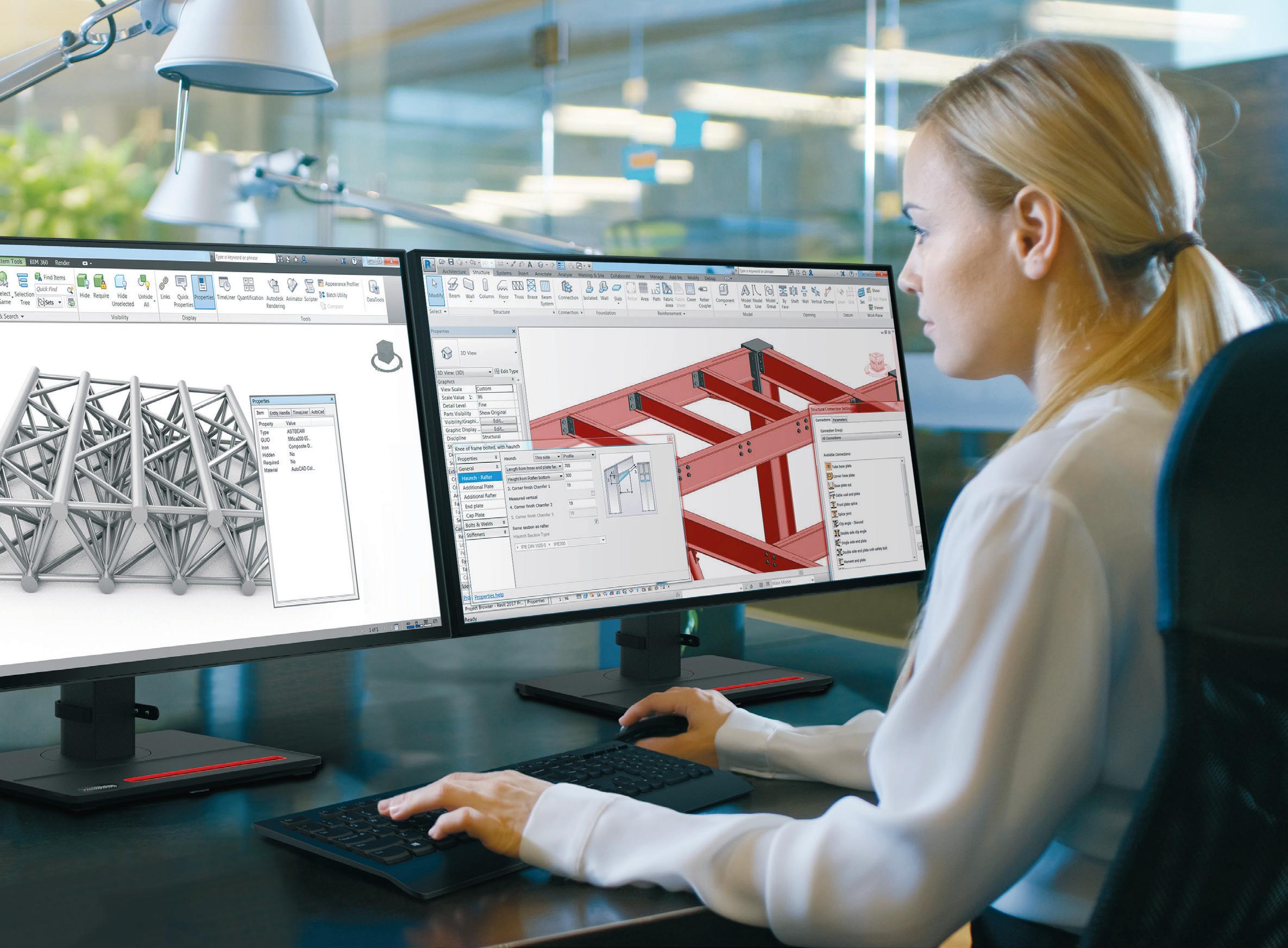
Clear thinking
The ThinkStation P360 Ultra is a great choice for demanding product designers, engineers and manufacturing professionals that want to declutter their workspace without sacrificing performance. The stylish design makes it suited to any setting, while providing more space for other tools used in product development, such as peripherals and machines. Furthermore, the workstation can easily be transported between places of work or client offices for presentations.
But the ThinkStation P360 Ultra is also incredibly flexible, offering remote access to more than one user through its dual GPU capability.
Whether you’re looking for a compact, but powerful desktop workstation for the office, home or workshop, the ThinkStation P360 Ultra is the perfect way to go.
Lenovo ThinkStation P-Series workstations come in a wide range of form factors from minute desktops to fully expandable powerhouses. All workstations can be configured for a range of different workflows and budgets
www.lenovo.com/workstations

20 FEBRUARY / MARCH 2023 DEVELOP3D.COM
Craven Dunnill Jackfied’s work is showcased by the traditional faience tiled bar at The Old Queens Head in Islington, London
GLAZE OF GLORY

DEVELOP3D.COM FEBRUARY / MARCH 2023 21
Stepping off the train in Jackfield is akin to arriving at an open-air museum dedicated to the history of the Industrial Revolution in the UK. Everything in this Shropshire town is a red-brick shrine to enterprise and industry, from its railway, the second built in the whole of the UK in order to connect the coal mines of the Black Country to its factories, to the nearby Iron Bridge, spanning the River Severn and the first anywhere in the world to be made from cast iron. Here in Jackfield, one industry prevailed over all others: pottery. To this day, the village is still home to Craven Dunnill Jackfield, one of the most prestigious tile producers and manufacturers worldwide. Contemporary projects for the firm include ambitious restorations at the Houses of Parliament in London, as well as its Australian equivalent on the other side of the world.
Other work include decorations seen at Harrods Food Halls and at over 60 London Underground stations. The latter includes the new, super-Instagrammable interlocking triangles embedded with LED lights that are located in the new pedestrian tunnel at King’s Cross Station.
Craven Dunnill Jackfield is still located in its original building, erected in 1874. But today, that building also home to a museum, where visitors can immerse themselves in early twentieth-century manufacturing history and learn about traditional tile-making processes that are still being used by employees working just a few metres away.
BEHIND CLOSED DOORS
Factory manager Gemma Ball and commercial director Richard Butler lead the way to the first of two main areas in the factory: the Encaustic Department. Here, tiles are produced by skilled artisans who carve and glaze them by hand before they make their onward journey, primarily to restoration projects.
The next stop on the tour is the Wall Tile Department. It’s a name that the company has long since outgrown, explains Gemma Ball. “Pretty much what we do here is not tile-related,” she explains. “It got bigger and bigger and more architectural as we’ve grown up.”
In this building, we also find the large kilns where tiles and architectural components are fired before being glazed.
The colouring service is still very much done via traditional techniques: “Ninety percent are hand-dipped
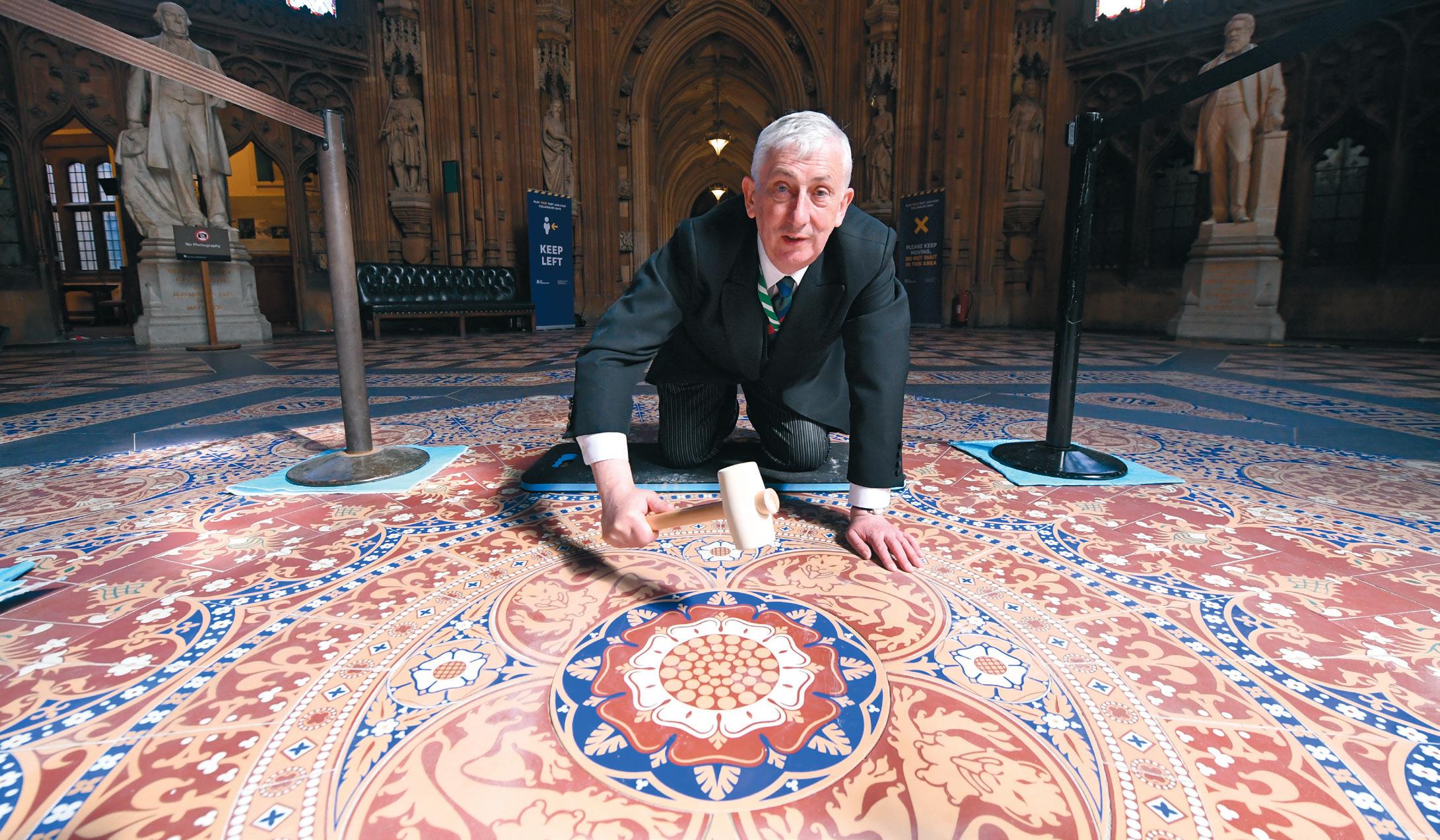
22 FEBRUARY / MARCH 2023 DEVELOP3D.COM COVER STORY
In 2008, Craven Dunnill Jackfield was appointed to assist in the ambitious restoration of floors in the Palace of Westminster
» A leading and historic producer of ceramic tiles, Craven Dunnill Jackfield is using new technologies to boost production without compromising on its long-held traditions, as Claudia Schergna reports
in the glaze after the pieces are fired,” explains Ball, her voice overlapping with the ticking of a metronome in the background. This helps employees ensure the tiles get dipped into the glaze for the correct period of time.
In the next room, Tim Perks is working. He’s an industry veteran who has nonetheless only recently joined Craven Dunnill Jackfield. Ceramic modelling is a dying art, he explains, due to technological developments, and because of a lack of funding for art colleges.
He doesn’t feel like his job is threatened by technology, however. Quite the opposite, in fact: “I believe in a marriage of the two,” he says. “The technology, it’s been an eye-opener for me.” That said, he still believes in handfinishing for some items, he adds, “because it gives a nuanced, sort of organic quality.”
Perks works in close contact with Jed Hammerman, the man behind Craven Dunnill Jackfield’s technological innovations. Hammerman first joined the company via the Knowledge Transfer Partnership, a graduate scheme that aims to connect graduates and businesses. The aim here is mutual benefit, with graduates gaining professional qualifications and businesses learning to incorporate new technology into their workflows.
While Hammerman had never worked with ceramics before, his degree in 3D design has proved to be extremely valuable at Craven Dunnill Jackfield, which was looking for ways to boost production while maintaining the quality of its hand-crafted tiles.
“When I first started, this room was empty,” says Hammerman, looking out at the dozens of models that now populate it, along with a large CNC machine and an Artec Spider 3D scanner.
A SUCCESSFUL MARRIAGE
The introduction of new technology into the workflows of a company that has been employing traditional methods for centuries might have raised concerns for workers and customers. Instead, Craven Dunnill Jackfield stands as a glorious example of what happens when you successfully marry technology and craft, modernity and tradition.

“Rather than replacing any of the hand carvers, my job is to take some of the workload off them,” explains Hammerman. “Rather than starting from scratch, I give them a mostly finished piece and they provide those final little details that the computer can’t quite do.”
Were people ever worried about robots (and technology in general) taking over their jobs? “That never happened,” he says firmly. “It was always a mix of the two. Now we can do the same stuff, but faster and for more clients.”
The first piece of equipment that Hammerman introduced was the 3D scanner. This turned out to be particularly convenient for restoration projects. Previously, clients were forced to rip tiles off walls and send them to the factory to be restored. Now, the team can visit the site in person and scan those tiles that need restoring.
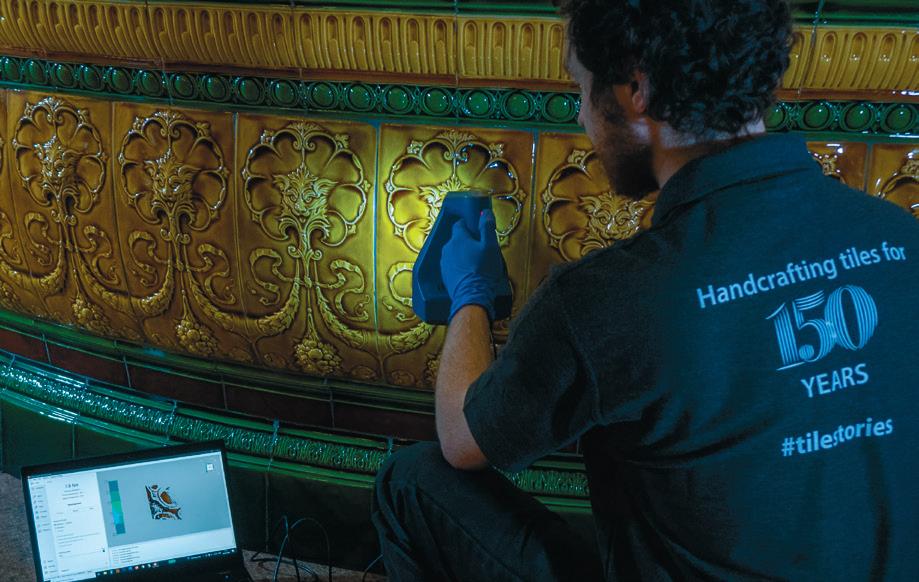
For this purpose, the team selected the Artec Spider 3D, a handheld scanner that can be easily transported and manoeuvred on scaffolding, while providing high resolution and accuracy.
Once tiles have been captured and appear in the Artec Studio software, they are imported into CAD for a design phase that uses Rhino. At this stage, the project is passed to a modeller, who will intervene manually to create the initial mould, using the organic lines typical of handmade production.

Creating moulds this way is much faster. A mould maker only needs to create half of the mould, which is then 3D scanned and mirrored in CAD. Using Rhino, Hammerman adds sides to the original shape in order to create a solid block suitable for CNC milling and then finally inverts it.
The CAM programming software Mayka V8 is used to create toolpaths for the CNC mill, which offers a couple of key advantages. First, jobs can be completed overnight, as there is no need for workers to supervise the machine. Second, it allows the team to produce everything inhouse, instead of commissioning external mould makers.
This has helped grow the company’s relationships with clients enormously: “Now we can just fire across five new designs in an hour, giving the customer a lot of options to choose from,” says Hammerman. “We can change shapes and colours as they wish.”
DEVELOP3D.COM FEBRUARY / MARCH 2023 23
1 2 3 ● 1 3D scanning tech means tiles can be left in place, instead of removing them for restoration work
2 Planning begins for restoration work at The Elephant & Castle pub in Wolverhampton
3 Tiles are scanned and then the mesh is refined using Artec Studio
●
●
’’
‘‘ We realised we can’t just replace hand carving. It’s essential. It’s part of what makes it work
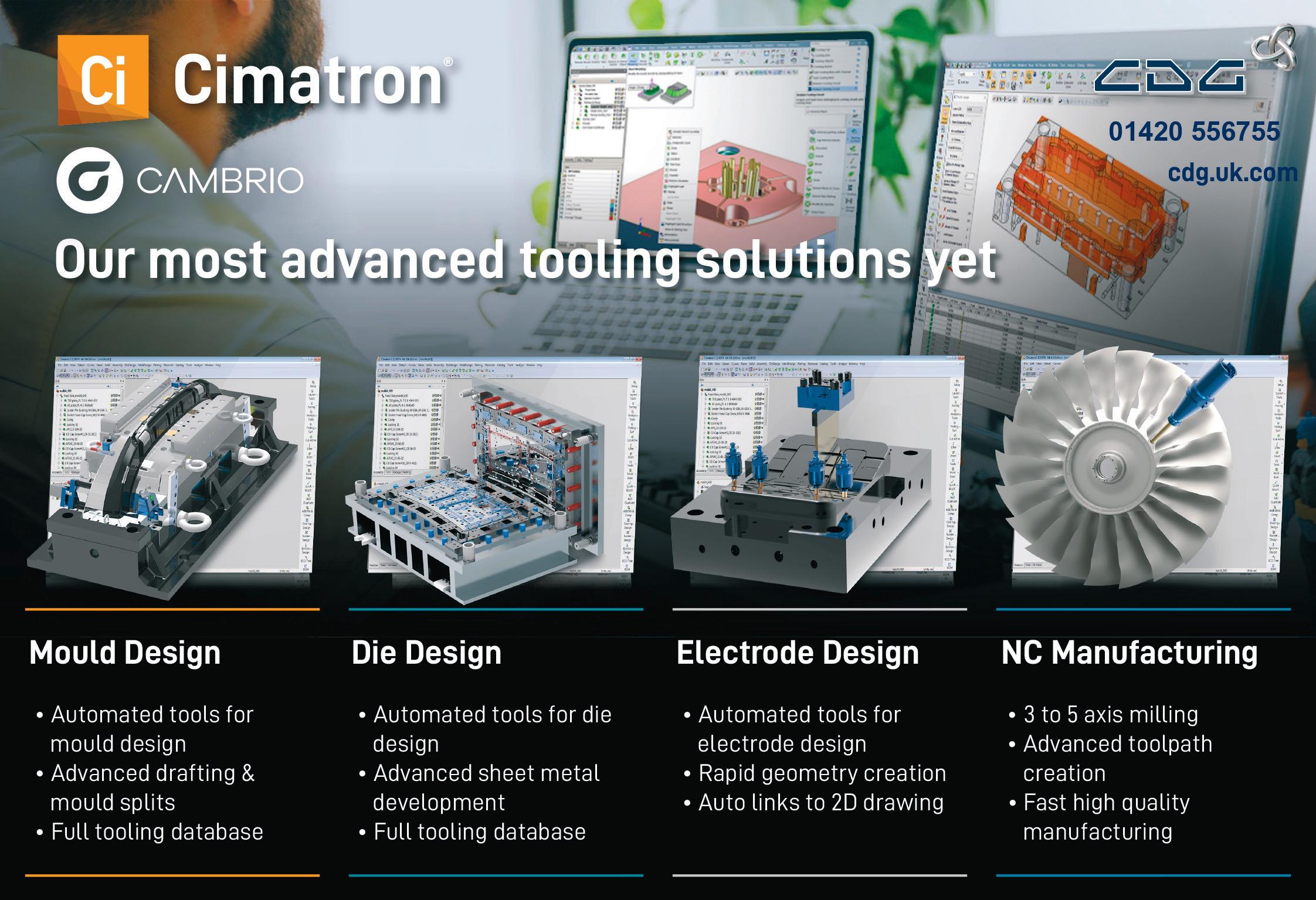
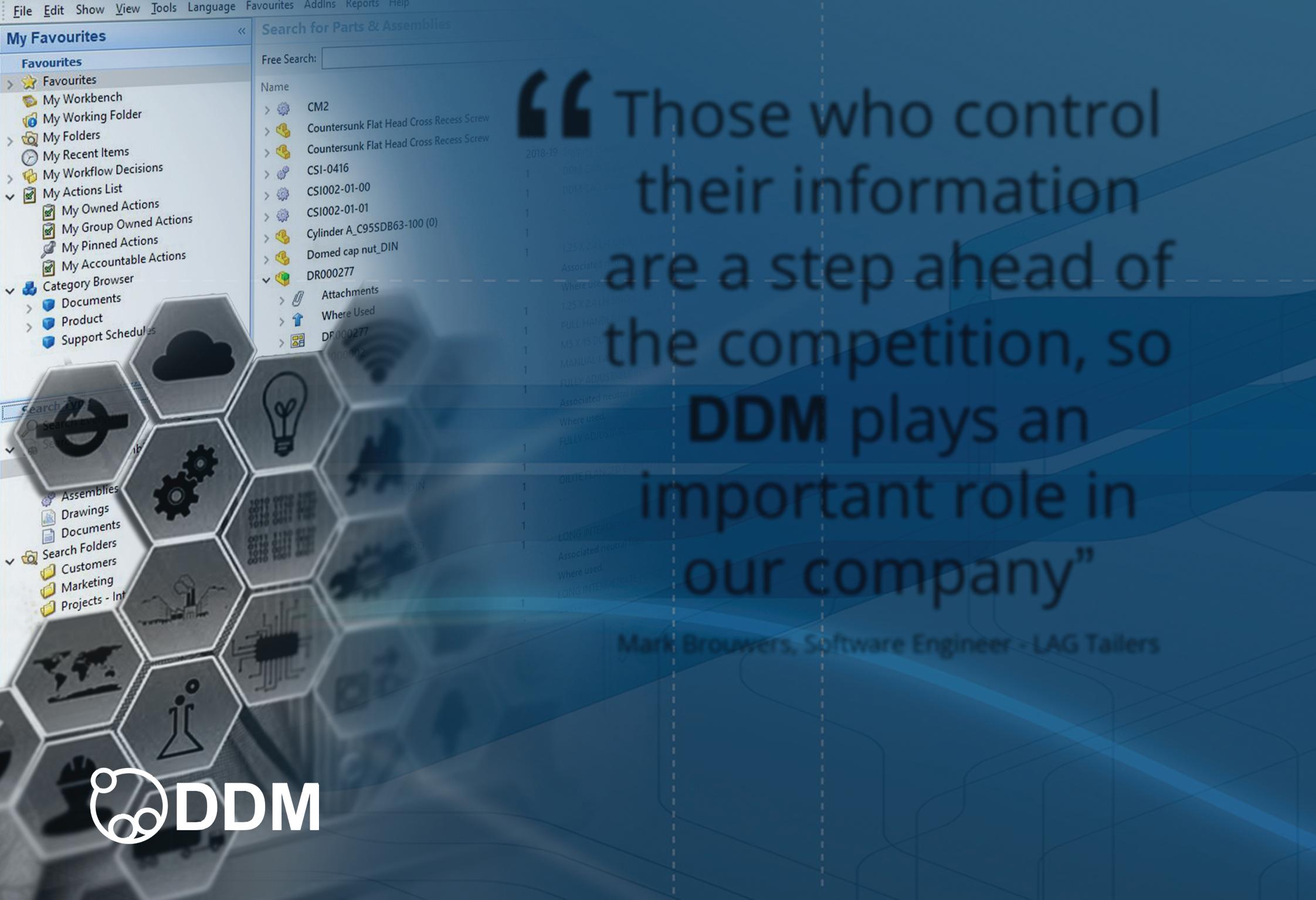

“
GUARDING TRADE SECRETS
While 2D tiles are now very easy to replicate thanks to these technologies, when it comes to 3D tiles, the process is not so straightforward.
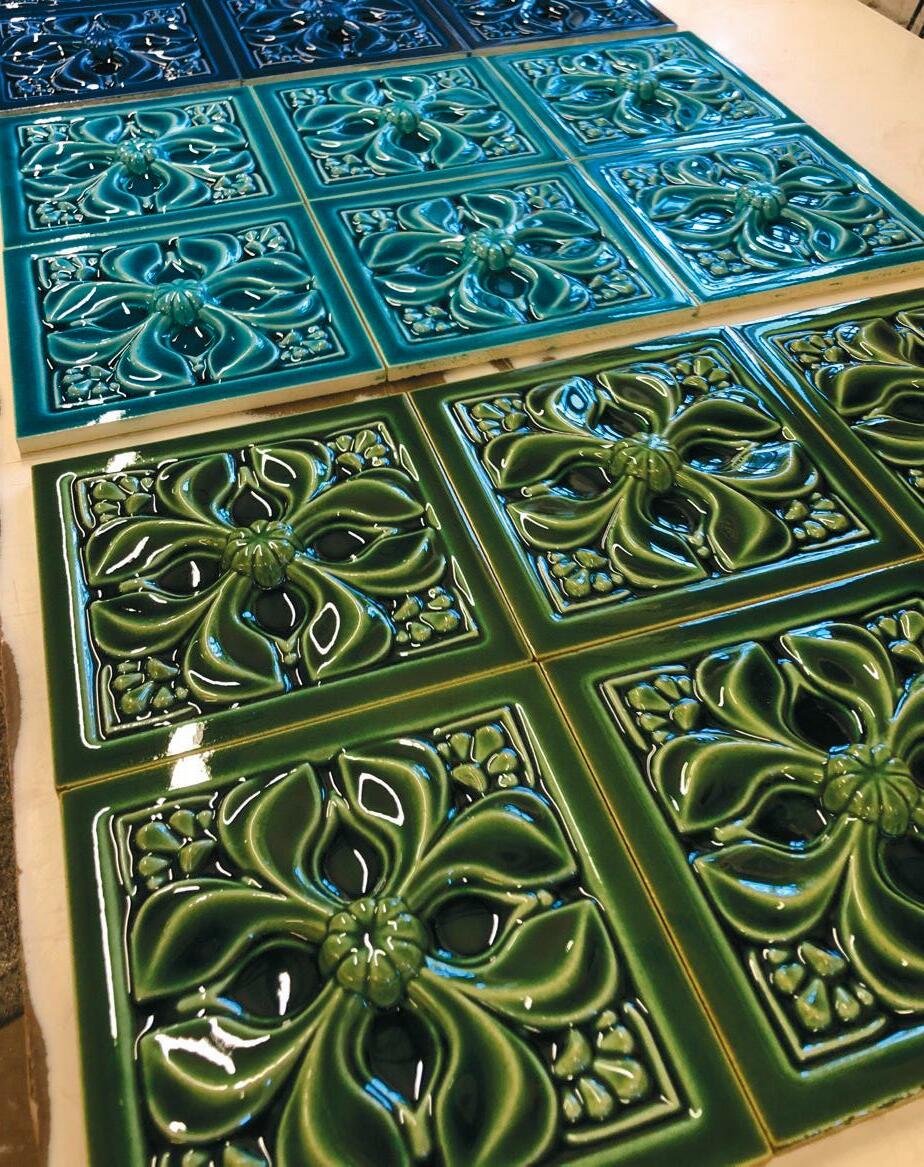
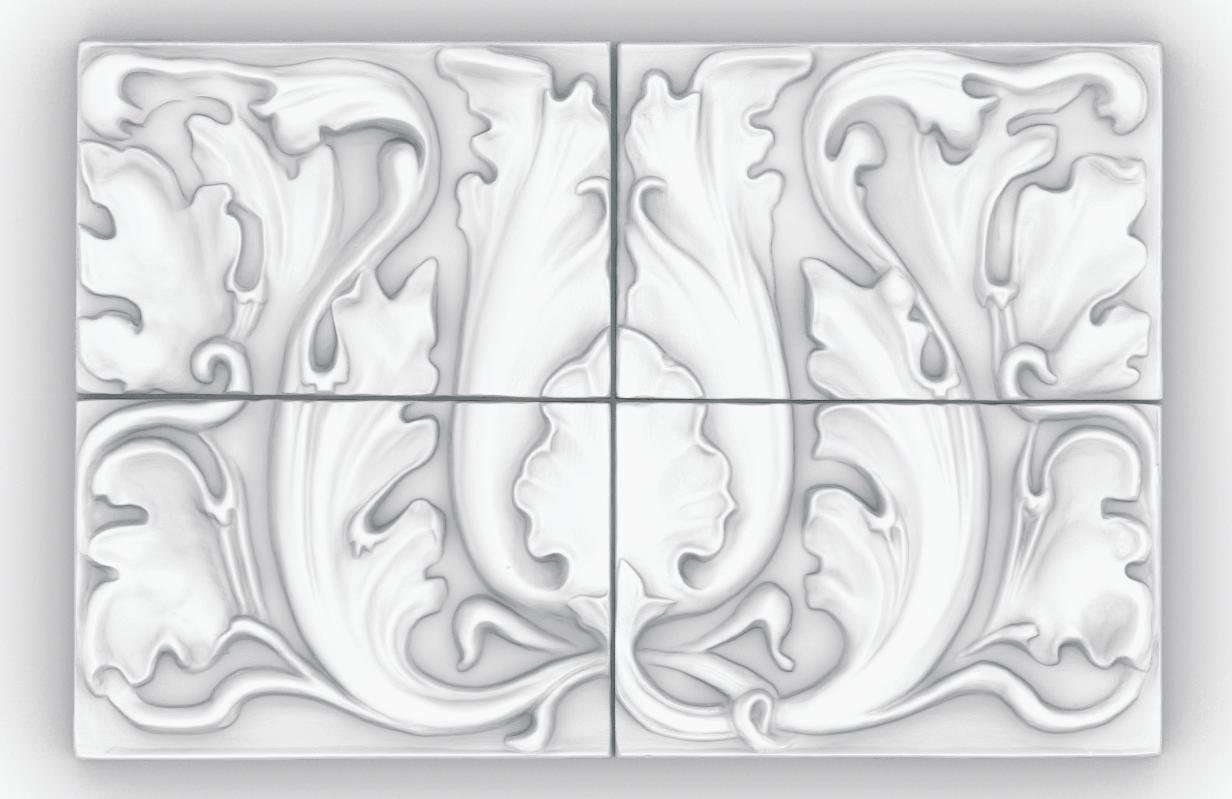
The glazing on the tiles makes them extremely hard to scan. When light gets reflected by glaze into the scanner, it’s unable to register the data.
“This was the issue when I went around trade shows,” Hammerman recalls of the time he spent scouting for the most suitable 3D scanner: “I would bring a tile with me and ask: ‘Can you scan that?’, and everyone would be like, ‘Can’t do it, sorry, bye!’”
Most 3D scanner manufacturers recommend using a scanning spray on shiny surfaces to give them a matte finish, but Hammerman found that, even using the spray, he couldn’t determine the depth of the hand-carved channels in the tile.

Solving this problem became Hammerman’s prime mission at Craven Dunnill Jackfield. “The magic of the Knowledge Transfer Partnership project, what came out of it, was finding a way for us to determine what the surface underneath the glaze was like,” he says.
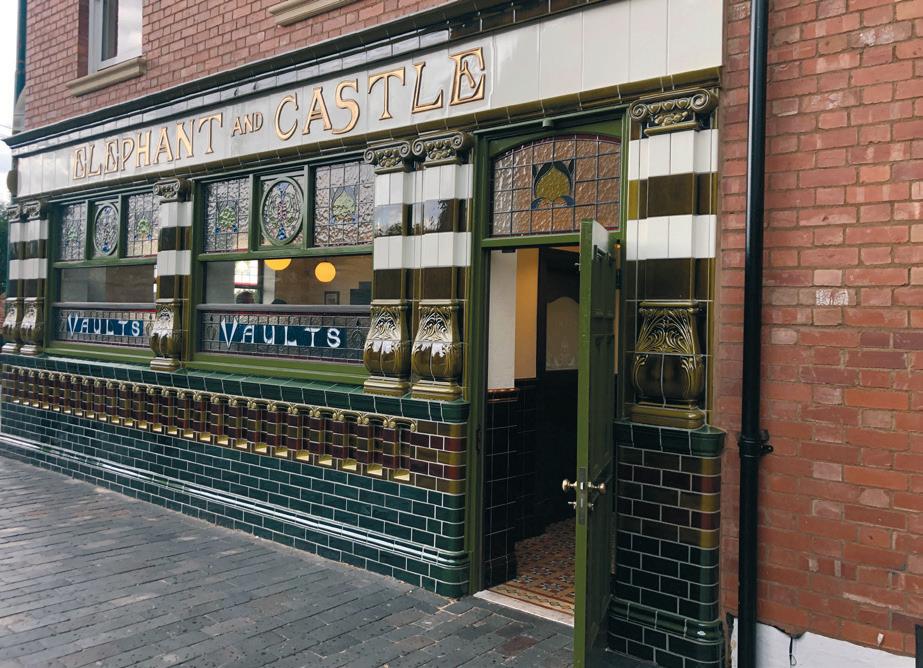
To solve the issue, and after extensive research conducted at both Craven Dunnill Jackfield and at the University of West England where Hammerman was previously doing research as part of the Knowledge Transfer Partnership scheme, he created a programme in Rhino to determine the topography of the underlying surface. “If you were to look into a pool of water, you would see the dark bit in the middle and the light bits of the side,” he explains.
“For example, for all the black bits, we work out that’s 0.5 millimetres deep, and same with the other 100 colours in there,” he continues, pointing at a very colourful tile design on the screen in front of us.
The scanner picks up all the pinpoints of light as they are refracted off the tile back into one of its lenses. The way the Artec Spider works is that one of the lenses projects a light into the object, while the other picks up where the light bounces off.
DEVELOP3D.COM FEBRUARY / MARCH 2023 25
’’
‘‘ After I’ve redesigned a mould, we can just cast it and we know it’s going to be right. No one has to measure it. No one has to even look at it
● 4 The Elephant & Castle pub in Wolverhampton in all its postrestoration glory
● 5 A traditional colouring process sees tiles hand-dipped in glaze before firing in a kiln
6 7 4 5 COVER STORY
● 6 ● 7 Meshes of tiles scanned with the Artec Spider 3 are imported into Rhino for CAD work
“What I was able to do was turn the 3D model into a format that allowed me to manipulate the surface in an unconventional way. Then I wrote a programme to move them automatically, based on their colour,” he says.
“I realised that each colour produces a slightly different result. You end up with a dataset that describes how the light reacts with the glaze.”
The software that Hammerman developed to show this graph is so innovative in the industry that Craven Dunnill Jackfield is keeping it a closely held trade secret.
Working with 3D scanning and producing the moulds with a CNC machine also reduces the margin of error that results when producing pieces entirely by hand. In this way, significant time and material waste are saved.
“After I’ve redesigned something, we can just cast it and we know it’s going to be right. No one has to measure anything. No one has to even look at it,” says Hammerman, picking up a small rectangular tile.
“This would have originally been made by having some rubber casting applied to them, then lining them up by eye, maybe putting something in between each one to have a regular gap,” he says
Producing cast tiles by hand in this way would often result in slight wobbles in the tiles, making their assembly particularly challenging.
NEW LIFE FOR BRITISH LANDMARKS
The introduction of these technologies coincided with a project commissioned by an extremely prestigious client: Harrods. The Grade II-listed Food Halls inside London’s most famous department store are covered in decorative tiles and Craven Dunnill Jackfield was commissioned to restore this environment.
Hammerman describes this first application of his newly developed technology as a semi-success: “It worked, but not quite how I envisioned it would work. We didn’t know what was going to happen.”
The Harrods project was carried out with a mix of traditional techniques and newly introduced technologies. “That was the first point of learning. We realised we can’t just replace hand carving. It is essential. It’s part of what makes it work.”
A lot has changed since then. A more recent project has been the recreation of The Elephant and Castle pub, commissioned by the Black Country Living Museum.
The original pub, which stood on the corner of Stafford Street and Cannock Road in Wolverhampton, was illegally demolished in 2001. Hammerman didn’t have many references with which he could work, just a small fragment of tile that he shows us, saying: “This was one of the few pieces that survived. Someone just found it in the rubble and happened to take it with them.”
The 3D model he produced in Rhino was entirely based on a handful of original pieces of the façade that remained following the demolition, plus a handful of old photographs. With the help of colleague Michelle Cox, the production glaze technician who oversees the company’s colour-matching service, he recreated the whole building, with its wall tiles, faience and decorative gold lettering.
CREATING A DATABASE
Technology is often perceived to be the enemy of traditional craft. In the case of Craven Dunnill Jackfield, it is enabling traditional methods not only to survive, but also get passed on to future generations.
Moulds, for example, were previously created by hand by artisans. With production levels being so high, they would often make a single mould for each project. In short, there were no spares.
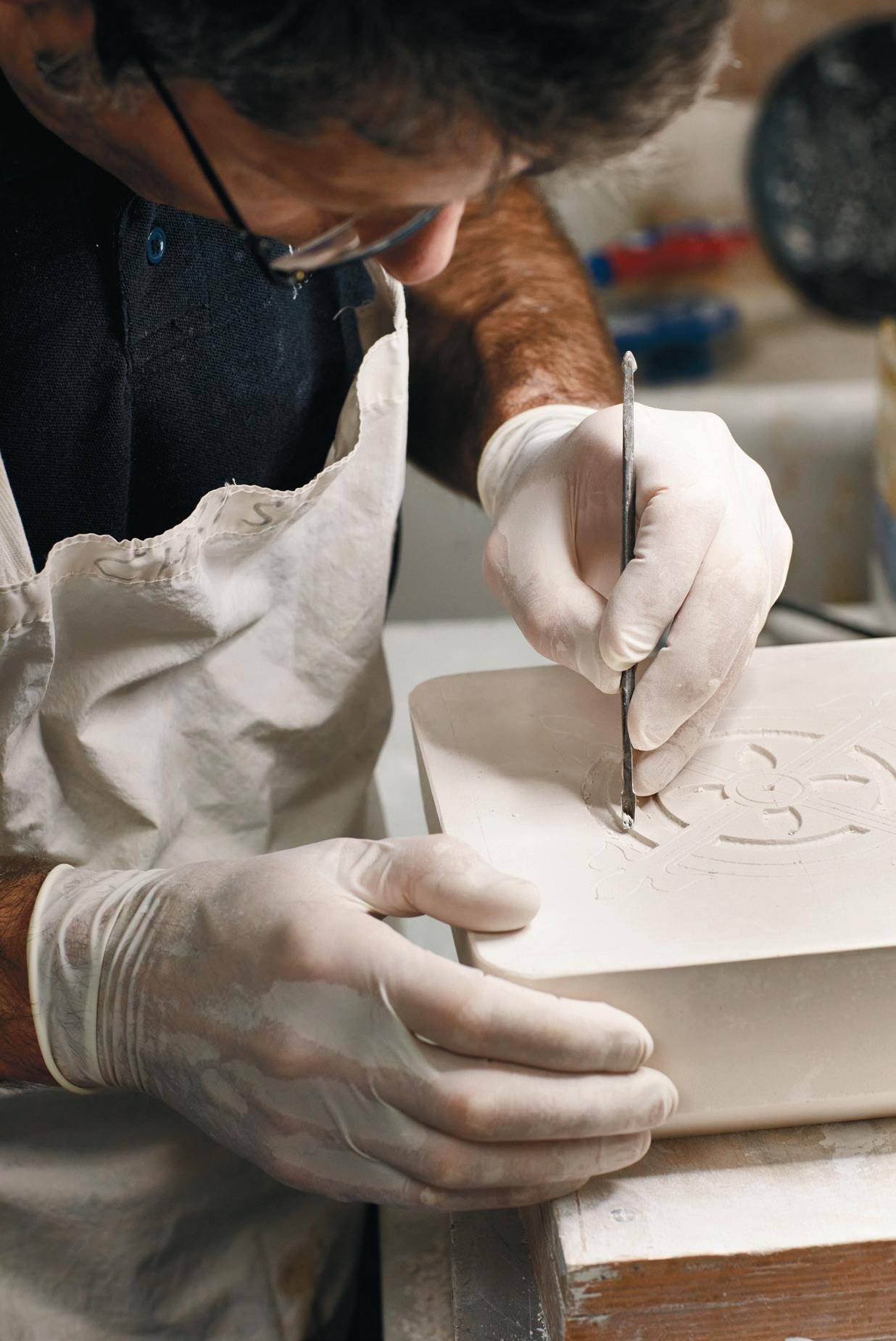
Hammerman shows us a very heavy dust press mould that he is currently restoring: “This is probably older than either of us,” he jokes. “It’s warping, the corners are moving down. God knows how many presses it’s undergone. Tens of thousands, probably. And there’s no back-up.”
For that specific tile, he had to scan the mould and redesign it from scratch on Rhino. As a result, he can now be sure that, if it breaks or gets damaged again, the project is saved on a hard drive and can be milled as many times as needed.
“We can make another one without having to worry, and we know it’s going to be exactly the same. That’s opposed to someone taking the rubber or the plaster off that, and then making a resin off of it, with all that shrinkage and movement that comes with it, which is possibly how it ended up warped in the first place,” he says.
By building this database and adding digital technologies to the workflow, Craven Dunnill Jackfield has been able to scale its business, shifting from being a symbol of the first industrial revolution to embracing the technologies that are defining the fourth.
www.cdjackfield.com
26 FEBRUARY / MARCH 2023 DEVELOP3D.COM COVER STORY
Moulds may be produced on a CNC machine, but the final design is still hand-carved by skilled modellers
Introducing the All New Lenovo ThinkPad® P16


Mobile Workstation
and machine learning capabilities, the Lenovo ThinkPad® P16 Mobile Workstation is now powered by the Intel® Arc™ Pro A30M Mobile GPU. Uniting fluid viewports, the latest in visual technologies, and rich content creation in a portable 16” mobile workstation. This system combines a fresh, modern look with powerful professional graphics.
• Ray Tracing GPU Hardware Acceleration
• Dedicated GPU AI Accceleration

• 4GB High Speed Graphics Memory
• 16:10 Aspect Ratio with 4x Display Options

• Lenovo ThinkShield Security
• All-new 12th Gen Intel® Core™ HX processors
• Software Certifications for Professional Apps
intel.com/ArcProA30M © Copyright 2022 Intel Corporation. All rights reserved. Intel, the Intel logo, and other Intel marks are trademarks of Intel Corporation or its subsidiaries. Intel Arc Graphics is a trademark of Intel Corporation in the U.S. and/or other countries. Other names and brands may be claimed as the property of others. P16
LET ME SEE YOU MAKE IT
» Putting together a functional, flexible prototyping workshop can be a daunting prospect. At DEVELOP3D, we’ve considered some of the most common requirements and identified smart options that should enable you to take back control over prototyping
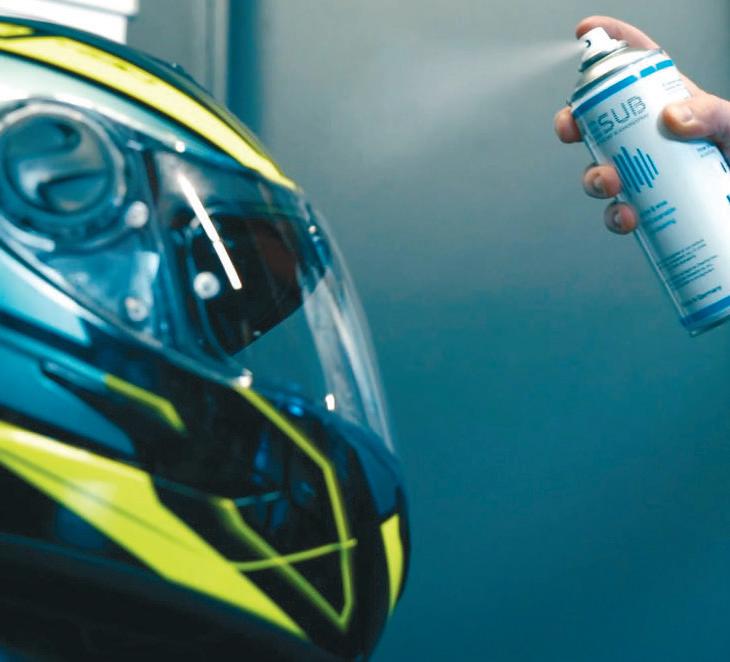
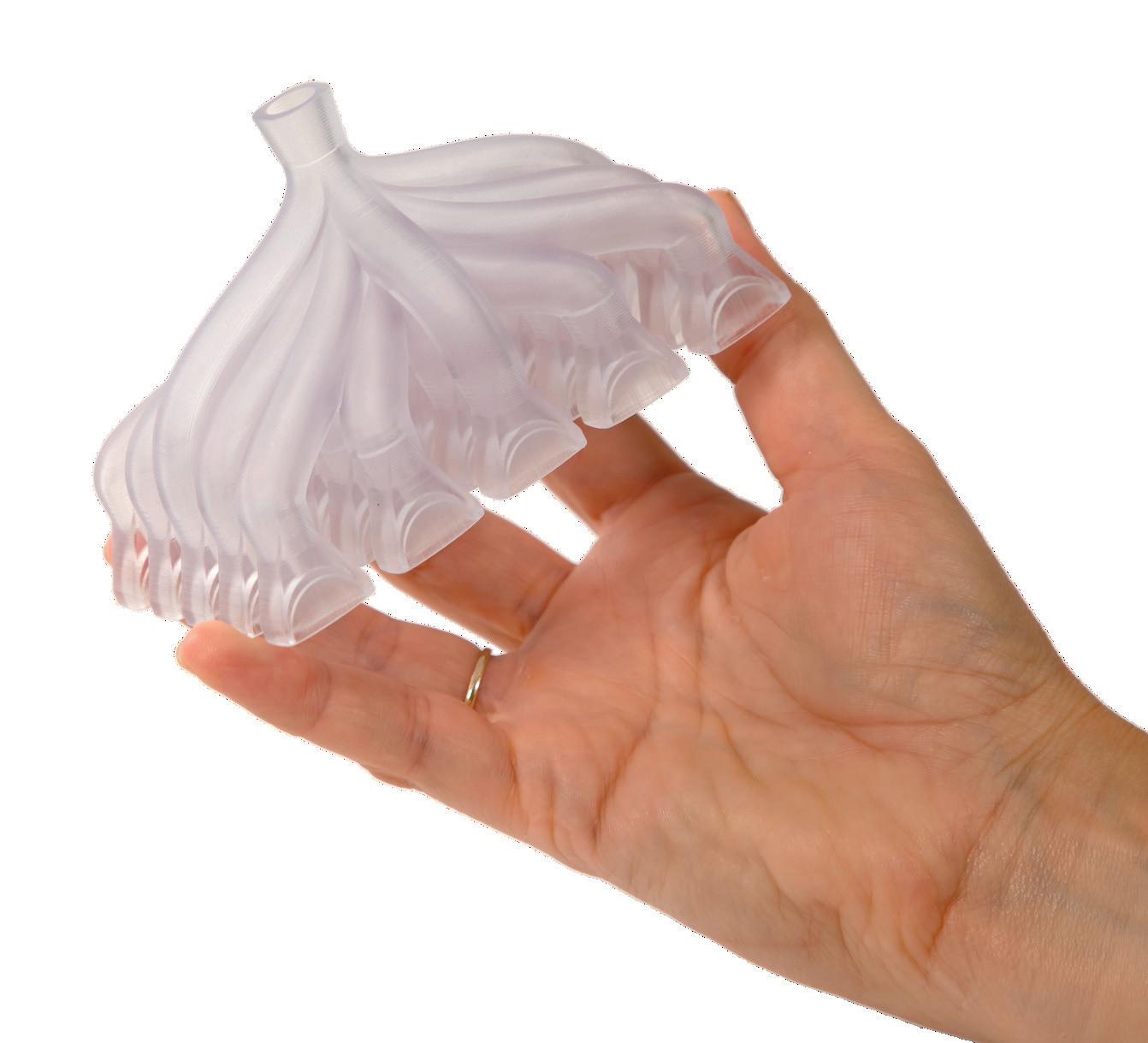
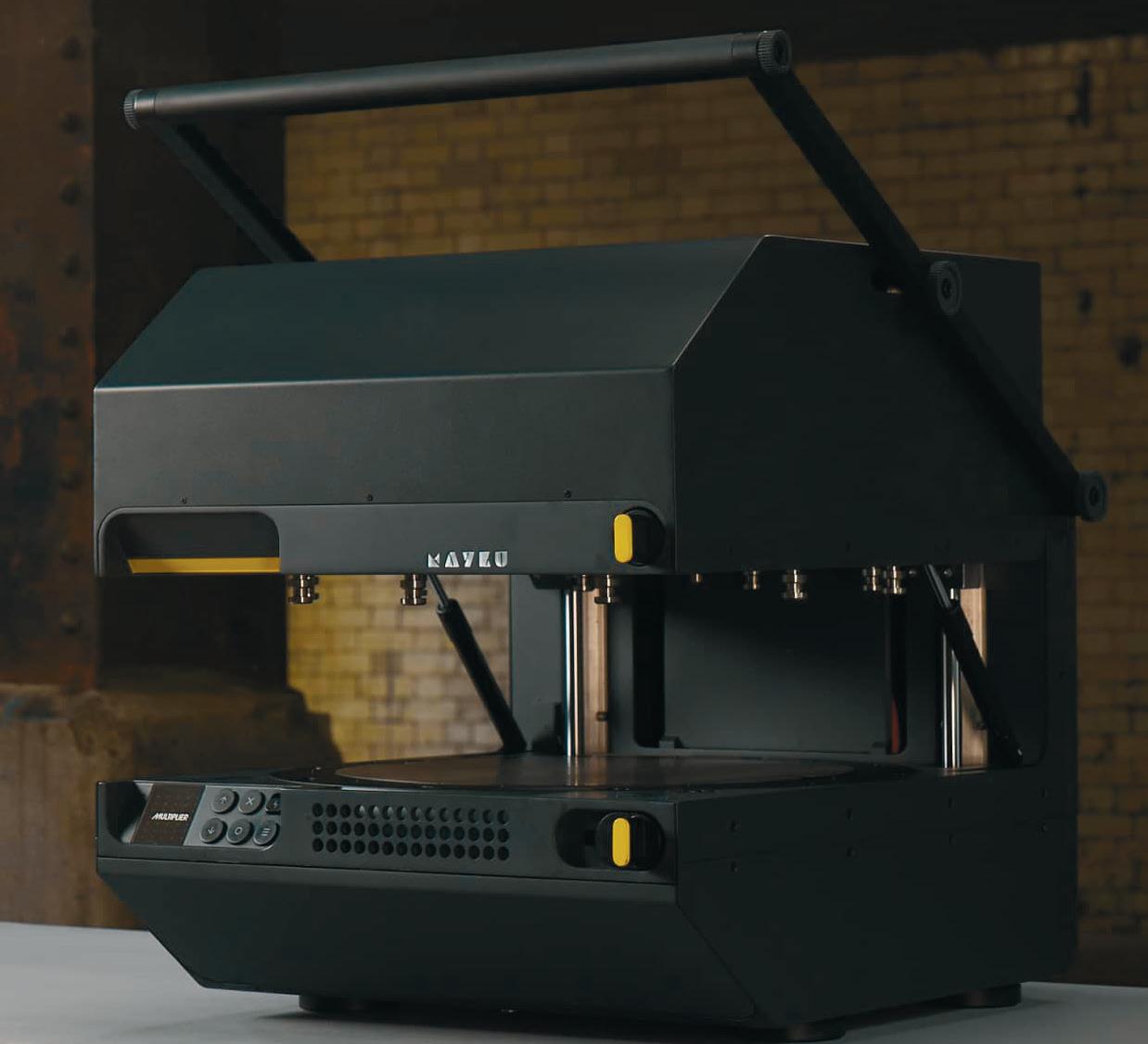
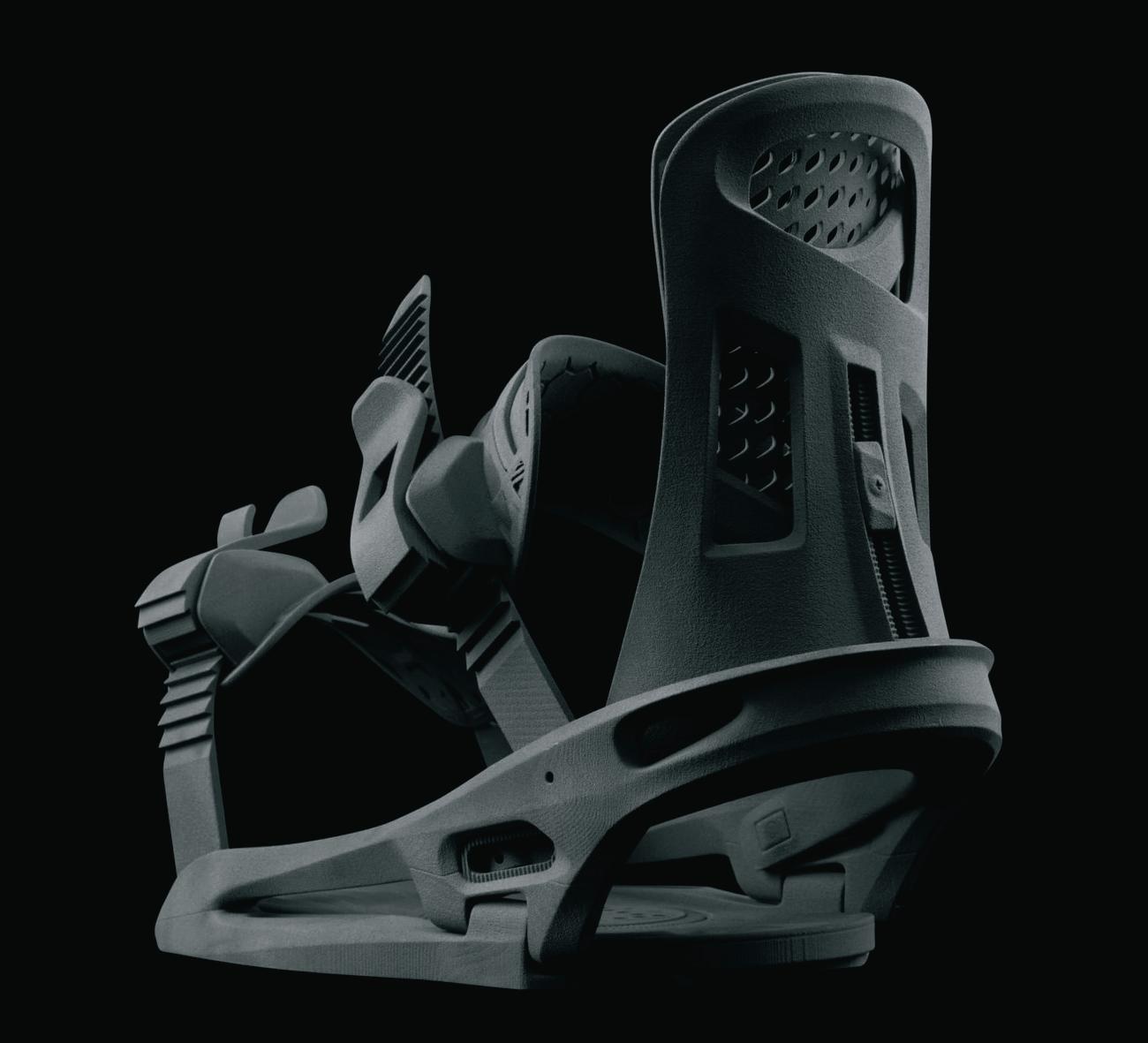
28 FEBRUARY / MARCH 2023 DEVELOP3D.COM FEATURE
REQUIREMENT: COLOUR PROTOTYPES
OPTION: STRATASYS J55 3D
Want to show off your design in a range of colourways and materials without tasking a modelmaker? The Stratasys J Series of polyjet 3D printers boast the ability to transplant renders into reality. The J55 is the smallest of the bunch, but a good option, given its compatibility with Luxion Keyshot, quality of output and range of function. It also offers a range of colour materials and the ability to accommodate multiple prototypes on its circular build platform.
www.stratasys.com

REQUIREMENT: METALS 3D PRINTING
OPTION: ULTIMAKER METAL EXPANSION KIT
Metals 3D printing is not just for those with deep pockets, plenty of space and an appetite for peripherals. The BASF Ultrafuse filament has been available for desktop FDM 3D printers for a while now, and Ultimaker has seemingly cracked the process. An add-on kit for its S5 3D printer includes its own Cura software, which tackles challenges like shrinkage. The end-to-end ecosystem includes a service by which ‘green’ parts can be processed, sintered and returned in a timely fashion.
www.ultimaker.com
REQUIREMENT: TOUGH CUTTING
OPTION: WAZER
Bringing the power of waterjet cutting to the desktop, Wazer’s small-footprint CNC waterjet will diligently cut through almost anything you throw at it. This includes stainless steel up to 4.5mm thick, 13mm aluminium, 8mm ceramic tiles or carbon fibre. Its versatility is a huge win, further boosted when you factor in singlephase power and the health and safety bonus of no overheating worries or ventilation requirements.

www.wazer.com
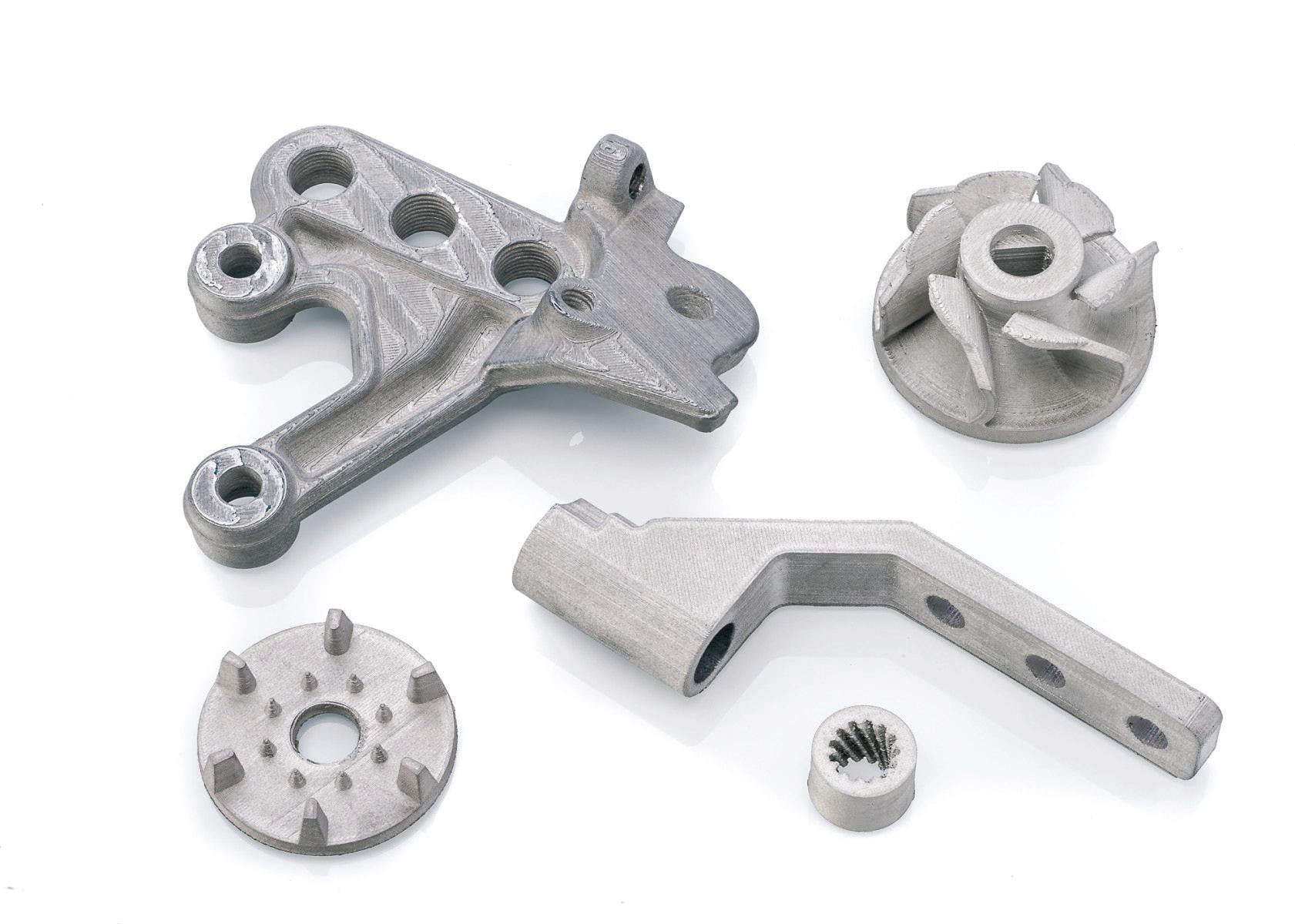
DEVELOP3D.COM FEBRUARY / MARCH 2023 29
1
2
3


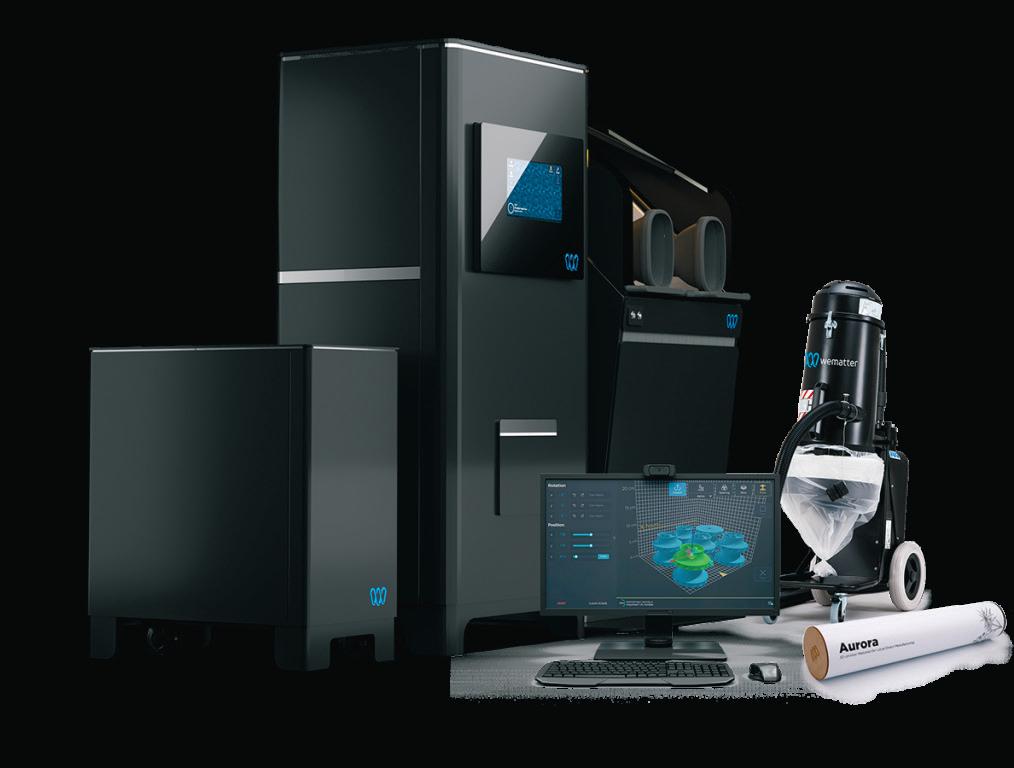
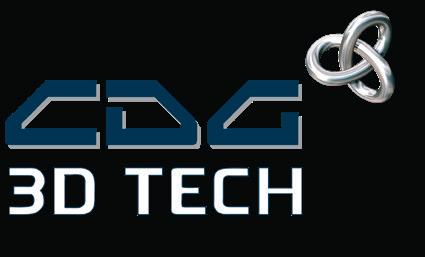

CDG 3D TECH www.cdg.uk.com Tel: 01420 556755 Wematter Gravity SLS 3D-printing system Ground-breaking and easy to use SLS 3D-printing platform for Additive Manufacturing Clean process No gas required PA6, PA11, PA12, PP, TPU materials Black, Blue & White powders loaded via cartridge Production grade materials, inc. ESD & Food Safe New UK demonstration facility
REQUIREMENT: FAST FUNCTIONAL TESTING OPTION: FORMLABS FUSE
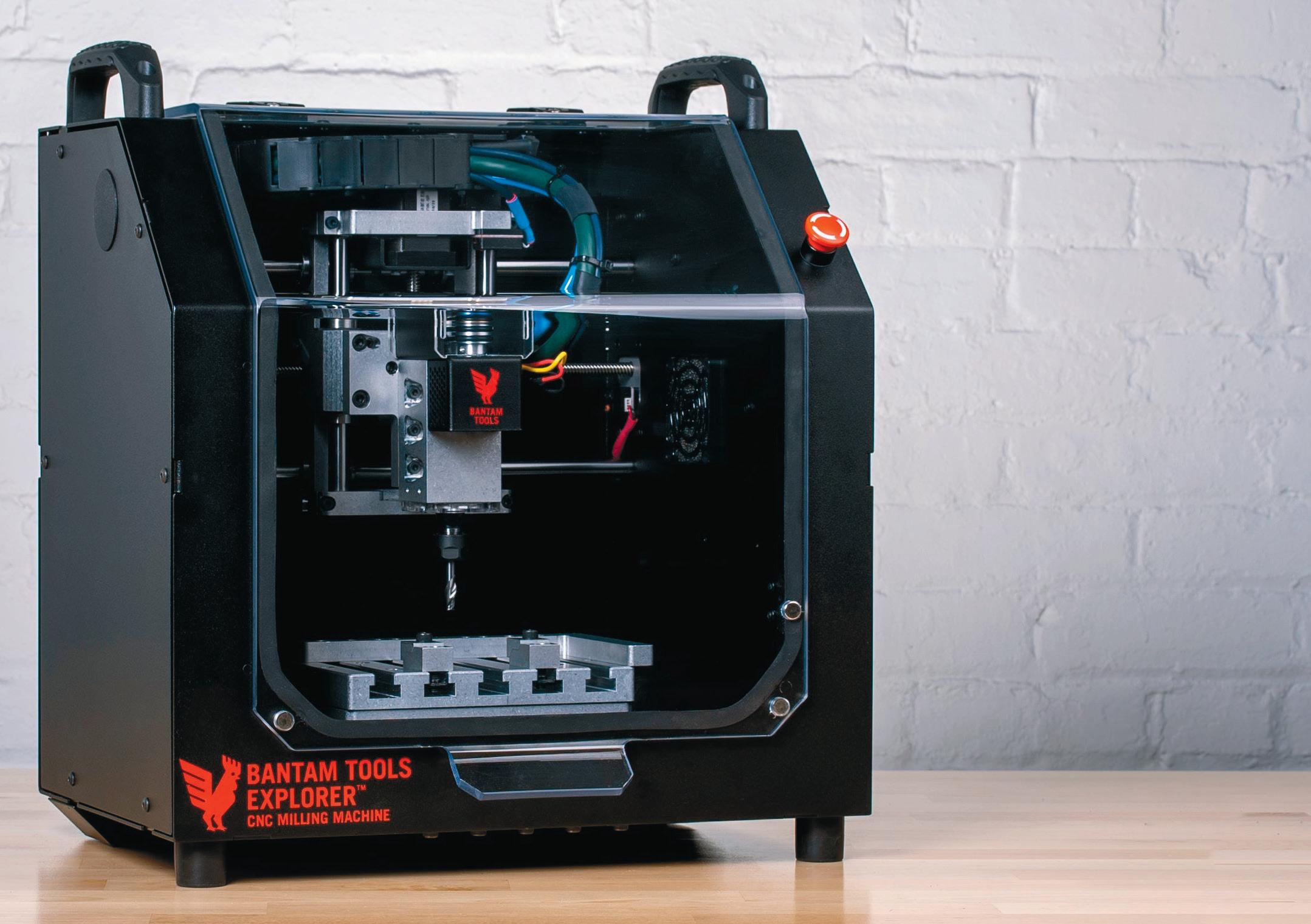
Sintered Nylon prototypes remain a firm favourite, and a popular choice for producing them in-house is the Formlabs Fuse. A straightforward menu of materials, including PA12, PA11 and glass fibre-filled PA12, typically gives users what they require in terms of functionality, with a powder refresh rate that makes continued use a less costly proposition. The Fuse Sift depowdering unit helps keep costs and footprint to a minimum, by combining a break-out station, material recovery and powder recycling.
www.formlabs.com

REQUIREMENT: FLEXIBLE MILLING
OPTION: BANTAM TOOLS EXPLORER
Loss of valuable floor space is a big problem in many workshops, particularly when machines not in use are hogging that space. So how about a CNC mill capable of carving detailed aluminium parts that can be stowed away discreetly or even packed into a pelicase and taken home for the weekend? That’s precisely what Bantam Tools has managed to pack into the dinky frame of the Explorer, which weighs in at just a smidgen over 23kg and comes with an array of peripherals that ensure any job is completed with ease.
www.bantamtools.com
DEVELOP3D.COM FEBRUARY / MARCH 2023 31 FEATURE
4
5
FEATURE
REQUIREMENT: ACCURATE LASER CUTTING OPTION:
LOTUS BLU60
From quickly slicing up cardboard for form models to engraving details and text onto metal parts, a laser cutter can perform a number of time-saving tasks. The Blu60 may be an entry-level model from Lotus, but it has been designed and built to
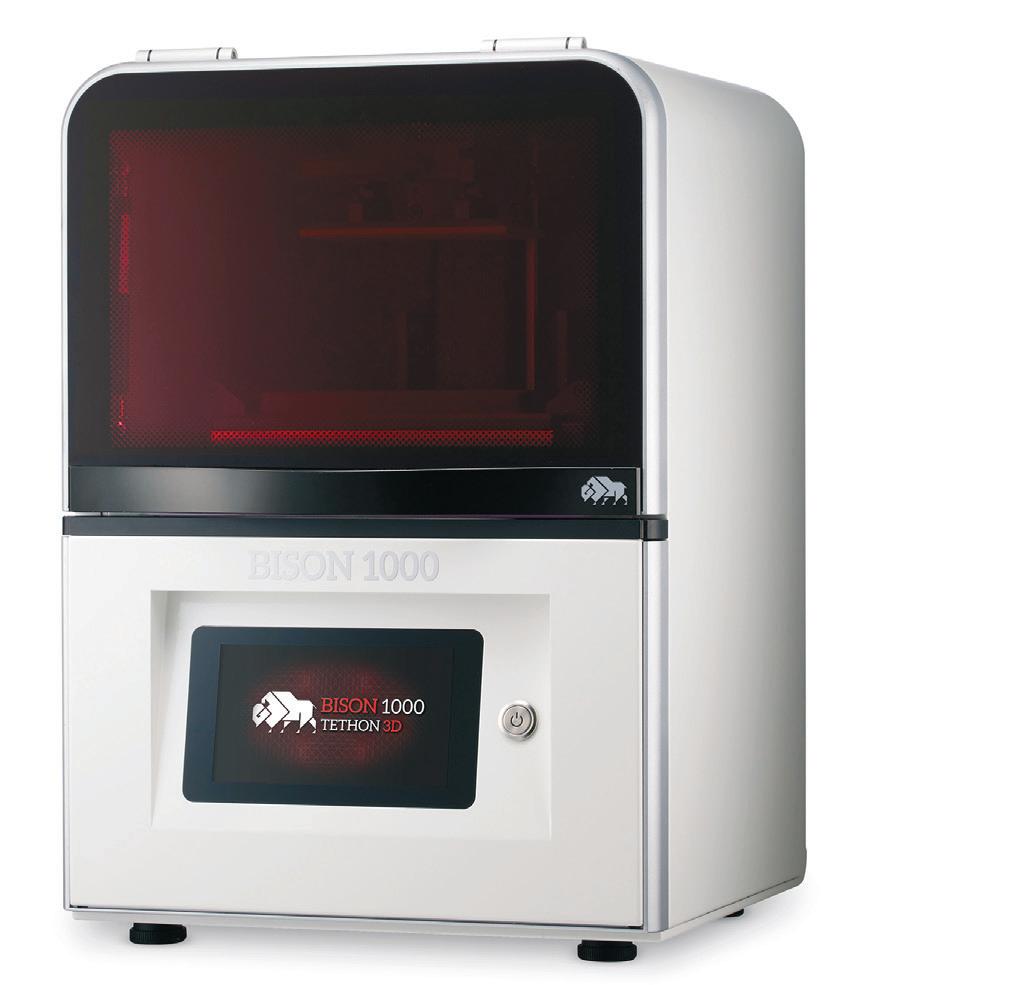
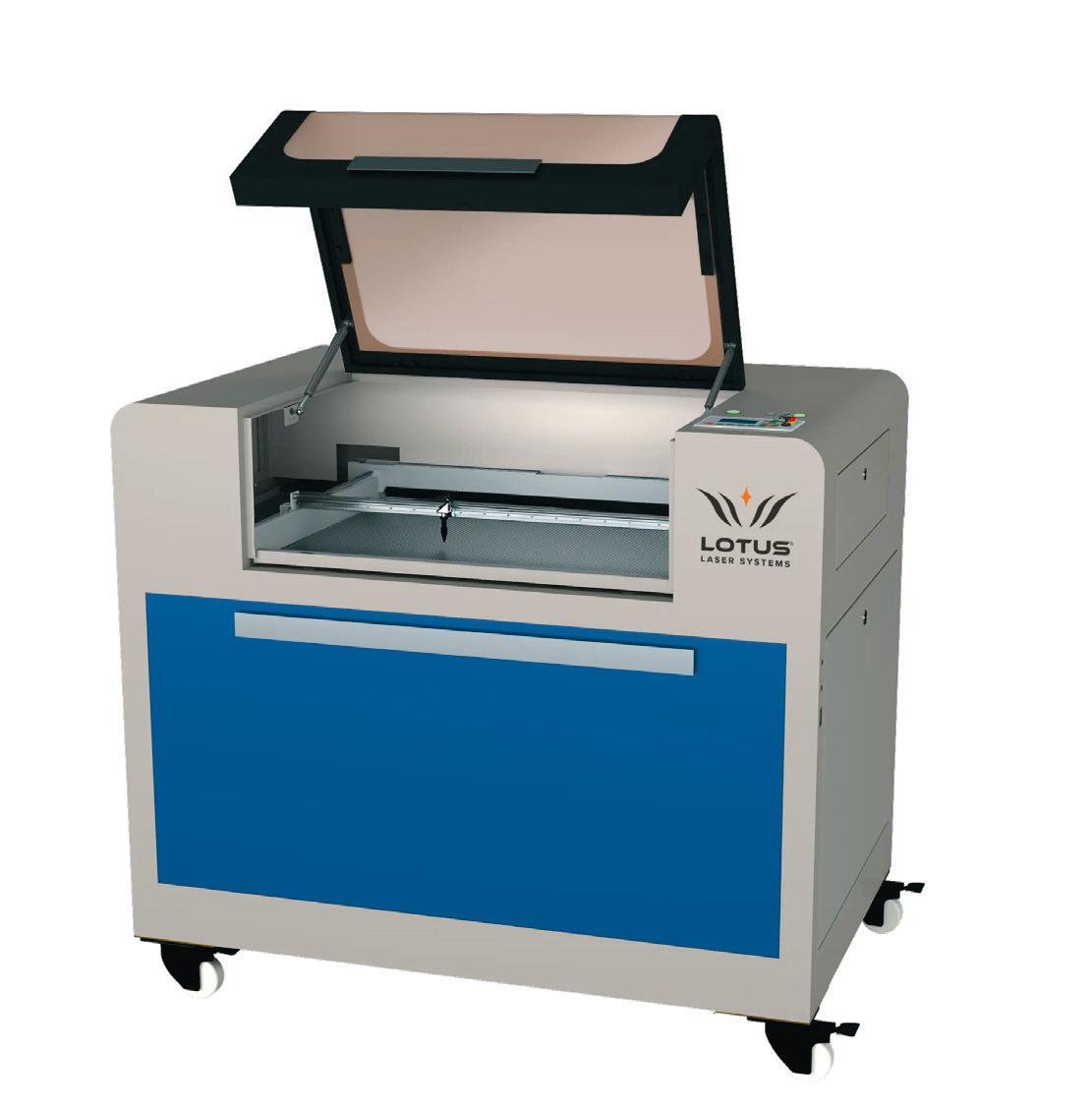
REQUIREMENT:
3D SYSTEMS TOUGH
Lenses, light guides and lighting covers can prove tricky to get right, especially if you’re looking to put them through their paces with physical tests. 3D Systems claims it has solved the problem with its Tough Clear resin for the Figure 4 3D printer. Tested to deliver mechanical performance that lasts eight years indoors and 1.5 years outdoors, parts should stand up well to real-world conditions. The machine itself remains one of the most versatile workshop SLA 3D printers available, supporting some 20 certified resins.
REQUIREMENT:
CERAMIC PARTS
OPTION:
TETHON3D BISON 1000
Ceramic parts are of increasing importance in all kinds of products, hence the growing interest in ceramics 3D printers even beyond the world of medical implants.
Tethon3D is primarily a materials developer for this technology and although its desktop Bison 1000 has been developed for testing these resin and powder combos, its build area and detail level make it an excellent, entry-level route into prototype parts and getting technical with potential material options.
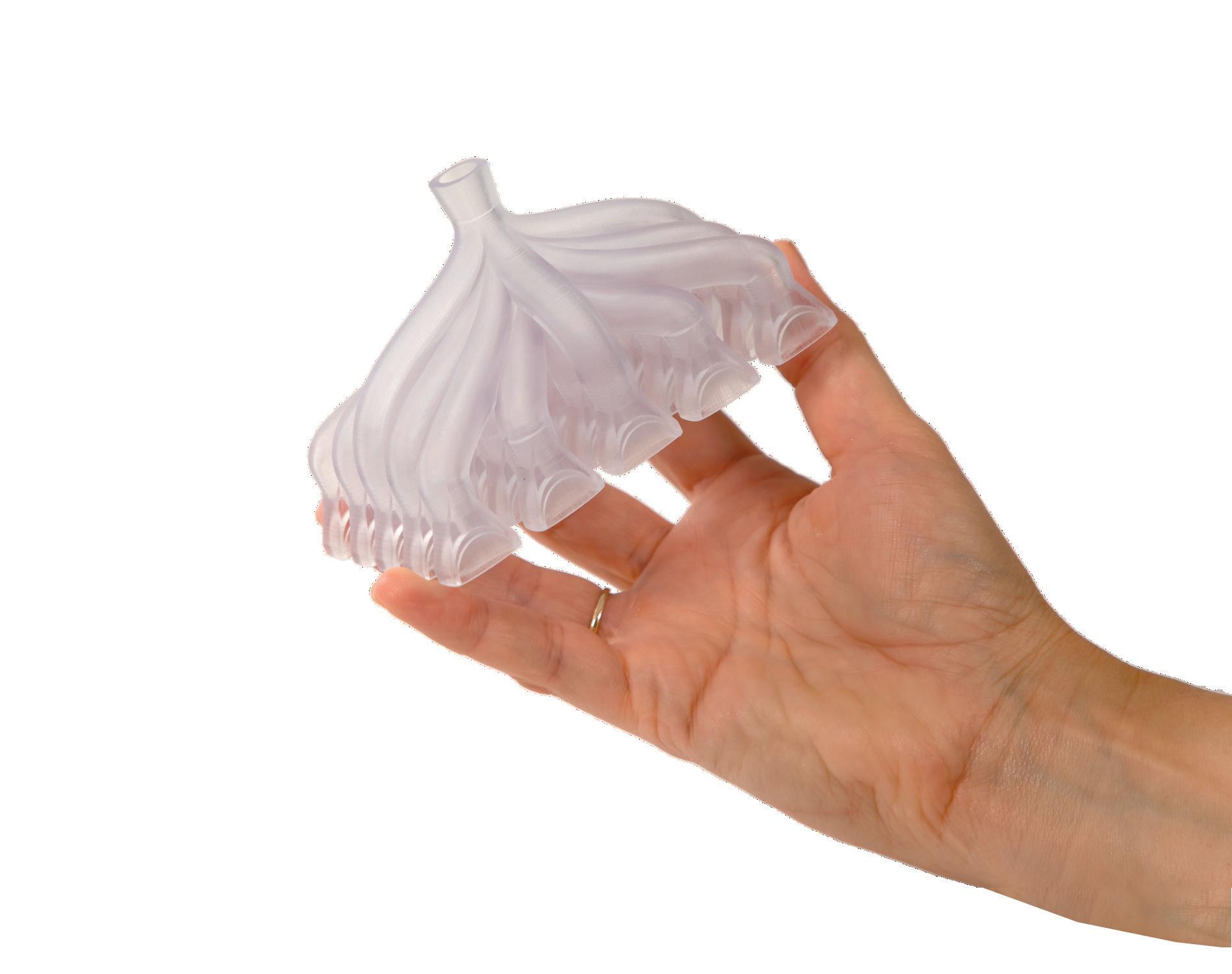
32 FEBRUARY / MARCH 2023 DEVELOP3D.COM
6
7
8
www.tethon3d.com

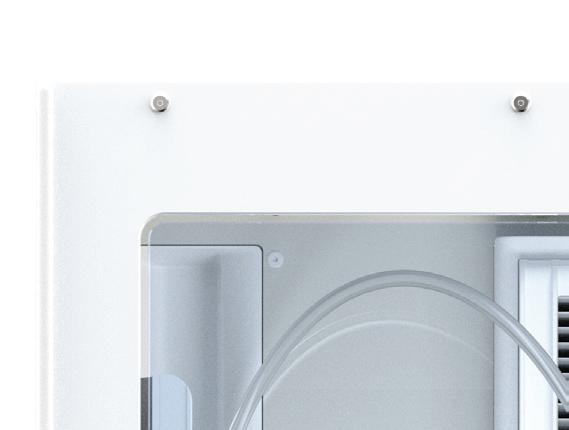
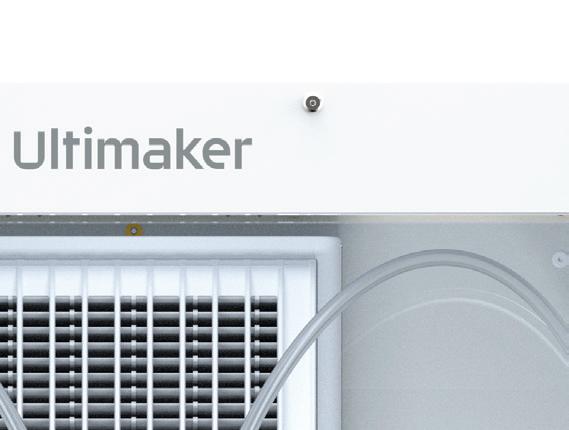
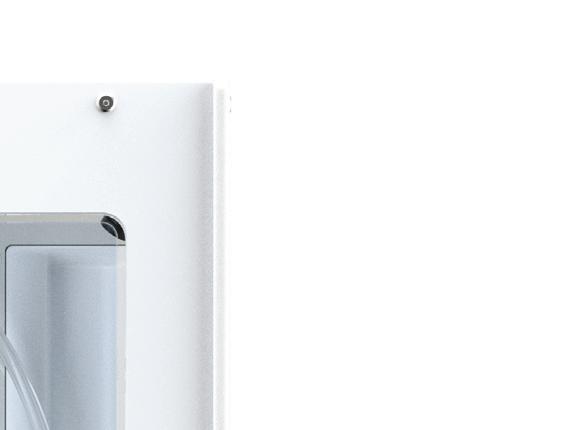


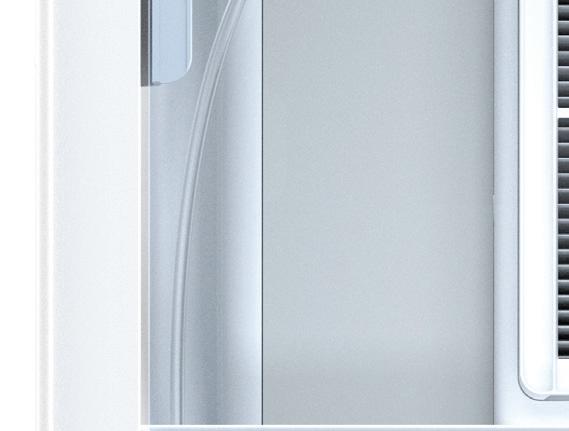

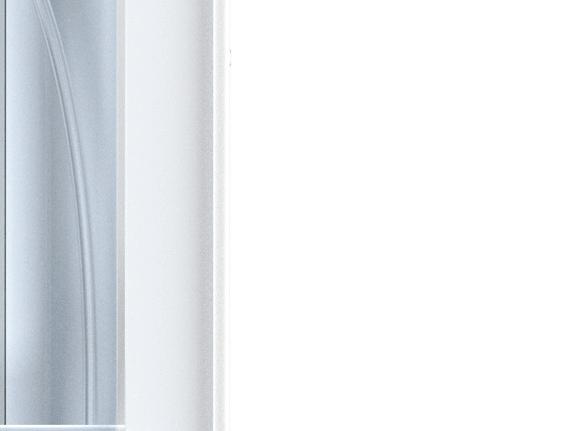


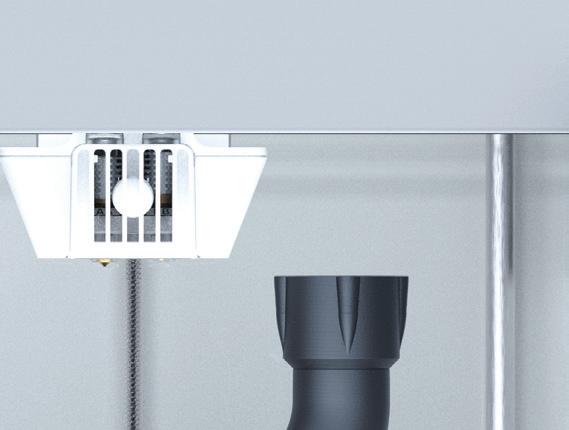



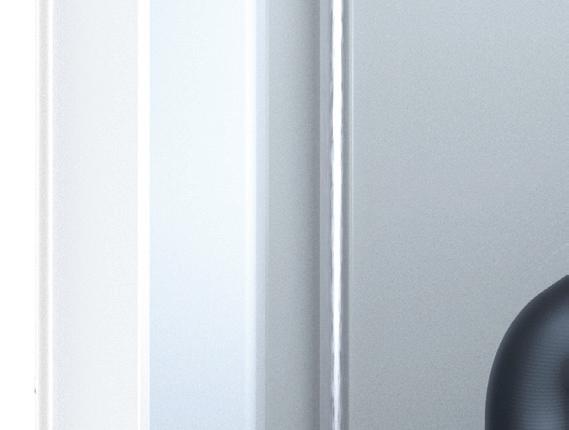
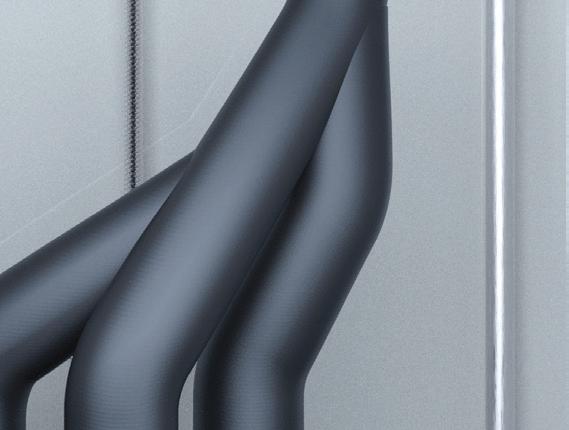
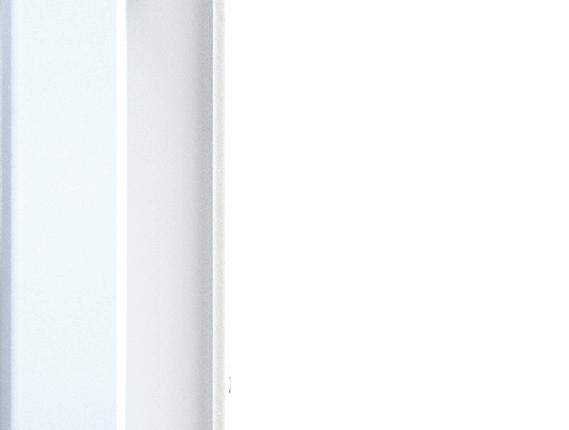

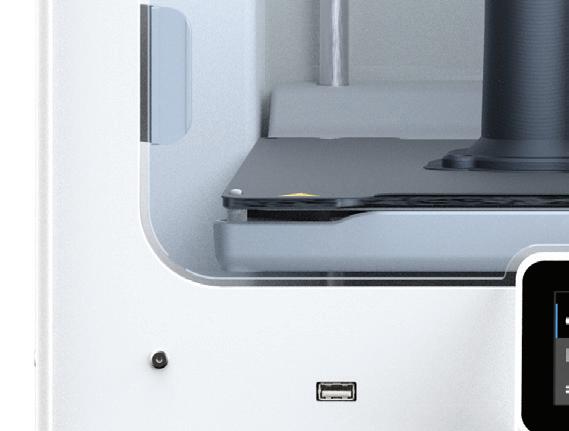
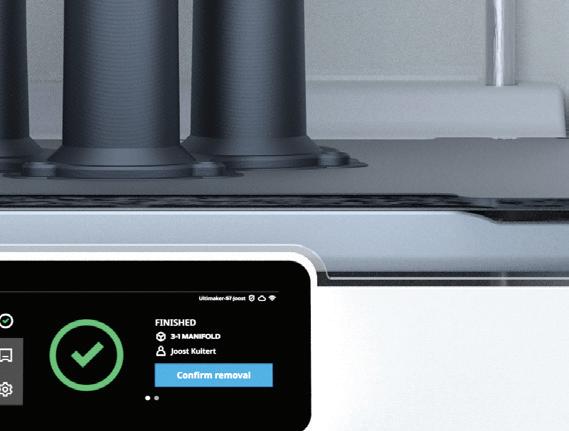
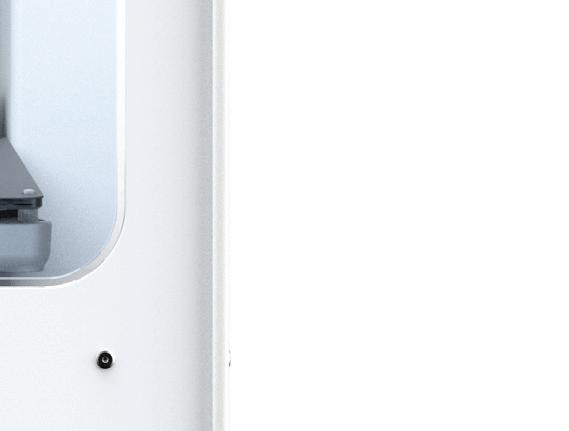




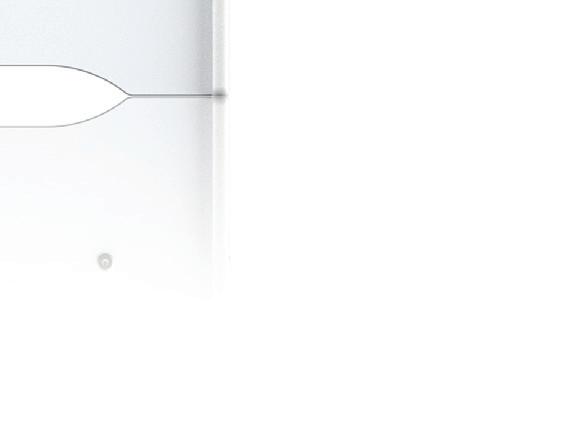













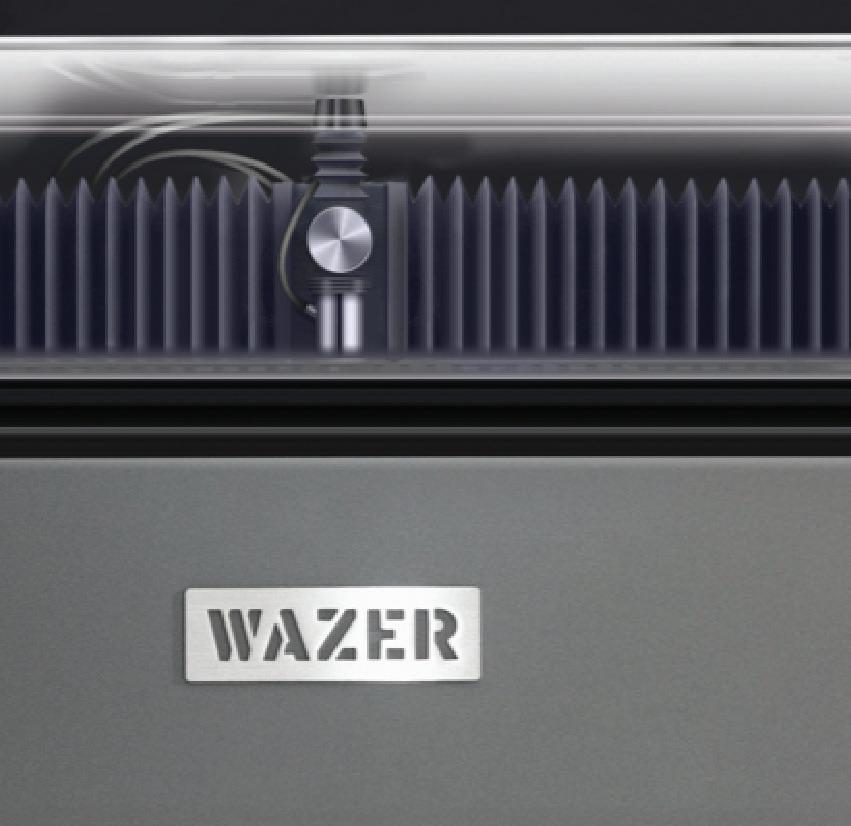











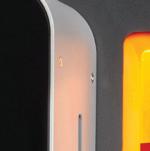
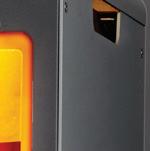

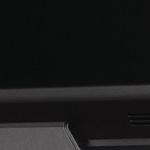

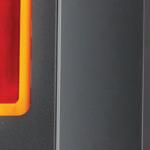



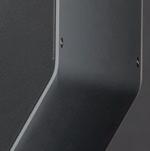


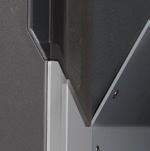
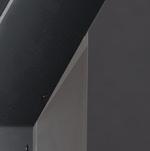












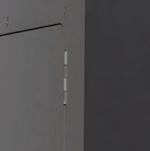


















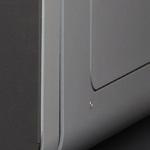
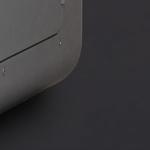











































































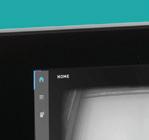
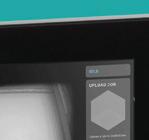












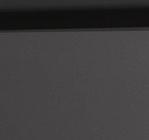



















































































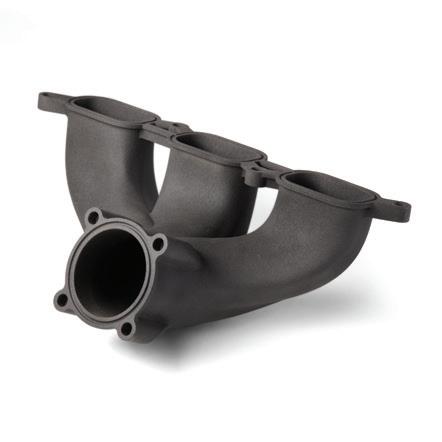
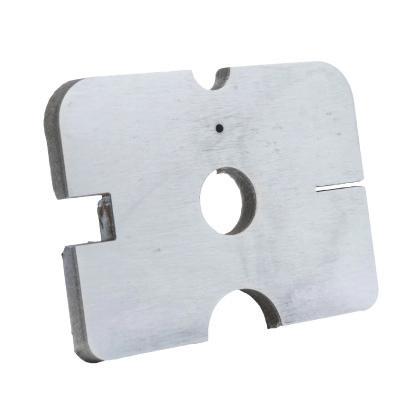

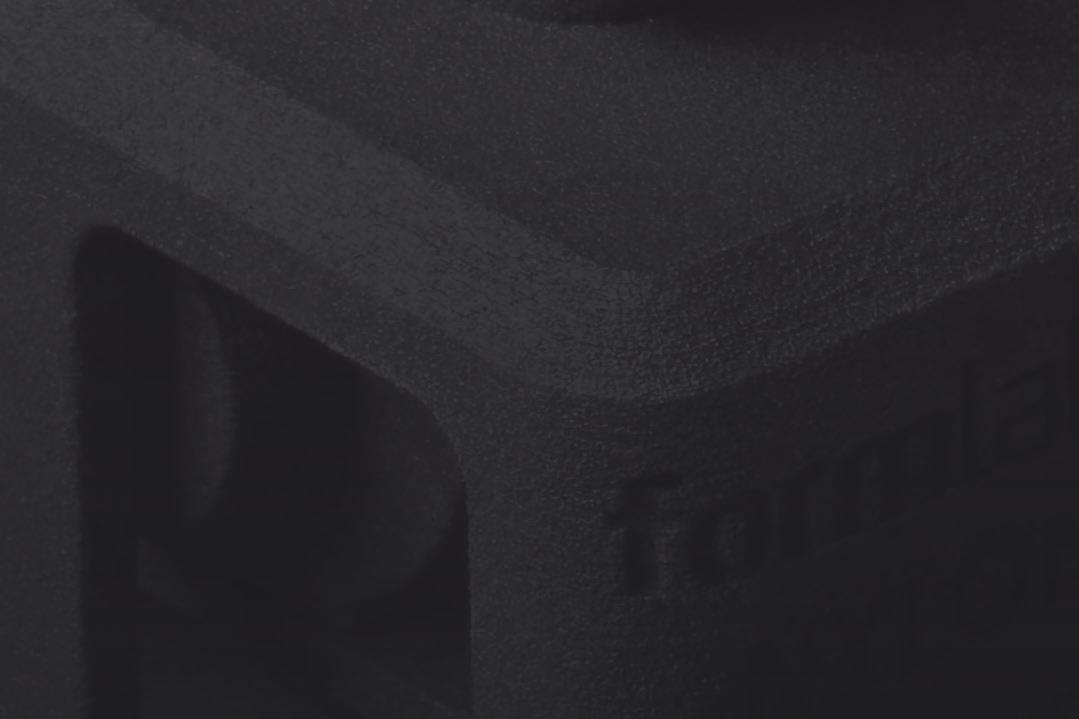

















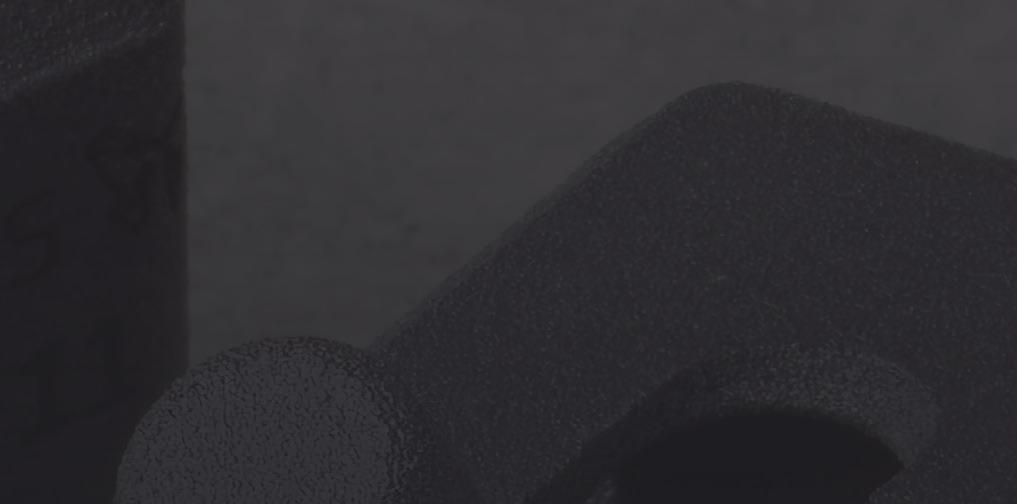





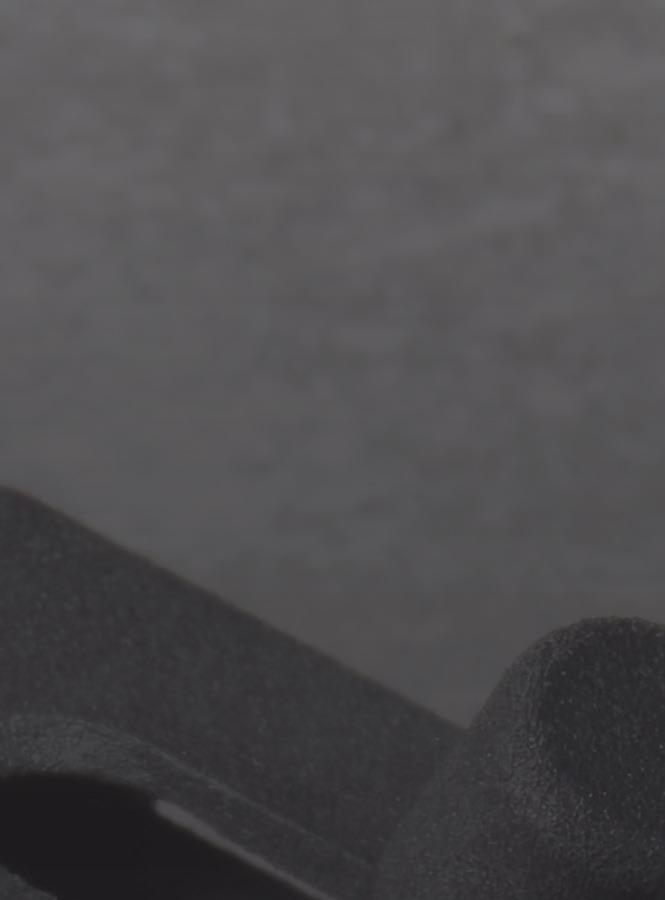




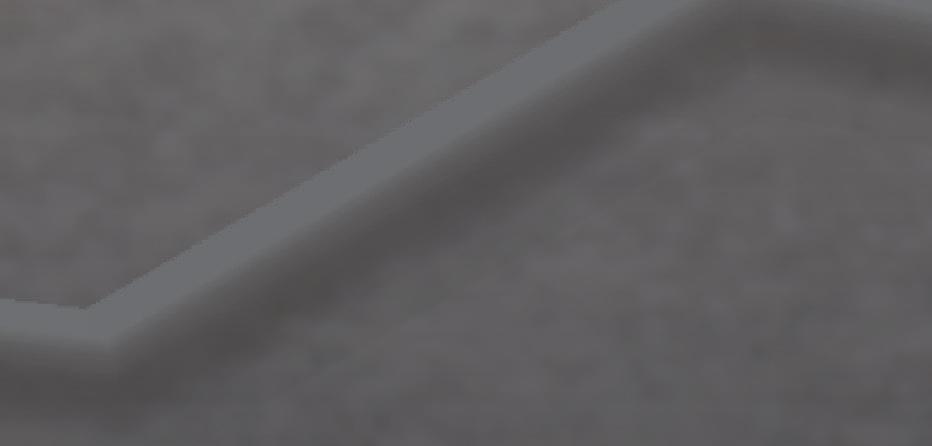


























































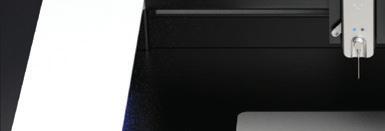
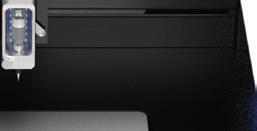


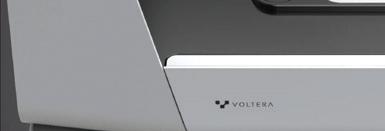
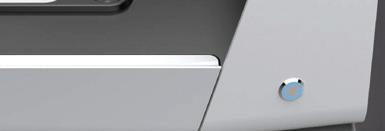



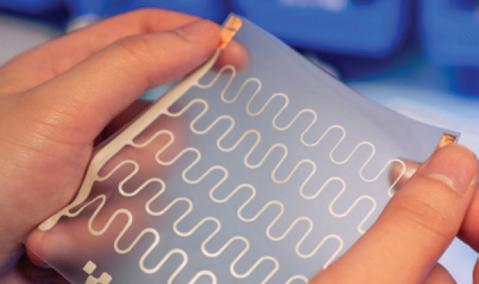




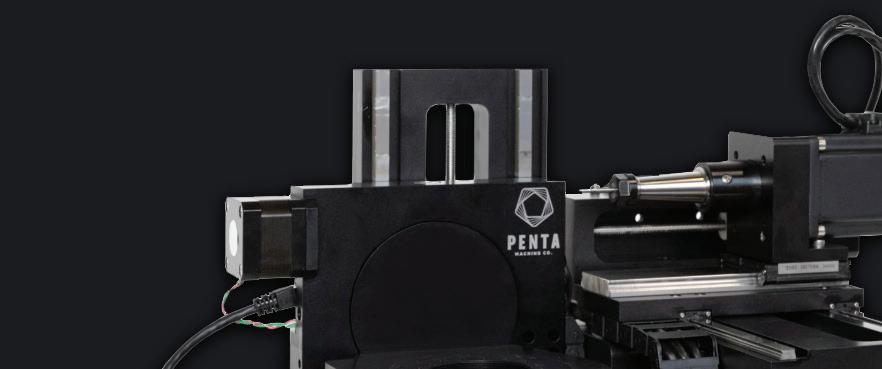

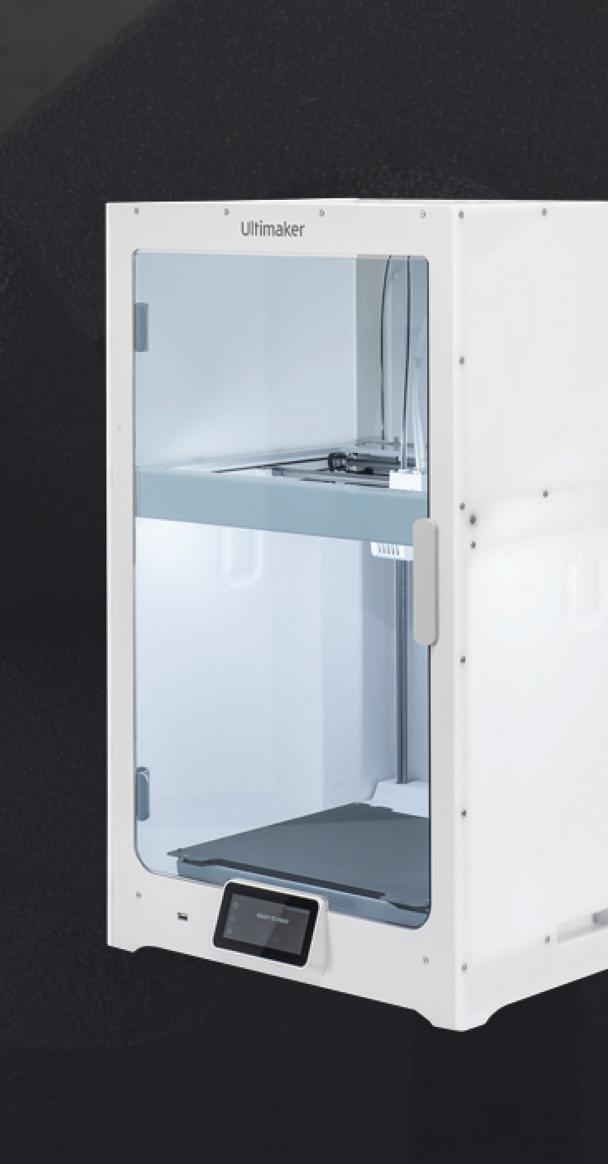
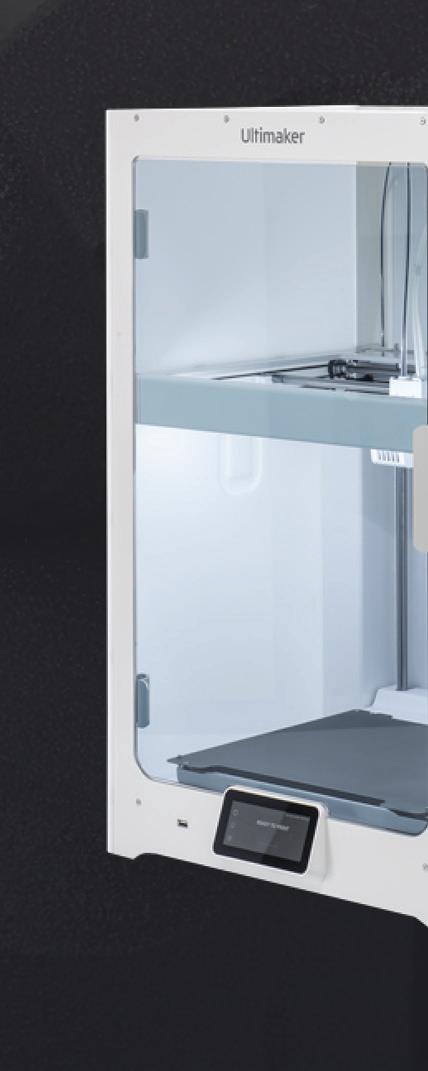



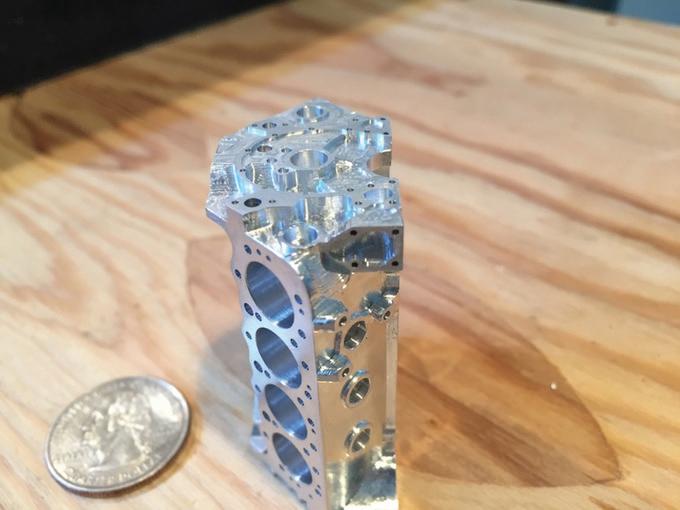


REQUIREMENT: SLICKER SCANNING
OPTION: AESUB TRANSPARENT SPRAY
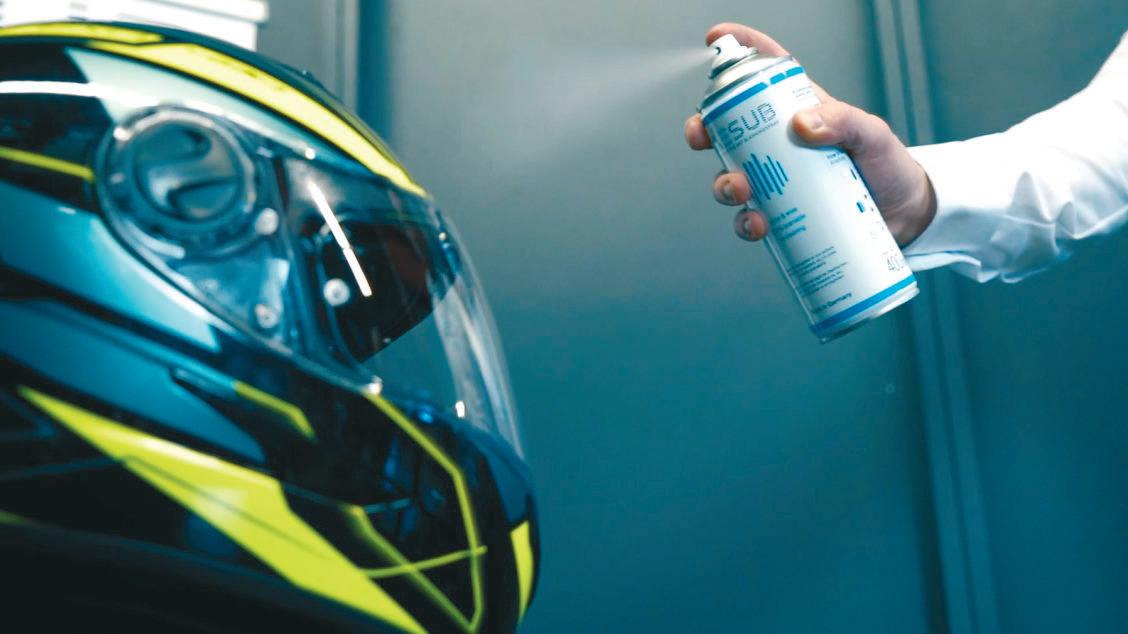
While we featured a wide selection of 3D scanner options in the October/November 2022 issue of DEVELOP3D, we should also mention some handy peripherals that can seriously boost ease-of-use in the workshop. Aesub offers some of the best. Its Target Frame allows smaller objects to be held while the frame itself acts as a positioning guide. Its vanishing spray range is a godsend when trying to capture reflective surfaces. And its transparent spray manages to carry out the task while capturing part colour.
www.aesub.com
REQUIREMENT: PRINTED CIRCUIT BOARDS
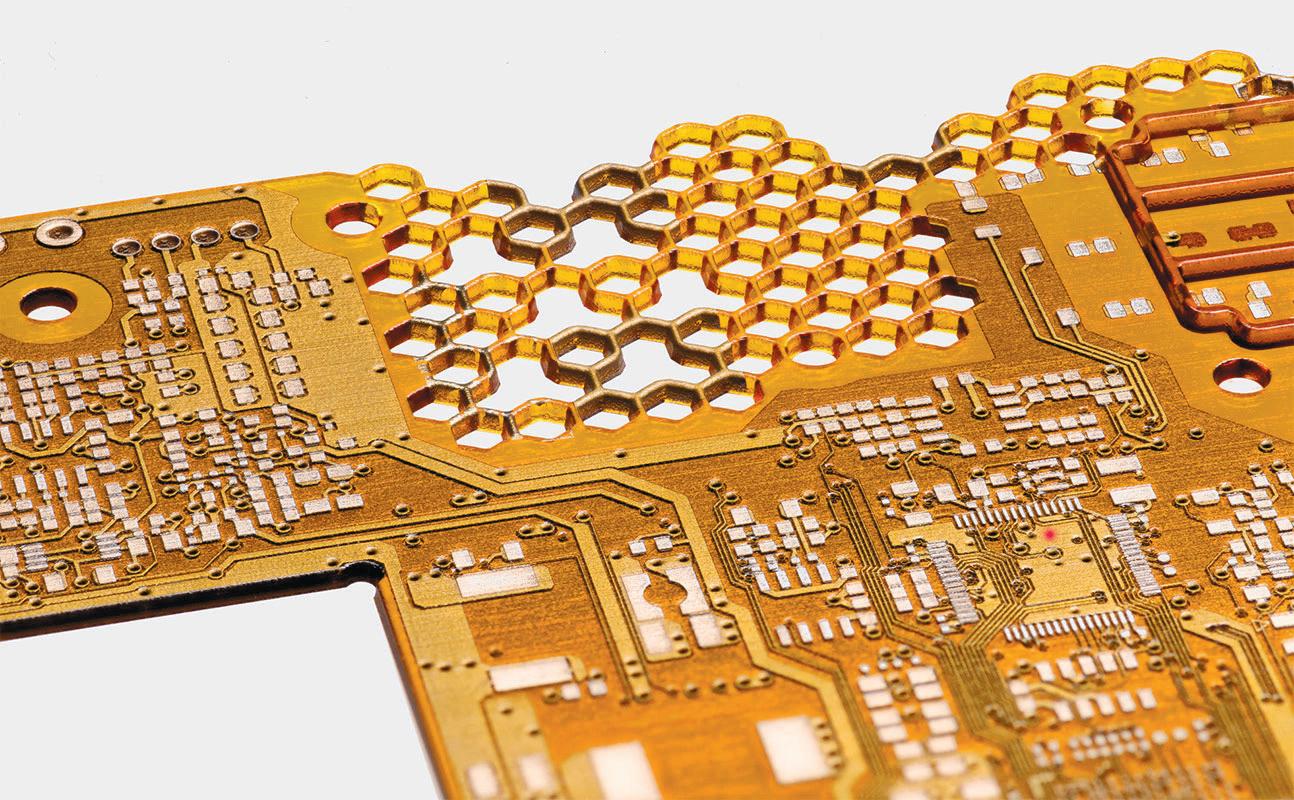
OPTION: NANODIMENSION DRAGONFLY IV
While 3D-printed circuit boards may be the future in terms of cramming even more circuitry into an organically shaped product, simply having the option to print a prototype board can supercharge prototyping. NanoDimension’s Dragonfly IV 3D printer allows for design flexibility and novel form factors, as well as miniaturisation by 3D printing in a dielectric ink (photopolymer) and a highly conductive silver nano ink.
www.nano-di.com
REQUIREMENT: BIG BED CNC
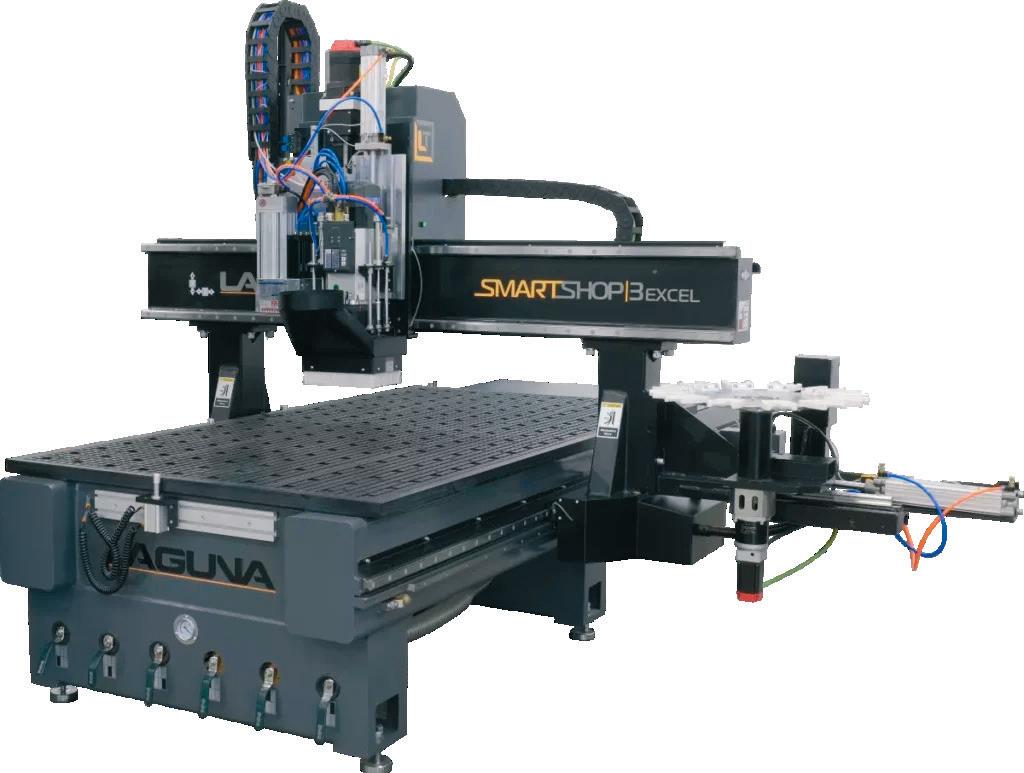
OPTION: LAGUNA TOOLS SMARTSHOP
10
Sometimes being able to hack a bit of wood into a precise shape for a frame or a buck can be priceless in terms of the speed involved in turning an idea into tangible form, or for simply delivering quick-and-dirty jigs and fixtures. A big-bed CNC router is a great way for fitting big parts or copious smaller elements. Laguna Tools offers a broad range of options, with its SmartShop range boasting easy-to-use features. Spending a little extra, meanwhile, adds industrial Fanuc CNC controls to the mix.
www.lagunatools.com
36 FEBRUARY / MARCH 2023 DEVELOP3D.COM FEATURE
9
11
REQUIREMENT: WORKHORSE MILL OPTION: TORMACH 770M
A multi-axis workhorse can lead to all sorts of headaches if your workshop isn’t set up for one. Enter the Tormach 770M, which runs on single-phase power, operates within a neat footprint and boasts a modular design that enables you to start making parts straight away. It also offers the ability to add extra functionality further down the line, when needed or when budget allows.
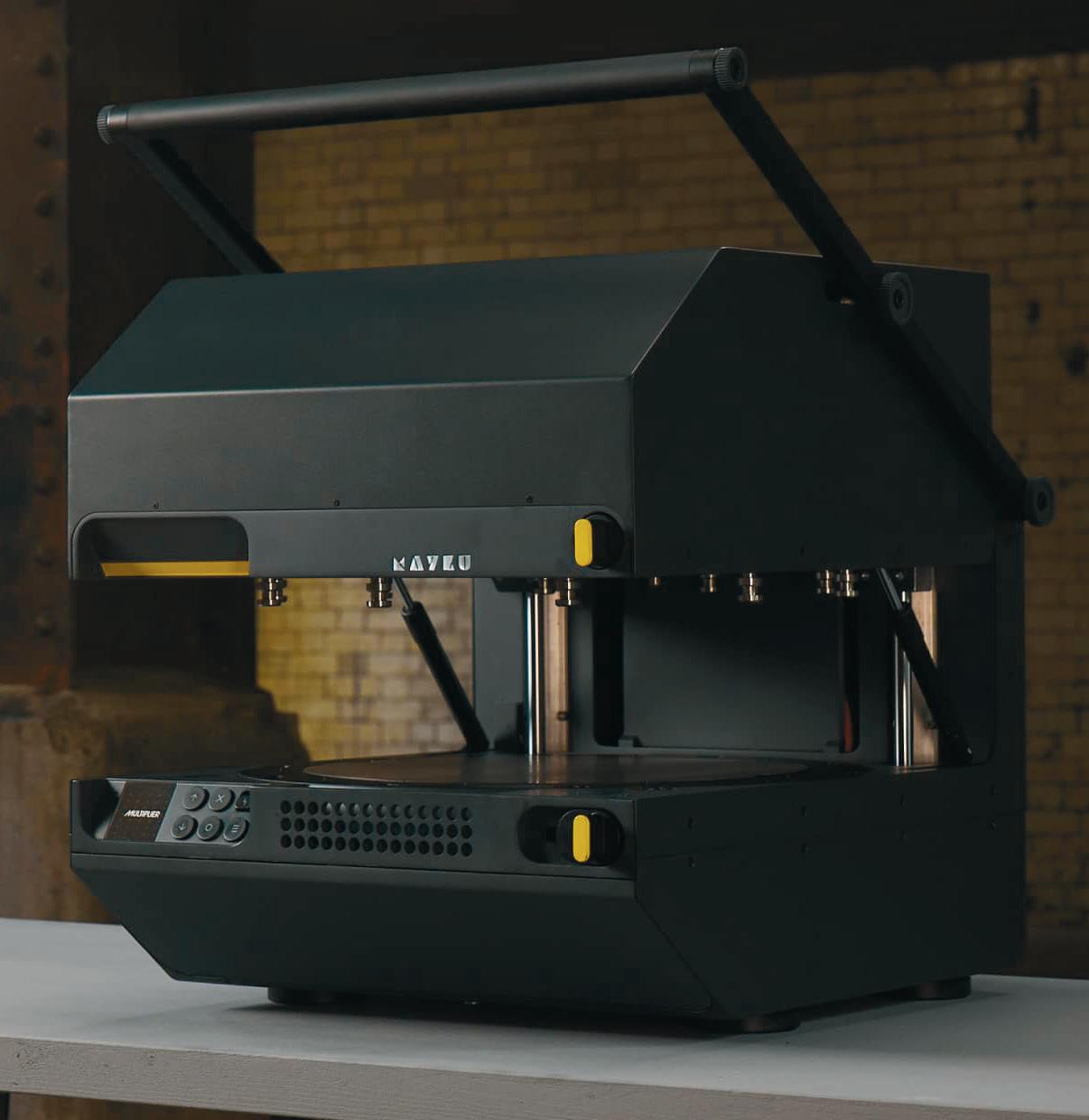
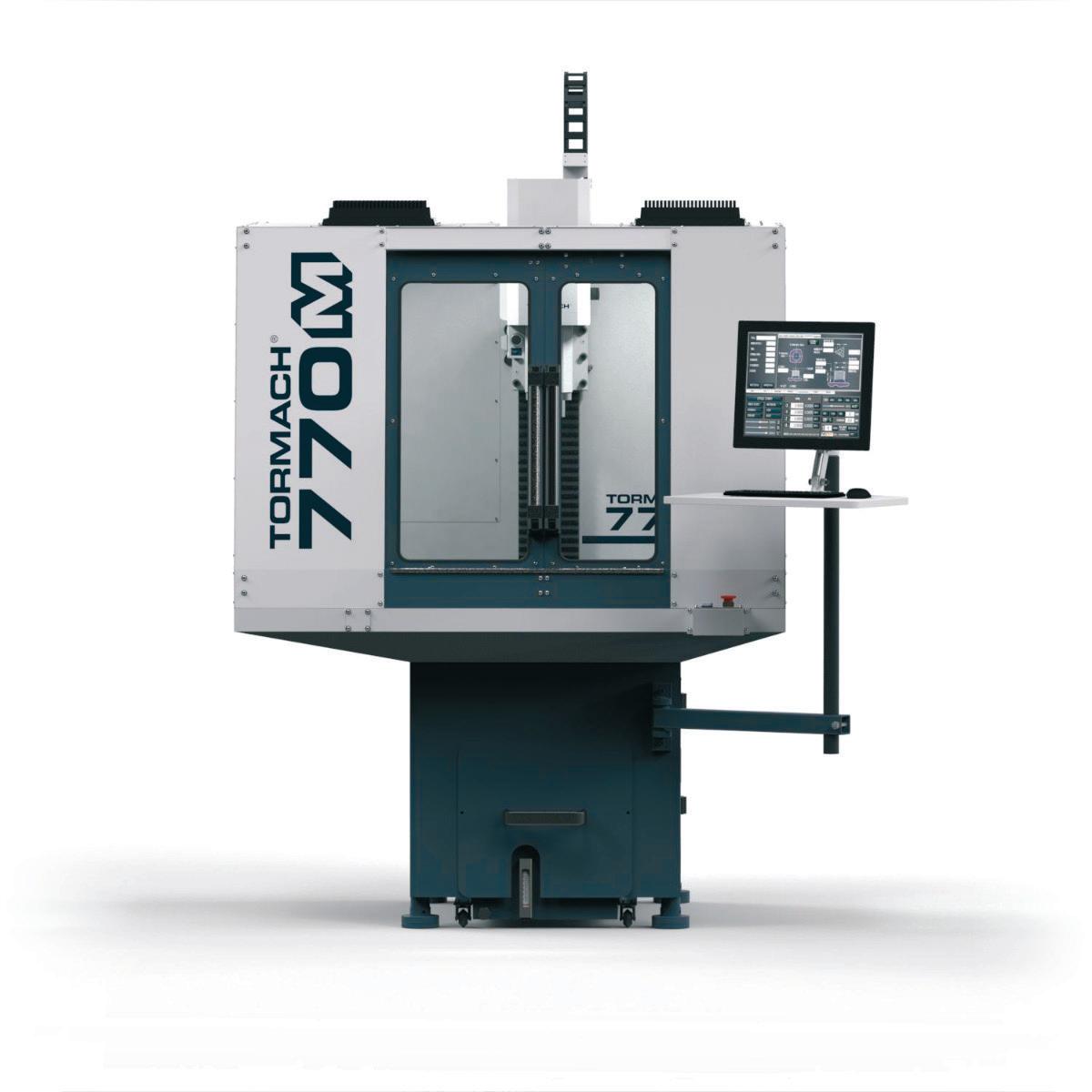
www.tormach.com
REQUIREMENT: REPEAT AND MULTIPLY
OPTION: MAYKU MULTIPLIER
Sometimes repeatability is key, and one of the quickest means of achieving this is to create a mould. The Mayku Multiplier is a desktop vacuum former that can capture details finer than a human hair, maintaining sharp edges in your design over its 400mm-wide circular forming area with 160mm of height. Capable of shaping up to 8mm thick sheets in under 10 minutes, you can use as a template an existing part, a 3D print or even a carved potato, with PETG and flexsheet moulds allowing you to make true silicone or resin parts with slick surfaces.
DEVELOP3D.COM FEBRUARY / MARCH 2023 37
12
13
www.mayku.me
NEXT GENERATION
As the Metaverse, augmented reality and virtual/mixed reality become more mainstream, 3D content consumption is set to increase dramatically. And with a rise in demand for 3D content, we anticipate a golden opportunity for 3D creators.
In turn, this will require those creators to be more productive, a benefit that generative AI, used appropriately and equitably, could deliver. At Physna, that got us thinking: by overcoming the complexity issues inherent in 3D data, could we unlock its biggest advantage – the fact that it is so incredibly data rich?
If so, a fairly small number of 3D models could be used to create or influence entirely new generated models. In other words, a creator’s past work could be leveraged in the development of their new work. In the process, this would make 3D models and scenes more valuable to the user themselves, while at the same time helping to overcome the risks associated with the use of third-party data.
The challenge here is that, despite the opportunities it creates and its massive potential, generative AI has taken
longer to reach 3D than it has other use-cases. An overview of generative AI applications reveals a range of companies generating everything from creative text to videos, code and images, but also shows that there’s comparatively little in the offerings aimed at 3D models and scenes.
STUMBLING BLOCK
So what makes generative AI so hard in 3D, when it’s growing so quickly elsewhere?
One issue is the complexity of 3D itself. Models are traditionally hard to create and exist in a wide array of non-compatible formats. Surprisingly little attention has been paid to 3D model analysis compared to 2D formats such as text, images, video and so on.
Put simply, fewer companies are equipped to focus on 3D, as it has been a more difficult nut to crack in general at the analytical level – let alone in generative AI.
Another issue is perhaps best summarised by Google’s DreamFusion team: there just isn’t as much 3D data as there is 2D data. Just as with Nvidia’s recently announced Magic3D technology, Google’s DreamFusion team
At Physna, the team is experimenting with using AI to automate scene generation, based on the technology’s analysis of previous 3D CAD models
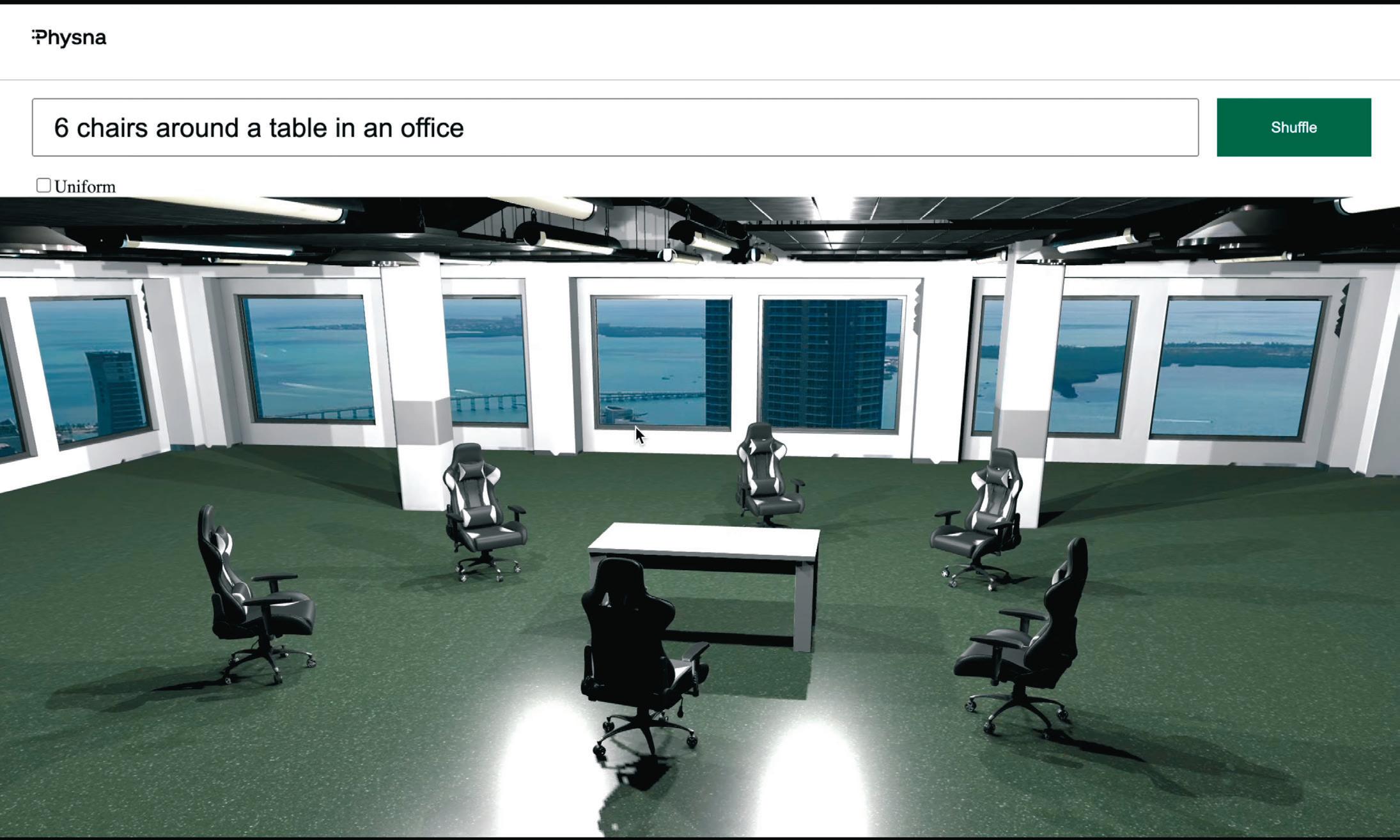
38 FEBRUARY / MARCH 2023 DEVELOP3D.COM
Generative AI tools have taken the world by storm, but 3D has yet to be truly impacted. Physna’s Paul Powers recounts the company’s sprint to build a prototype tool and explains what it might mean for the future
GENERATION
used NeRFs (neural radiance fields), which may best be thought of as lying somewhere between 2D and 3D. They’re also empty ‘shells’, because they lack any internal components and geometry. This means you not only have less information on the object at hand, but it’s also much harder to draw conclusions about what makes it ‘it’.
So, while training on NeRFs can perhaps be more beneficial than using 2D, as Google’s DreamFusion team noted, NeRFs simply aren’t a very good substitute for true, labelled 3D models. This means that, without a solution, generative AI won’t work in 3D nearly as well as in other areas for the foreseeable future.
BACKGROUND IN SEARCH AND ANALYSIS
Key to this story is that AI hasn’t been our business model at Physna. The company is essentially a 3D search and analysis company, focused on engineering and design applications in AR/VR and manufacturing. However, on seeing the fun that seemingly every other industry was having with AI, we realised that we had the means to overcome the issue of 3D data scarcity in a very simple way.
In short, Physna owns the world’s largest labelled 3D database, as well as the appropriate licensing to utilise it.
But, given the compute costs associated with generative AI, utilising this would be an expensive way to run a prototype. Instead, put simply, we realised it would be even more valuable to determine whether a lot more could be done in generative AI with a lot less 3D data than was previously thought.
Our hypothesis was simple: a deeper understanding of the 3D models at hand would mean fewer models would be needed to reach scalable and meaningful generative AI in 3D.
After all, while the downside to 3D is the complexity of its data, the upside is how data-rich those 3D models might be, compared to other assets like 2D images.
This was a challenge we felt uniquely well-positioned to tackle. Our entire business is built on our core technology, which ‘codifies’ 3D models – that is, it creates a digital DNA, representing model geometry, features and attributes in a normalised way.
Doing this allows us to identify how all models are related to each other, including at the sub-model level. This relationship matrix then enables us to use humangenerated labels to propagate exponentially more labels, at a rate of between two and three orders of magnitude. This labelling system is not only scalable, but also quite reliable, because we use a two-step process in its creation.
In the first step, we use a patented set of deterministic algorithms to create the first level of a model’s DNA, mapping out every attribute of the model, its exact geometry and features, and normalising the model. This step is crucial to ensure that things that look vaguely familiar aren’t misidentified when precision is key, and it shows how every feature or part should fit together.
The second step is the use of a proprietary set of nondeterministic algorithms enhanced by deep learning, which is equally critical in enabling model generation.
This step also ensures that models of different sizes and shapes (that is, with no ‘matching’ geometry or attributes) are understood at the conceptual level.
This combination gives us a deep understanding of each model, how it relates to other models, what features/ components make up a model and where else those are present.
It means that, for every 3D model or scene used in training, we can learn significantly more and make 3D model and scene generation work more effectively, with significantly less data.
SCENE GENERATION
After a brief test where we generated 3D models of a cheeseburger and a cupcake (we like food!), we moved on to the more challenging prototype: scene generation.
After all, once you can generate both models and entire scenes, you’re only one step away from the ability to add in motion and create an entire metaverse or mixed reality world of your choosing.
We limited our project to around 8,000 models from the Amazon-Berkeley library. By any standard, that’s very little to train on: Stable Diffusion in 2D initially trained on roughly 600 million images for comparison.
We believed that, by first analysing the models as planned, there was a reasonable chance that this small dataset would be enough to create a very simple prototype.
By simple, we do indeed mean simple. The prototype was limited to furniture. Some of the examples shown are perhaps a bit silly – like vases arranged around sofas in outer space – but the point was to have fun with this and to see what, if anything, could be built in just two weeks by three engineers while training on just 8,000 models.
The results were considerably better than we had anticipated. An unexpected takeaway from these tests was that, using our approach, the toughest part of generative AI in 3D was not generating the model or scene itself, but rather overcoming comparatively simple bugs (like model collision) in a short development time frame.
While the decision to use such a small dataset certainly limited the scope of the prototype, the results prove that generative AI in 3D, both at the object and scene level, can indeed take advantage of the sheer volume of data present in 3D models.
This is particularly promising news for end-users, where even a comparatively small dataset can suffice to greatly influence the models generated. That means that individuals and businesses could use their own models to generate new 3D assets uniquely tailored to them. In this way, 3D generative AI may serve not only as a force multiplier for designers and creators, but also one that keeps firmly in mind their individual styles and use cases.
We’re actively expanding our focus on AI here at Physna. And we’re opening our doors to any AI researchers who might be interested in joining the team effort to help build further equitable, generative AI, so do feel free to get in touch. The future won’t build itself – or at least, not yet.
www.physna.com
DEVELOP3D.COM FEBRUARY / MARCH 2023 39
‘‘
Once you can generate both models and entire scenes, you’re only one step away from the ability to add in motion and create an entire metaverse of your choosing ’’
OPINION
ACWA-ROBOTICS TAKES ROBOTS UNDERGROUND WITH FUSION 360
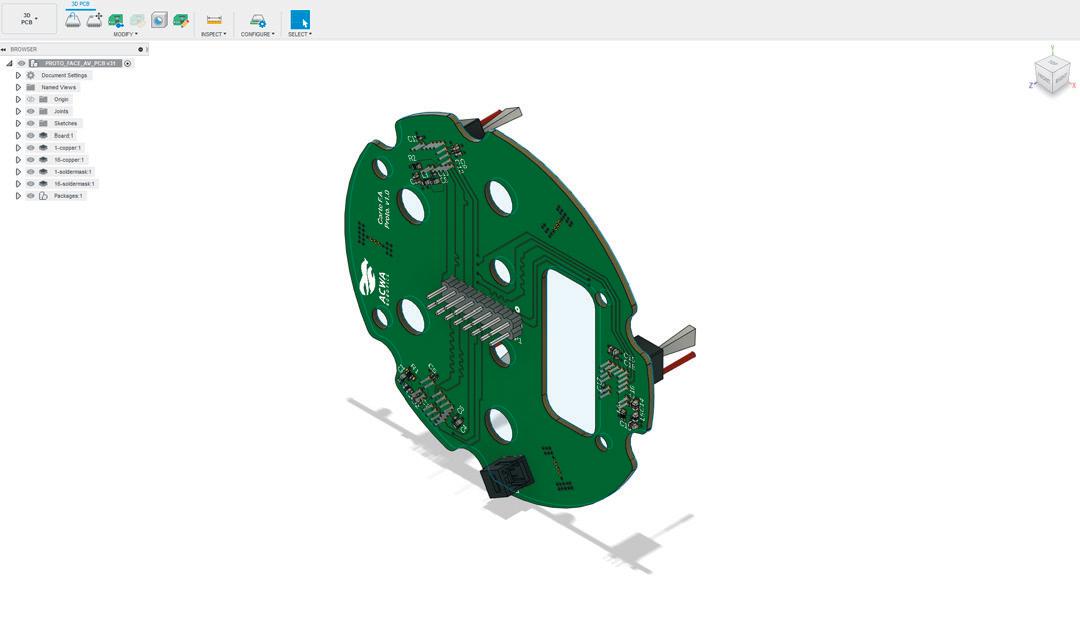
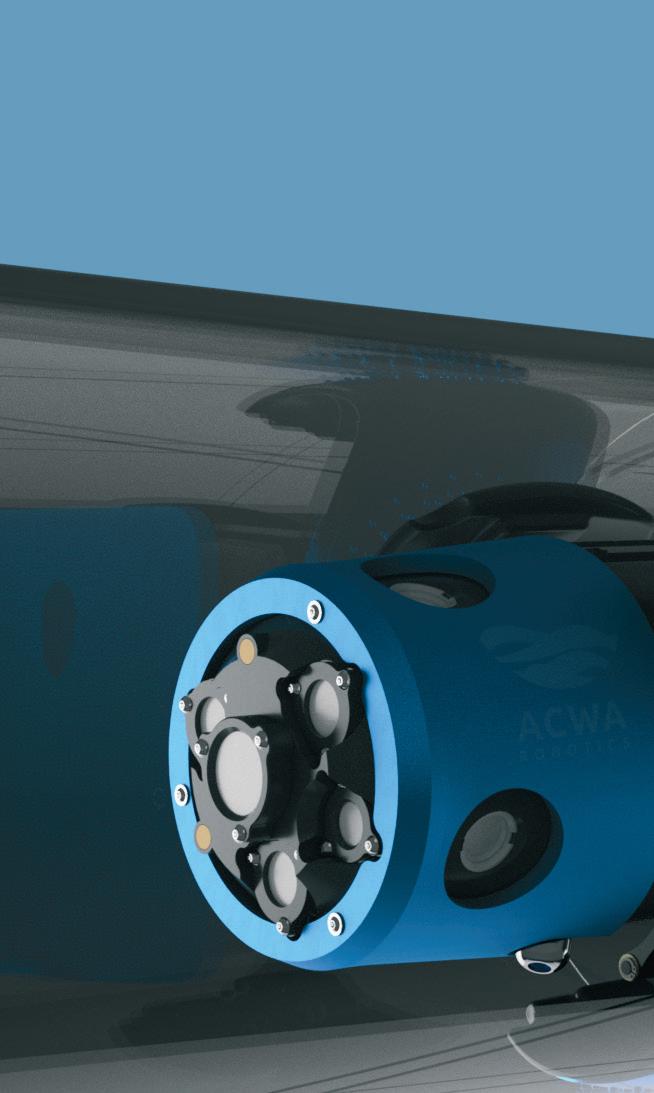
Turning on the tap for a glass of water or to wash the dishes is a seemingly simple, everyday occurrence that we often take for granted. But the journey water takes to a tap is epic, as it travels through one of the most complex and inaccessible networks imaginable.
The sheer number of drinking-water pipes is massive—and the system is mainly underground. Trying to monitor pipe conditions and predict potential maintenance or failures has been next to impossible. Until now. Robots are on the way to help keep the water flowing and even help us to conserve it.
Developing New Robotics for Water Systems
ACWA-ROBOTICS is a startup in France that designs, develops, and manufactures autonomous robots for the mapping and inspection of drinking water networks. According to the company, the drinking water networks in France represent a linear distance of one million kilometres, which is equal to all the roads in the country combined. The worldwide estimate is around 40 million kilometres.
ACWA-ROBOTIC’s goal is to provide reliable and precise information on the state of these water infrastructures. Operations can be optimized with
better management and insights of pipes that may need repair or replacement. Water departments can also plan and prioritize investments based on data from the existing network. Above all, millions of gallons of water can be saved by identifying leaks and enabling preventative maintenance.
In 2017, Jean-François Rossi first realized the need for a solution and started working on the idea for a pipe-travelling water robot. Joined by JeanFrançois Guiderdoni in 2018, they set up a team of four people to develop the first proofs of concept. Now, with a team of 14 people, the company has completed its pre-production version of their first
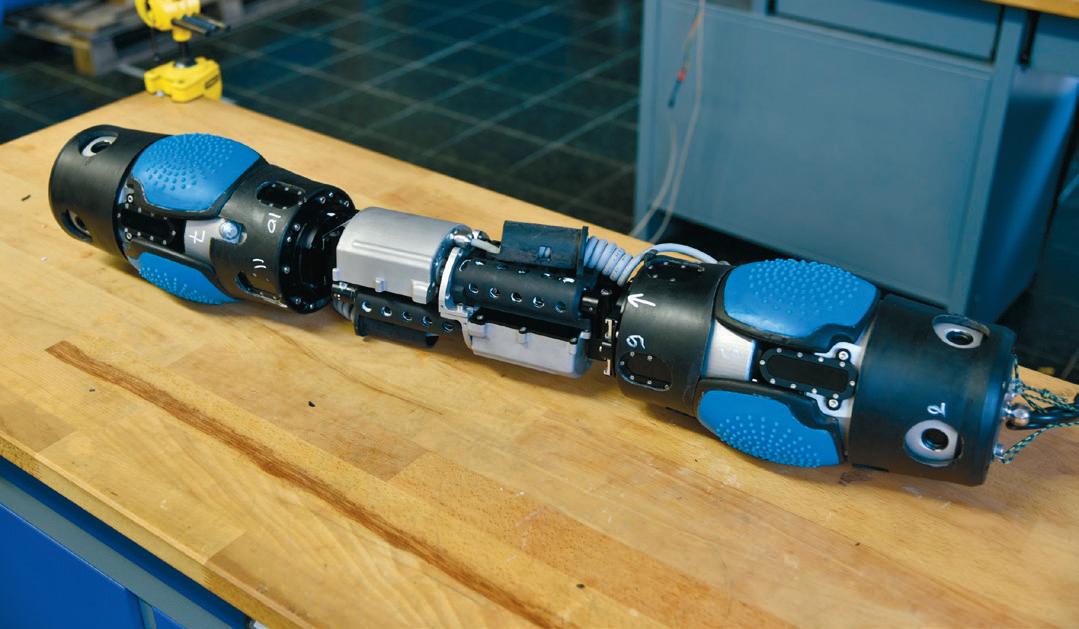
Sponsored content Autodesk Fusion 360 Electronics for PCB design
The robotics company has designed a robot that navigates water pipes, helping water management systems prevent leaks and conserve water
robot, named ACWA Pathfinder, and will begin commercial deployments by summer of 2023.
Collecting Data in Water Pipes
Sending a robot on a trip through a water pipe network is just as complex as you might think. First, there is the collection of information about the network and what the robot should be monitoring. Then preparatory work begins to create introduction points and positioning points to recharge (after 3 kilometres) as the robot travels the network to map and collect data. Once the inspection is complete, the processed data is provided to the client via ACWA’s SaaS application or as a dataset.
But what kind of information is the robot actually collecting? It gathers the diameter of the pipe, highdefinition images, measurement of residual thickness of the pipe, presence of surface oxidation, and even audio. Water data includes temperature, water flow speed, water hardness, turbidity, and pH. All the data is structured around a set of points defining the route of the pipeline, which are geo-referenced by latitude, longitude, and elevation (in relation to land surface) with a maximum deviation of only 40 cm from reality.
Water Pipe Robot Becomes a Reality with Autodesk Fusion 360
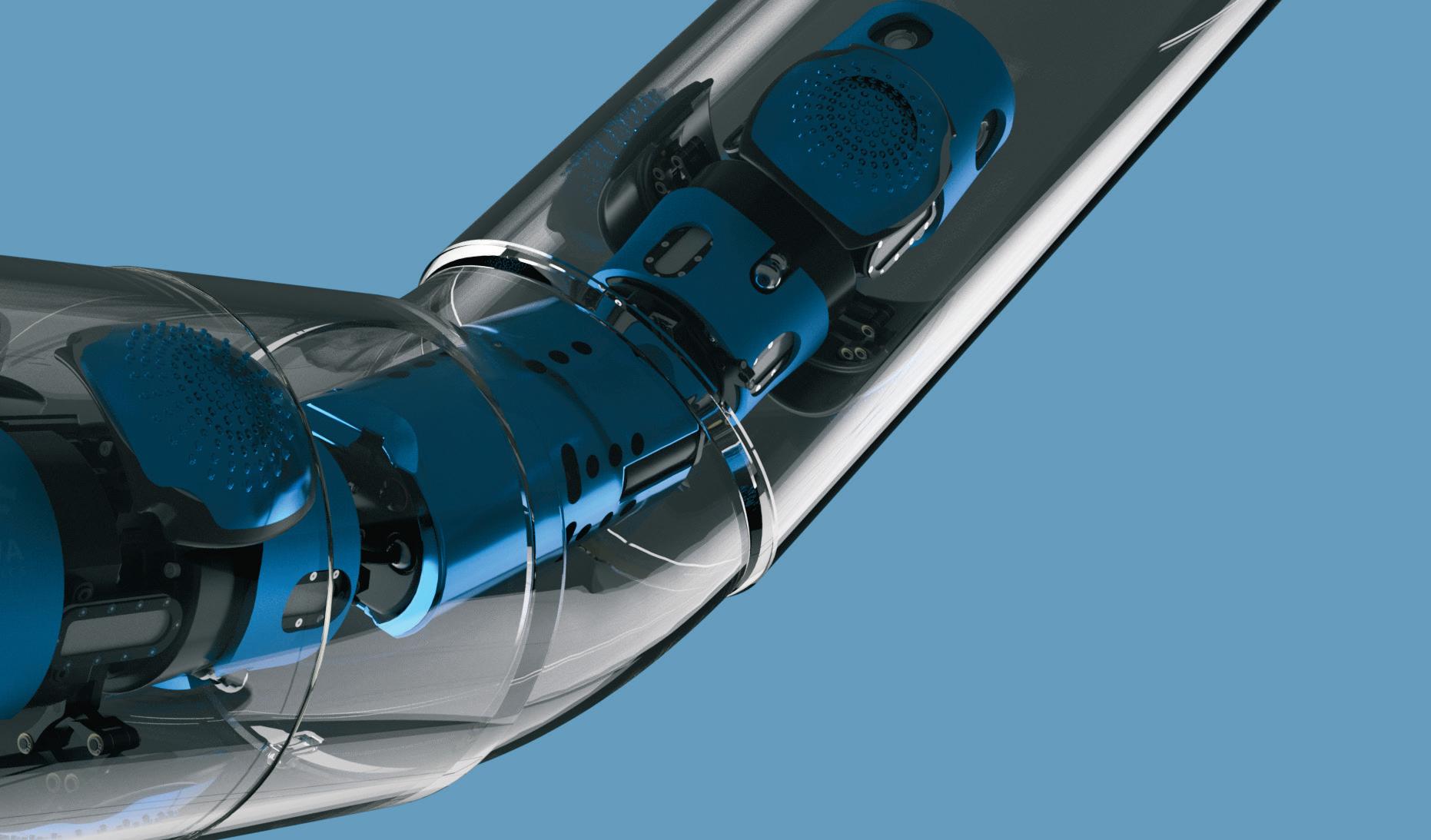
From the very beginning, ACWA-ROBOTICS used Autodesk Fusion 360 to bring the robot to life.
motor shaft seals, ball bearings, small hardware (nuts), and batteries. All other components are specific and designed with Fusion 360.”
Even with two teams—one for mechanical design and another dedicated to electronics—working in separate locations, Fusion 360 provides a seamless experience. The teams design electronic cards; design and assemble mechanical parts; create 2D and 3D blueprints and 3D-rendered images; and perform PCB layout, PCB manufacturing (CAM), and PCB design integration.
“By using Fusion 360 Electronics for PCB design, the generation of the PCB outline from mechanical parts is very complete and intuitive,” Rossi
precise mechanical/electrical integration.”
“The generation of drawings is also very complete and fast with Fusion 360, and managing changes to 3D models is also very powerful. Wherever we are, Fusion 360 enables efficient, real-time collaboration between the engineers involved in the project.”
Mechanical strength simulation with Fusion 360 is also a critical component to their design process. “We use static stress simulation and thermal simulation,” Rossi says. “In these areas, Fusion 360 is very intuitive, and the results are precise.”
Learn more about Fusion 360 here: https://www.autodesk.com/products/fusion-360

Fusion360isattheheart ofourdesignactivity Jean-FrançoisRossi, PresidentandTechnical Director,ACWAROBOTICS Sponsored content
FREE RANGE
» Powered wheelchairs give their users considerable freedom in their daily lives, but what about those who want to adventure further and live with even fewer limitations? Stephen Holmes speaks to the team at Freedom One Life about how its latest design opens up new horizons for users
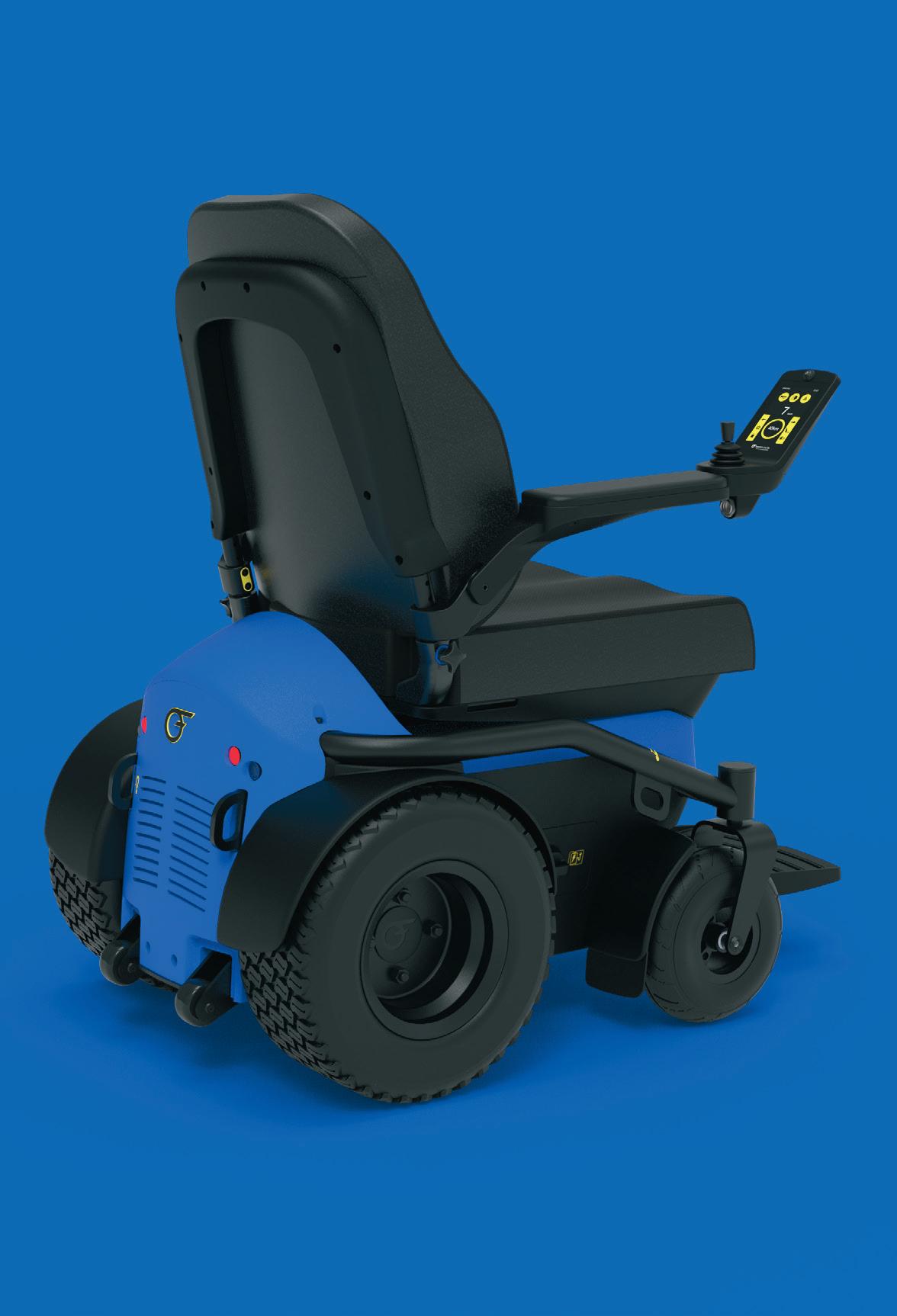
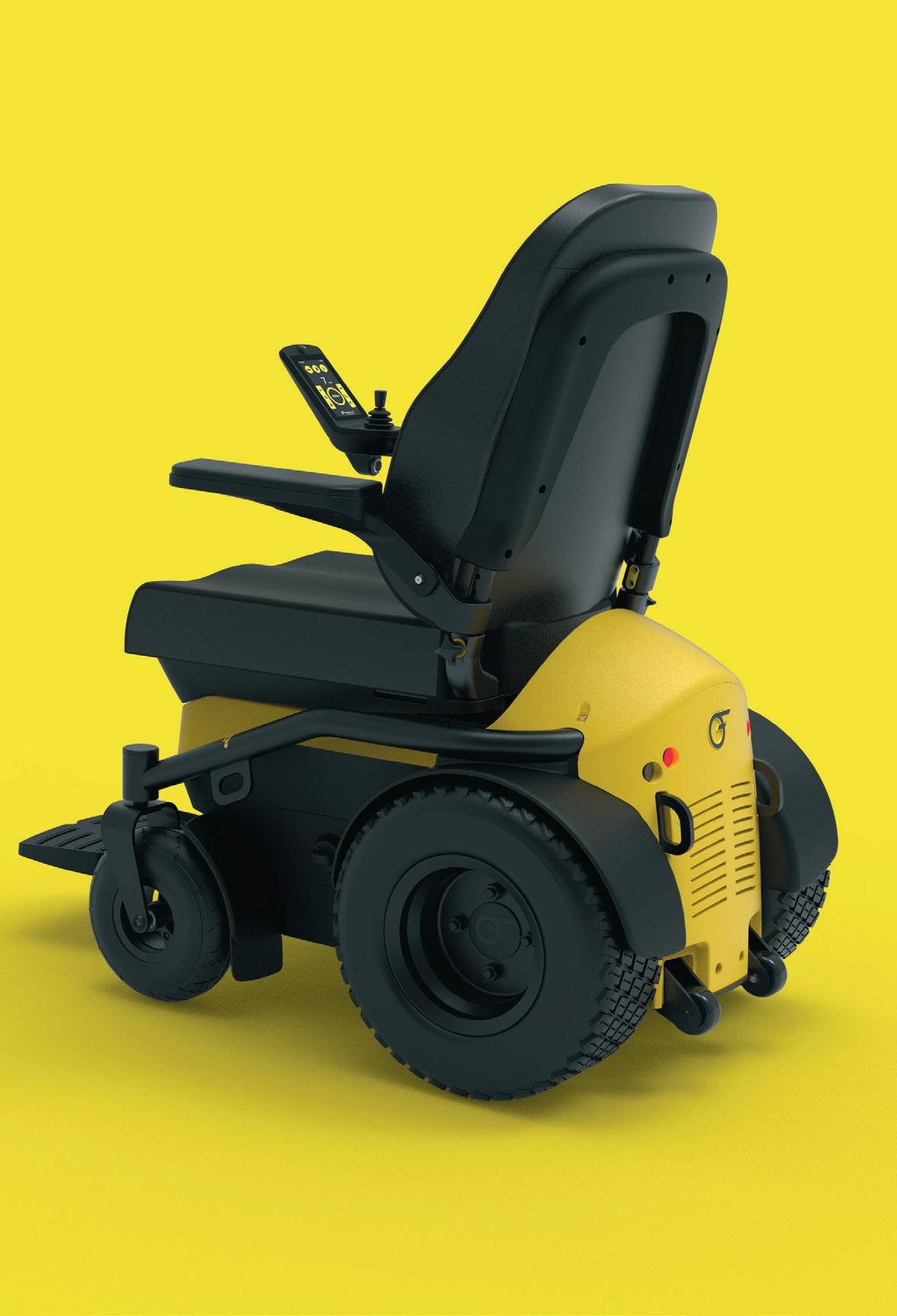
42 FEBRUARY / MARCH 2023 DEVELOP3D.COM
RANGE
Apowered wheelchair is a lifeline, connecting its user to a more empowered existence – but that’s not to say that current designs don’t come with certain limitations.

When Alex Papanikolaou became frustrated with his own powered wheelchair, the various alternatives he tried either restricted his activities due to their limited ranges, or worse still, were prone to breakdowns. In other words, he had to plan his day around battery life. The fear of getting stranded somewhere remote made long trips a concern. The prospect of being able to escape paved surfaces for the thrill of off-road adventures was nothing but a distant dream.
After speaking with other wheelchair users, Papanikolaou began to question why wheelchairs couldn’t be designed differently, leading him to set up Freedom One Life in 2012.
His initial vision grew into a fully-fledged design and engineering team, based in Glasgow and focused on tackling the four main issues around powered wheelchairs: battery performance, mechanical reliability, comfort and convenience.
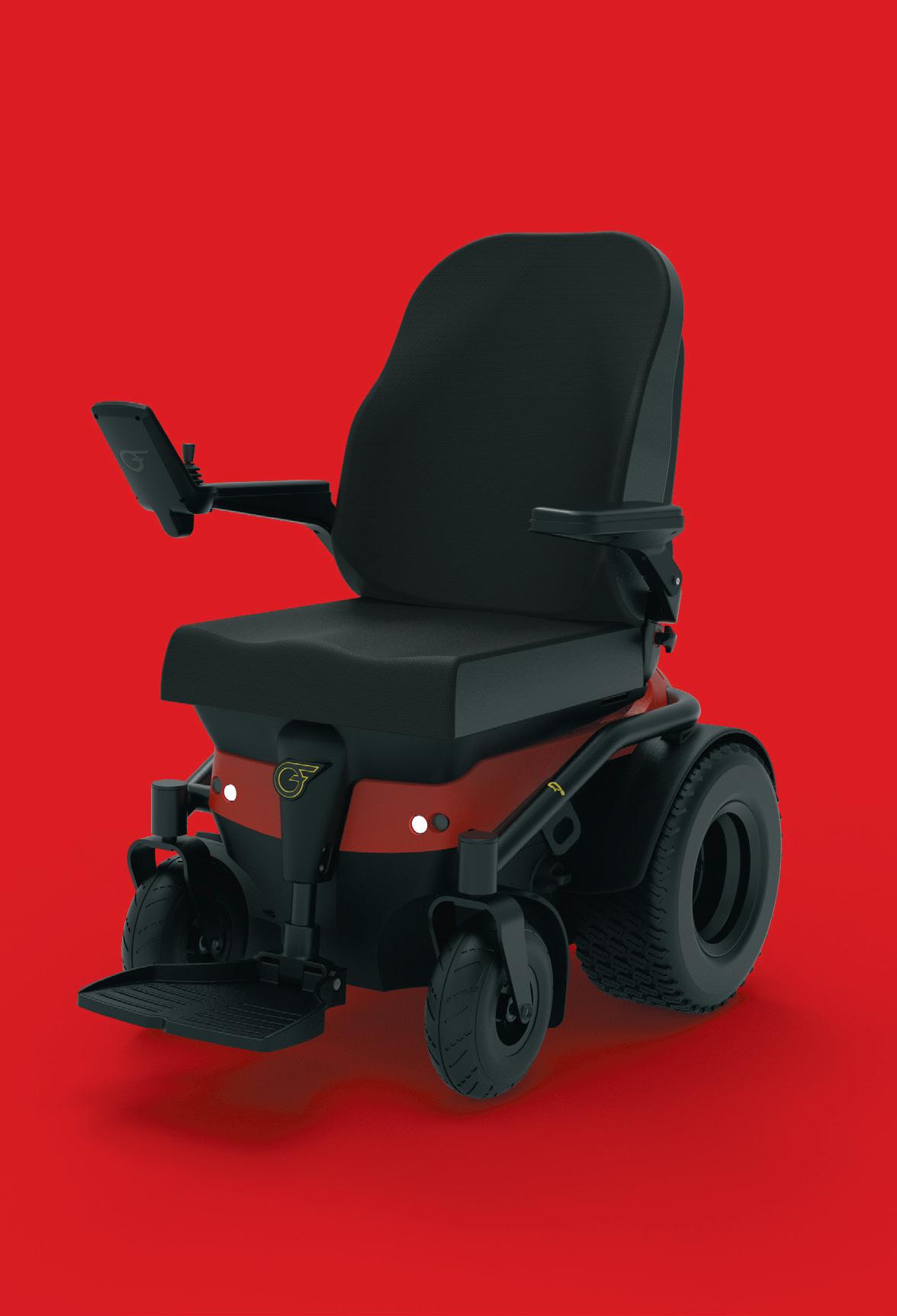
POWERING UP
Papanikolaou‘s concept for the perfect chair was already well underway when Scott Savage joined the company as technical director in 2018. His job was to help in the push to get the product to market.
DEVELOP3D.COM FEBRUARY / MARCH 2023 43
PROFILE
“The design work began with several detailed discussions with Alex about the prototypes that had been developed up to that point, as well as his lived experience as a powered wheelchair user,” Savage explains.
“It was important to find out what had worked, and what hadn’t. Learning from each prototype is an important part of product development. These learnings allowed me to build the design brief and specification for what would become the Series 5.”
A powered wheelchair comprises a large number of components, so breaking the large design task down into smaller sub-projects was essential to ensure realistic timelines could be set and met.
The design work began with understanding the chair’s pre-selected components: its motors, wheels and charger.
“From here, some detailed space envelope exercises were conducted, to work out how best to configure these parts within chassis concepts, while maintaining the required width and length of the final chair,” says Savage. Solidworks was used to create the detailed 3D CAD models for assessment, he adds.
“Once we had this nailed, it was easier to tackle each sub-project using the same process – starting with sketches, selecting the strongest concepts, then moving on to Solidworks for detailed design.”
Savage says the development of the chassis was the most challenging part of the design. “It was the first part and the most important part. While designing the chassis, my mind had to be thinking several sub-projects ahead, to provide space, anchor points and strength to various locations and ensure that the end project assembled and performed as expected.”
With a huge number of factors needing to be considered for every component and its role in the complex assembly, remaining mindful of all assembly interactions and user requirements was a tricky task. A team of three designers built the Series 5 chair to accommodate the biggest battery manageable. Savage says it is capable of delivering
three times the range of its nearest competitor, with over 40km of real-world use on a single charge.
To put this into action, high-torque motors and lowpressure tyres give the user confidence to navigate tight spaces, comfortably cross uneven terrain and climb steep hills.
The mechanical design of the Series 5 ensures that all electrical components are concealed behind car-like body panels. These protect them from the weather and from being snagged on objects while moving.
REAL-LIFE CHALLENGES
In the early stages of prototyping, 3D-printed parts proved useful. Prototypes were produced for assessing component placement as well as general aesthetics, before the team turned to 5-axis CNC machining and vacuum casting to produce short runs for real-world testing. This enabled them to iron out any problems before committing to production tooling.
Reliability has since been proven by over 20,000km of real-world testing. “Having a user as the founder of the business allows us to test all new features to their extremes in real-world situations,” says Savage. “We found problems along the way and we fixed them so that other users don’t have those experiences.”
The Series 5 is fitted with elements that reflect this evolution, from the single cable on-board charger that takes away range anxiety, to drive settings that can be changed by the user without the need for a visit from an engineer. A rain-mode screen means that users no longer have to worry about controlling the chair and its settings in bad weather, making it usable come rain or shine.

The electric seat can be raised in height by 300mm to help wheelchair users access places that might otherwise be hard to reach and to make face-to-face conversation possible. With 50 degrees of tilt, the occupant can easily find a comfortable angle.

All components had to be strong and robust, of course — not just for day-to-day use, but also so that the wheelchair qualifies for use on board a moving vehicle. For this, the final design for the Series 5 had to undergo crash tests, being strapped to a sled using its four-point tie-down system, then accelerated up to 30km/hour, before subjected to an instant stop.

“The huge forces involved in this testing made it highrisk, and simulation played a vital role in mitigating that risk,” says Savage, explaining that the team relied on the simulation software included in its Solidworks package from reseller TMS to undertake the bulk of its FEA analysis.
“We were able to ensure that the tie-down points and the chassis were able to absorb all of the forces and to make any design changes before undertaking the costly and somewhat scary crash test.”
Thanks to these FEA simulations, the Series 5 passed first time. After years of development, refinement and continuous improvement, the Series 5 sees Freedom One Life ready to begin fulfilling orders around the world, enabling its customers to follow whatever path they choose.
www.freedomonelife.com
44 FEBRUARY / MARCH 2023 DEVELOP3D.COM
1 2
● 1 The Series 5 has undergone rigorous crash-testing for safety
● 2 High-torque motors enable the chair to tackle steep inclines
‘‘
● 3 A control panel gives users easy access to different functions
’’ 3 PROFILE
While designing the chassis, my mind had to be several sub-projects ahead, to provide space, anchor points and strength to
various locations
Automate SOLIDWORKS manufacturing processes & sell digitally using DriveWorks
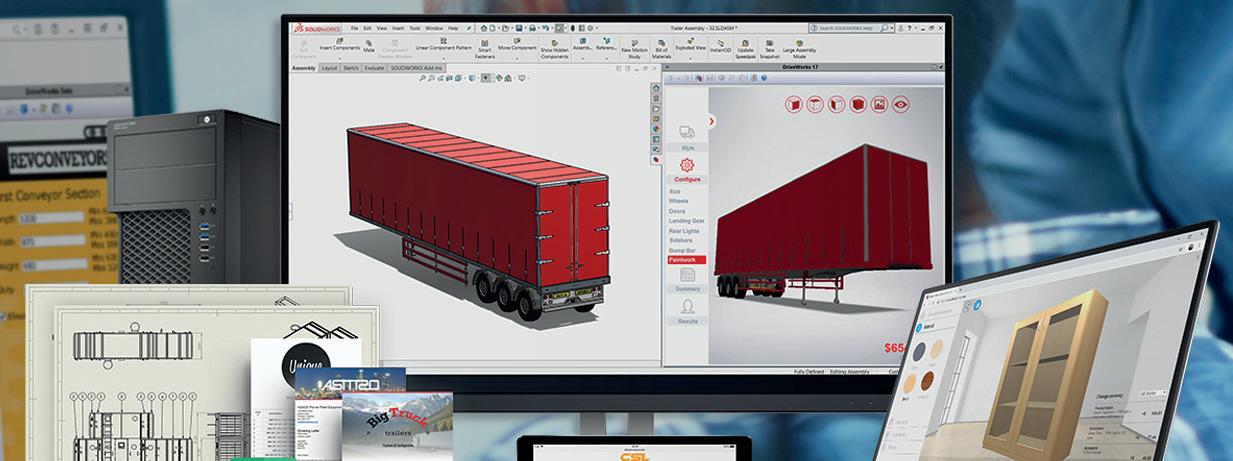
DriveWorks is flexible and scalable. Start for free, upgrade anytime. DriveWorksXpress is included free inside SOLIDWORKS or start your free 30 day trial of DriveWorks Solo.
30DAY

Automate
assemblies and drawings Generate production ready drawings, BOMs & quote documents automatically Enter product specifications and preview designs inside SOLIDWORKS Free online technical learning resources, sample projects and help file
Modular SOLIDWORKS® automation & online product configurator software




Complete SOLIDWORKS part, assembly and drawing automation
Automatically generate manufacturing and sales documents
Configure order specific designs in a browser on desktop, mobile or tablet





Show configurable design details with interactive 3D previews


Integrate with SOLIDWORKS PDM, CRM, ERP, CAM and other company systems




Scalable and flexible licensing options

One time setup
Set up once and run again and again. No need for complex SOLIDWORKS macros, design tables or configurations.

Save time & innovate more Automate repetitive SOLIDWORKS tasks and free up engineers to focus on product innovation and development.
Eliminate errors
DriveWorks rules based SOLIDWORKS automation eliminates errors and expensive, time-consuming design changes.
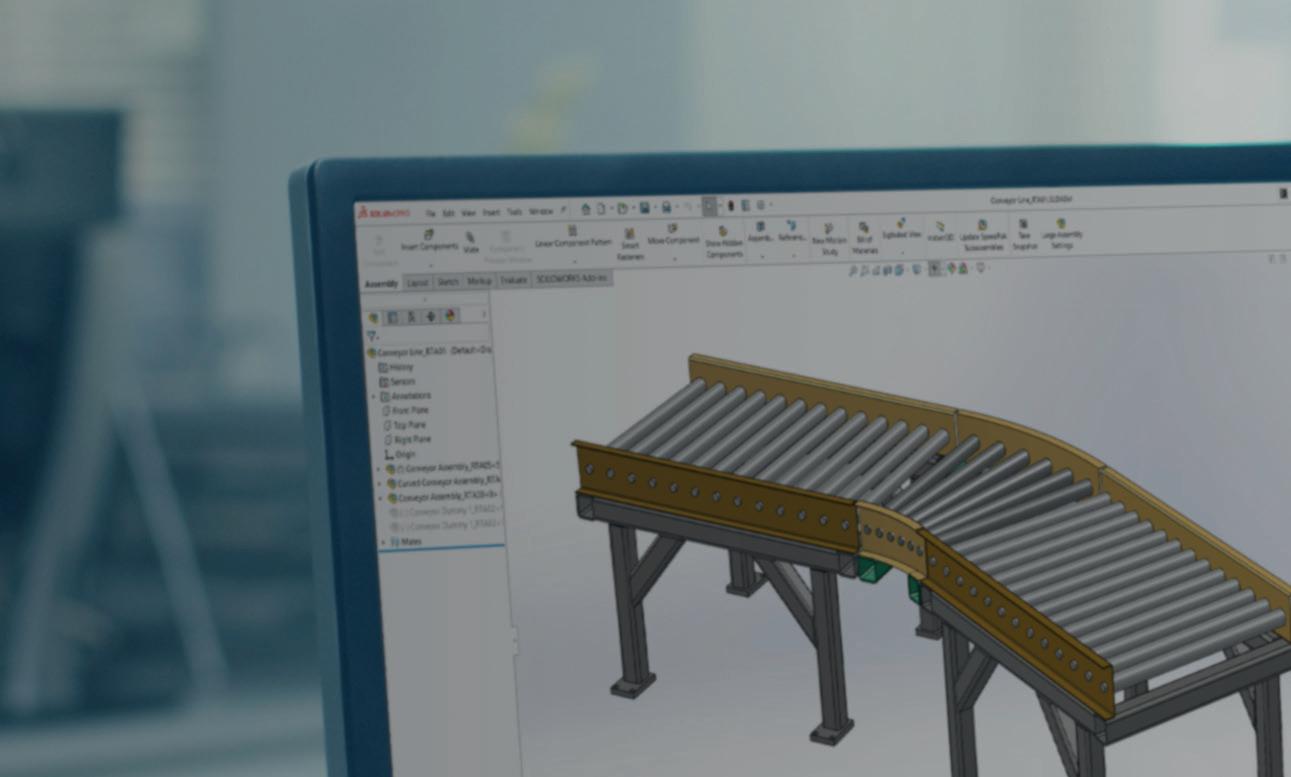
Connect sales & manufacturing

Validation ensures you only offer products that can be manufactured, eliminating errors and boosting quality.


Integrate with other systems
DriveWorks Pro can integrate with other company systems, helping you work more efficiently and effectively.
Intelligent guided selling
Ensure your sales teams / dealers configure the ideal solution every time with intelligent rules-based guided selling.
Find under the SOLIDWORKS tools menu Entry level SOLIDWORKS part
Create a drawing for each part
DriveWorksXpress Entry level design automation software included free inside SOLIDWORKS®
and assembly automation
and assembly
Sold and supported by your local SOLIDWORKS reseller
DriveWorks Solo SOLIDWORKS® part, assembly and drawing automation add-in
SOLIDWORKS parts,
FREETRIAL
DriveWorks Pro
and supported by your local SOLIDWORKS reseller
Sold
www.driveworks.co.uk Try examples online at www.driveworkslive.com
CADSOMA
The design industry is based on a relatively small number of base platforms, such as AutoCAD, Inventor, Solidworks, SketchUp and newcomers like BricsCAD. At the same time, there are thousands of independent developers around the world creating industry-specific or additional functionality plug-ins that aim to enhance these popular platforms.
Some of these add-ons can be very local in their focus; they may target local markets, for example. Others may be more generic and target a worldwide audience. Either way, third-party developers are an essential part of the design community, delivering significant additional functionality and value to a core platform at a relatively small cost to users.
In CAD history, the biggest demonstration of the power of this developer ecosystem was seen around Autodesk AutoCAD, which spawned a huge and vibrant community, via AutoLisp, APIs (application programming interfaces) and OEM versions of its applications. (Original equipment manufacturer software
is created by one company and then resold or rebranded by another company.)
Third-party developers enabled AutoCAD, which at the time was just a vanilla drawing tool, to include more focused capabilities and to address vertical markets such as manufacturing, hydraulic/pneumatic schematics, process plant and electrical. Their add-ons ranged from relatively simple symbol libraries to complete turnkey applications built on unbranded Autodesk OEM engines.
A lot has changed in the industry since the 1980s and 1990s. Companies such as Autodesk ended up acquiring many of the third-party applications that had penetrated their vertical markets. The result was that some of the remaining third parties now found themselves in competition with the very platform they were built on, which was obviously not sustainable. While there were still many developers in the community, it was less likely that an individual developer or development team’s add-on would be as prominent or important to the core platform developer.
At one time, Autodesk published thick, paper-based catalogues listing all of the 2,500-plus third-party applications available. This eventually went online and
Q&A ON CADSOMA WITH MERVISOFT CEO DIRK REDMER, WHO DISCUSSES THE AIMS
DEVELOP3D: Where did the idea for Cadsoma originally come from?
Dirk Redmer (DR): The reason why we started Cadsoma is that we handled 150 developer partners in Germany for Bricsys. We helped them to port their applications from Autodesk to Bricscad. We organised fairs for them. We organised a LinkedIn for the German Bricscad community. We gave them lead collection tools, to help developers be present in the market. We looked, but we couldn’t find any platform in the
world to market your company and sell your plug-ins. We searched for our own planning plug-in, TRIC, which is popular in Germany and used by Deutsche Bank in Frankfurt to design its offices, but couldn’t find anything, so we decided to build what eventually became Cadsoma.
If you’re a newbie and you’re going into Google AdWords, you’re lost. You can burn your money very easily and get the same result as not spending a lot of money! For the last 15 years, we have been doing Google campaigns
for BricsCAD. So, we know a lot about how to do that and we are bringing that knowledge into Cadsoma. Our concept is like Amazon, and it’s all automatic. If you are a developer, and you have registered your company and your product, you automatically get added into our AdWords campaigns for Cadsoma. There’s no work, it’s literally one click. Our first developer to sign up was CADprofi (www. cadprofi.com) , who we have known for over a decade. The company has over 12 products and
bundles in 27 languages, and had also been looking for a marketplace to push its plug-ins. We will do that for all resellers and developers who register with Cadsoma. To help them, to give them a marketing tool, not just a plug-in store. We also support TikTok, Instagram, LinkedIn and Facebook.
DEVELOP3D: The platform isn’t just about software though?
DR: Correct. Cadsoma isn’t just a place for products, but you can join and put your services in our system
to use our e-commerce and marketing back-end. For a yearly fee, there’s an option to market and collect payment for services, book banner adverts for your services, links to your website and so on.
DEVELOP3D: So why do you think Cadsoma is needed now?
DR: I think about this a lot. What I’ve seen in the last 20 years is that the CAD platform companies are always pushing themselves above all the developer partners. Despite having a
lot of developer partners, resellers and dealers, the CAD platform company is more concerned about selling more of its software. It doesn’t matter if your software or plug-in is big or small; the platform companies push their resellers to focus more on increasing the sales of their platform tools. For the reseller to maintain discounts, they have to meet higher targets, which steals bandwidth to sell thirdparty plug-ins. Developer communities are important for the CAD platform companies,
46 FEBRUARY / MARCH 2023 DEVELOP3D.COM
» As CAD firms have evolved, new business models have led to a significant reduction in the number of resellers (VARs). This has hindered distribution and sales of third-party plug-ins within each vendor’s network — but Cadsoma, a new ‘Amazon’ for add-on applications, aims to change all that
has since morphed into the Autodesk App Store (https:// apps.autodesk.com).
While it’s good this exists, it is not exactly prominent on Autodesk’s site. You really need to know where to look if you’re going to find it and it isn’t actively promoted by the company. In fact, for the majority of customers, there are precious few places to find a comprehensive listing of add-on tools. For the developers themselves, it’s hard to get found by customers, other than working on website search engine optimisation (SEO).
When the world went 3D and products got more complex (Solidworks, Inventor, Fusion360), we again saw an explosion of third-party developers, working to expand capabilities and address edge-cases and feature holes in the platforms. As the technology evolved, there have been new APIs and new popular products. Today, the rise of the cloud means data can be shared seamlessly between hosted applications.
Beyond traditional CAD platforms, games engines such as Unreal and Unity have also proven to be popular targets for developers, as they offer the ability to display huge model sets and have VR and AR optimisation built-in. This can be as simple as a display engine or a common data environment, or as complex as a full design application like Modumate (www.tinyurl.com/modumate-aec)
There have also been whole new concepts for application developers to focus on. Autodesk took all of its desktop products and turned niche functionality (DWG, file exporters, file viewing, document management and so on) into web services.
So instead of building a plug-in or licensing a whole OEM Autodesk product on which to build, developers could assemble new applications from a collection of plug-and-play micro services. For example, Nvidia offers Omniverse, a cloud-based, GPU-accelerated environment for pretty much any CAD geometry type.
In short, there have never been so many options for professional and in-house developers to create new addons. At the same time, there remains a real gap in terms of the way that third-party developers can capture market attention and get their products to market effectively.
INTRODUCING CADSOMA
Cadsoma is a catchy abbreviation of ‘CAD software market’. Its aims are to become a global web store
where independent developers promote and sell their specialised software. While the main CAD vendors focus on selling their core platform tools and services, Cadsoma will primarily focus on promoting independent developers and creators of plug-ins.
Cadsoma is the idea of Wiesbaden, Germany-based Mervisoft, a company that understands only too well the challenges of being an independent CAD software developer. Mervisoft has a long history of development in planning and building automation, as well as in software distribution and web marketing. In recent years, the company has been working with Bricsys and, in the process, built up a community of over 200 thirdparty developers of industry solutions, creating webbased marketing engines.
The Cadsoma website is due to launch to the public in April 2023 and the company is currently recruiting new developers to join the store and utilise the tools available there for promotion, distribution and selling of applications. The initial target markets are the US, Canada, Japan, Great Britain and India, with country representatives located in each on hand to help on-board participating developers.
The industry-specific CAD solutions website is independent of any specific vendor. As such, it will feature applications which run on the complete spectrum of applications, covering many industries. In addition to CAD software, Cadsoma will offer services such as training and support and also hardware.
Key features of the website for developers include: sales support, automated Google ad-word marketing, lead generation and management, e-commerce payment handling, CRM and a full overview of sales history.
It’s very much modelled on the Amazon service model, with developers getting to upload their own videos and sales content, all of which can be managed via an easy to use front-end.
These tools will be of particular benefit to small companies that might not have the internal resources available to deploy a full-spectrum enterprise sales and marketing platform. Until Cadsoma is launched in April, Mervisoft is offering CAD software developers the use of the new marketplace free of charge for their first year.
www.cadsoma.com
AIMS OF THE NEW SITE AND THE STRATEGY FOR TAKING IT GLOBAL
because they are sales multipliers. What we are trying to do is to give all the dealers and the developers a platform to promote their own products, not just rely on the CAD developers to push their own plug-ins. We are inverting the sales pitch by putting developer products on top.

DEVELOP3D: How does Cadsoma work?
DR: The website has a big search bar and, using keywords combined with filters, you find plug-ins that run on your core CAD
applications, matching your industry discipline and the design issue you are looking to solve. Developers have their entries on the system and can include links such as demo downloads. Our platform handles the lead generation back-end and payment. Users don’t have to be registered and can opt to browse and purchase as a guest.
We have a rating system for customers to award to developers. In April or May, there will be a ‘Buy with Cadsoma’ button, which developers can use on their own websites to
harness our e-commerce back-end. These are little things, but we want to make the system a community, especially for developers who have few places to connect and work together.
DEVELOP3D: How many companies do you have registered?
DR: At the moment, we have 30 companies registered, but you can only see around 19 or 20, because we are still helping a number of them onboard to the system. We have personally invited
over 600 companies to get on Cadsoma. Obviously, we are talking to the firms on the AutoCAD app store, too. Because ours is an independent platform, if their plug-in works in Bricscad, they are allowed to announce all the different platforms they support and run on. That’s not allowed on the Autodesk store. We have really industry seasoned representatives in important geographic areas like India, UK and Japan who have worked in CAD software distribution. They will work with developers and spread
the word and also help us with country localisation of the website, which will come in time.
DEVELOP3D: Are you looking for more developers to join the platform before the official launch?
DR: Yes, we are talking with everyone and putting together a deal for start-ups, where they get Cadsoma for free, for one year, for example. So even though we have been in the CAD business
for 20 years, I feel like a baby just starting to walk with the development of Cadsoma!
DEVELOP3D.COM FEBRUARY / MARCH 2023 47 TECHNOLOGY
HOOKING UP WITH A DIGITAL TWIN
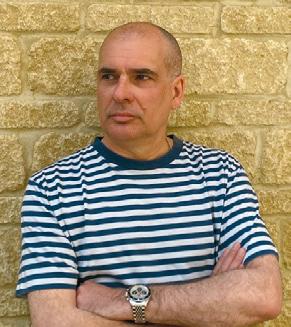
When we hear the term ‘digital twin’, we typically have some idea of what’s meant – but like many buzzwords in our industry, there’s no real consensus on a ‘true’ definition.
Althea De Souza has done a great job researching various interpretations for NAFEMS, the international association for the engineering modelling, analysis and simulation community. As De Souza has pointed out, the computer HAL in the 1968 epic science fiction movie 2001: A Space Odyssey is probably the first mainstream cultural representation of a digital twin system. But more than a half-century on, there is still confusion and misinterpretation around the concept.
In time, a true meaning will no doubt emerge from the murk. But for now, if we assume that, in essence, it means ‘creating a digital representation of an object that is updated with data from its operation in the real world’, then to me, that means that the digital model has to be based on advanced simulation technologies.



So, what is the entry fee required for a seat at the simulation ballpark? You can’t simply order a digital twin CAD system add-on from your CAE reseller. When you think about it – and you’re really going to have to – a digital twin is all about model development. And there, the onus is squarely on you.
PROVING A POINT



It’s been said that “all models are wrong, but some are useful.” With experience, you come to recognise that the key to making a model useful is tied up with validation and process. Validation, to ensure that the results are at least representative enough to be used in decision making; and process, to ensure that accurate results are obtained reliably and in a timeframe appropriate to the market in which the object exists.
Today, the main prerequisite for a digital twin is a highly functional, properly dialled-in simulation process. If you are at the top of this simulation and validation game, the digital twin isn’t too big a step. It almost appears ‘deus ex




48 FEBRUARY / MARCH 2023 DEVELOP3D.COM
With 2023 set to be the year of the digital twin, Laurence Marks digs into the real meaning of the term, considers the work it will take to bring it to fruition and explores a few shortcuts along the way
TECHNOLOGY
Laurence Marks built his first FEA model in the mid-1980s and his first CFD model in the early 1990s. Since then, he’s worked in the simulation industry, in technical, support and management roles. He is currently a visiting research fellow at Oxford Brookes University, involved in a wide range of simulation projects, some of which are focused on his two main areas of interest: life sciences and motorsports
machina’ – the spirit of the process made real, rather than something that stands apart from it.
Updating a model to reflect what has happened in service is a logical extension to considering the way in which the object was made. Simulate what you made, rather than what you designed, right?
This is fantastic if you are one of a handful of major corporations happily working on this at an advanced level. But what if you want to get there without a 40-year history of applying simulation techniques, streamlining workflows and putting in the hours needed to make simulation models correlate with reality and real parts do what predictions said they would?
FAST TRACKING THE PROCESS
If you want to fast track the process, what do you do? Speaking for myself, the element of simulation that makes it a transformative technology is the explorative aspect. And, given how many businesses and organisations see themselves as knowledge-based –committed to exploring a design space and looking for solutions – then that’s the critical element.
For me, the key driver in this process is planned model development. Our digital twin isn’t an only child. It has a family tree comprising numerous siblings. If things go well, it may also have many offspring.
A planned model development process allows us to navigate this range of possibilities in the most efficient
manner, combining new knowledge with what can be obtained from books and the internet.
The thing that has most changed my perspective on projects, planning and model development is creating experiments and simulations that increase the understanding of the overall system without modelling all of it in one go.
I’ve recently been working on a piece of really interesting electronics kit [sadly under a non-disclosure agreement], where the important part for me was how much I learned by analysing and testing a single power resistor mounted on a section of extruded aluminium.
The analysis told us that contact resistance was what had the greatest bearing on how hot it got. That then allowed us to explore how we could exploit this knowledge in the full design.
We had other sub models that explored overall system cooling and some that analysed how bolted joints behaved in terms of contact pressure. All were brought together in the design and the system model.
This is heading into digital twin territory, certainly – but a digital twin can never be a full representation of every aspect of a design on every level.
Consider one level of detail and you’ll find yet another if you look closer. Take a step back and you’ll become aware of ever-wider contexts. Managing this discovery is managing the model development process and the best way to hook up with your digital twin.

DEVELOP3D.COM FEBRUARY / MARCH 2023 49
‘‘
With experience, you come to recognise that the key to making a model useful is tied up with validation and process ’’
GLIDE INTO
With 40% of the world’s population living in coastal communities, Boston, Massachusetts-based company Regent believes that its concept for electric seagliders will offer low-cost, high-speed, zeroemission transport for passengers and freight. Operating only a few metres over the water as an all-electric wing-in-ground (WIG) effect vehicle, the seaglider can travel in one of three modes: floating on
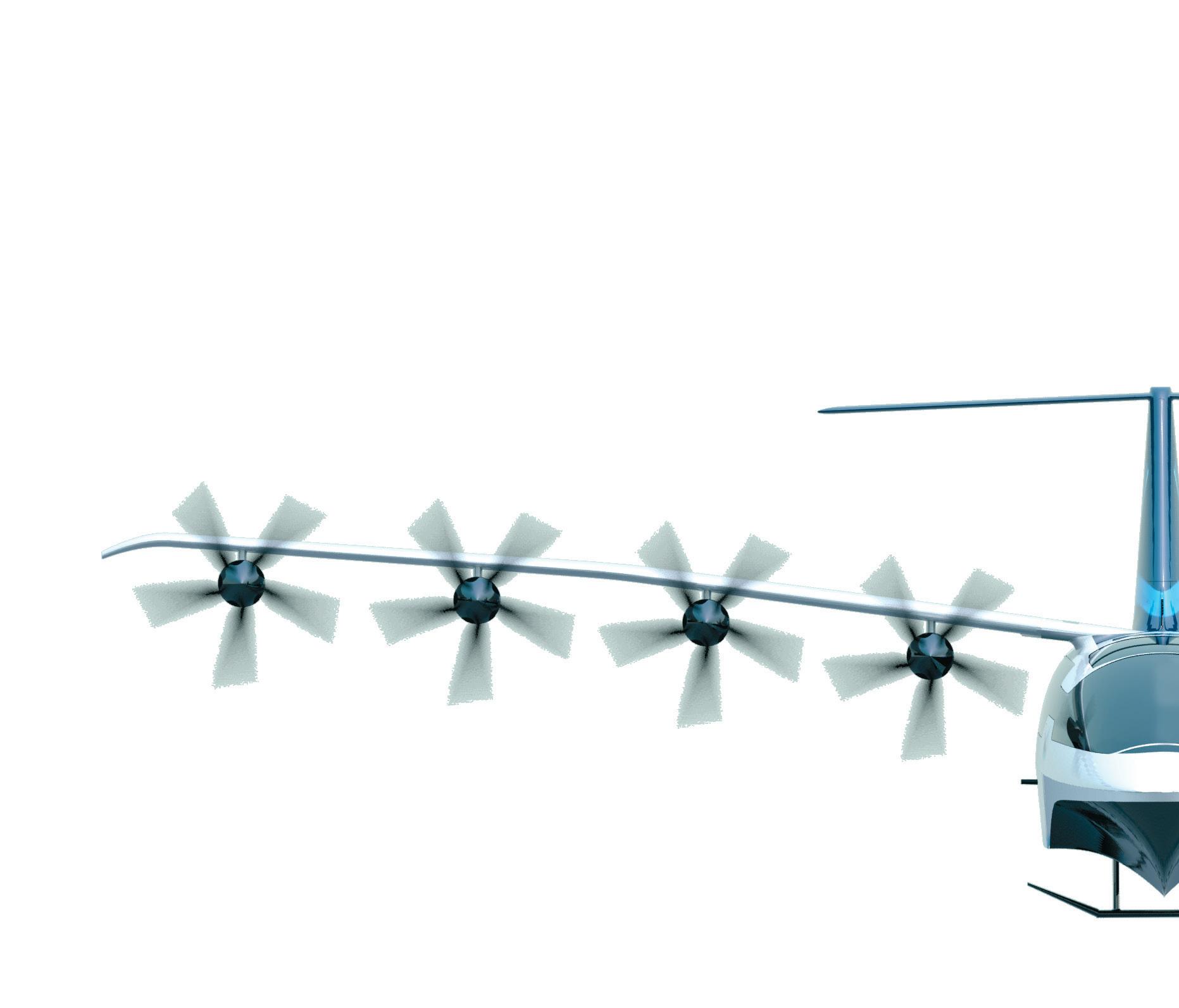
its hull near the dock; foiling on its hydrofoils at up to 40 knots (kts) as it comes in and out of port; or flying above the waves at 160 kts while cruising to its destination. When in flight, it relies on the ground effect phenomenon, flying on a cushion of air that allows it to combine the high speed and comfort of an aircraft with the low operating cost of an electric vehicle.
Regent’s design differs from past WIGs due to its hydrofoils, distributed electric propulsion and aerospace fly-by-wire controls. These elements enable safe harbour
50 FEBRUARY / MARCH 2023 DEVELOP3D.COM PROFILE
Designed to haul goods and passengers over the waves between coastal locations, Regent’s seaglider blends flight and sailing in a way that reduces the time and costs of transit. Stephen Holmes hears how the vehicle could pioneer a new form of zero-emission transportation
INTO ACTION
operations, increased wave tolerance and a comfortable passenger experience.
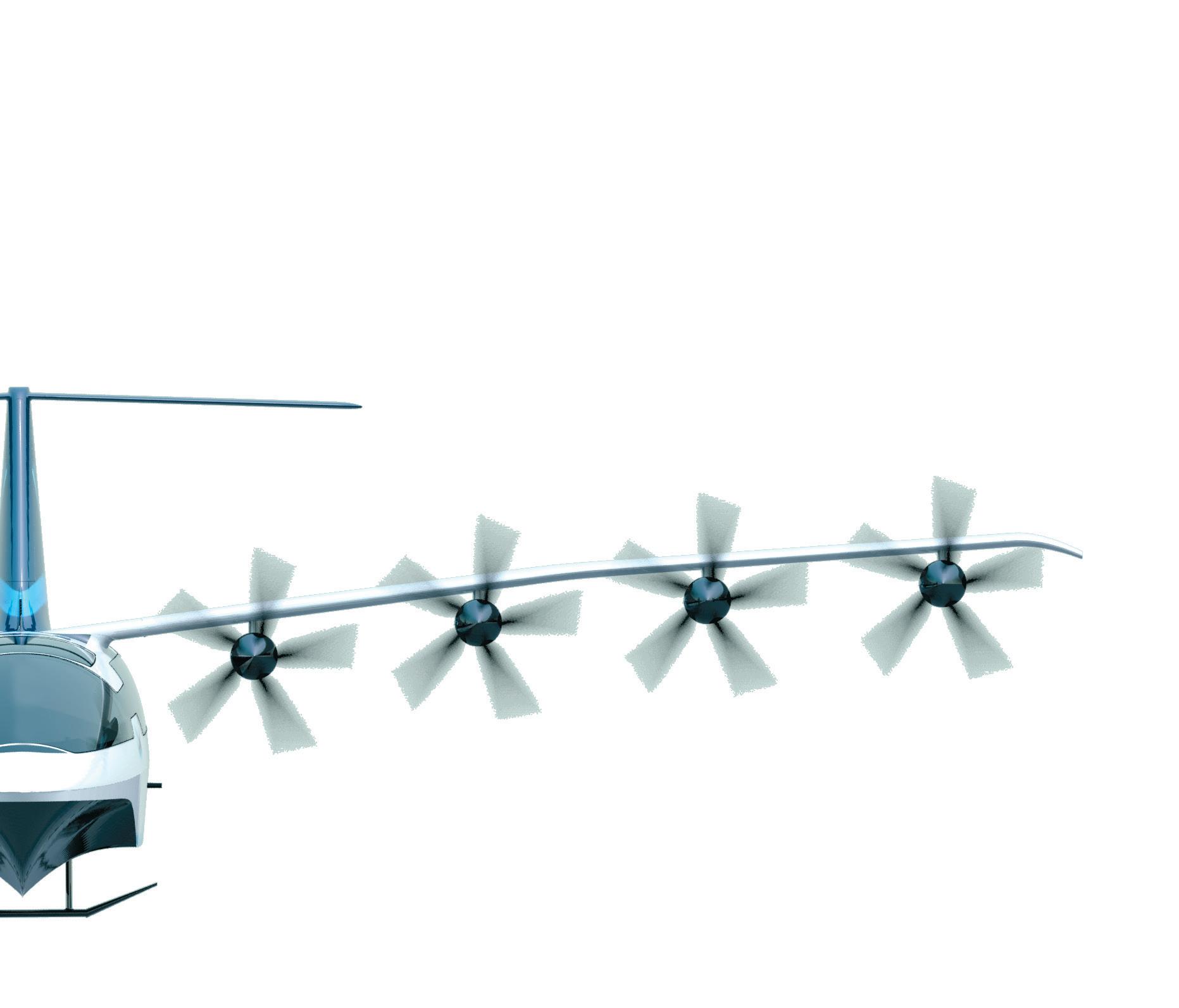
GOING THE DISTANCE
Regent’s flagship seaglider, the 12-passenger Viceroy, will be able to service routes up to 180 miles in distance with existing battery technology. It expects to cover routes of up to 500 miles in the near future thanks to nextgeneration batteries, all via existing dock infrastructure. Additionally, its operation as a WIG effect vehicle above the water supports maritime testing and certification. This is an efficient pathway to entry into service, allowing customers to experience high-speed, zero-emission coastal mobility sooner than electric aviation options, while maintaining similar levels of safety.
“At Regent, we are focused on bringing a revolutionary new vehicle to the transportation market with the potential to change how both people and freight move over the water,” says Regent CTO and co-founder Mike Klinker.
“As our seagliders approach certification and full-scale commercial production, we need a robust, modern digital tools platform that supports the pace of our innovation cycles with the rigour to encompass a product as complex as ours.”
Klinker says that being a “digital-first start-up” led it to Siemens Xcelerator as a Service, when the company was choosing software to meet its design and engineering needs back in 2020.
“At Regent, we are moving very quickly. We went from a blank sheet of paper to an 18-foot wingspan, 400lbs technology demonstrator on the water in 10 months,” says Bryan Baker, Regent’s chief engineer for vehicle physics.
Baker describes his background, in common with many others in the design and engineering team, as being grounded in professional racing and prototyping, whether that be in aerospace, motorsports or America’s Cup sailing.
“The team is very multidisciplinary. We pay special attention to critical design tasks, prioritising solutions
Regent’s seaglider is a high-speed, zeroemission vehicle, designed to operate exclusively between coastal cities
DEVELOP3D.COM FEBRUARY / MARCH 2023 51
with real-world application and delivered on time with the greatest chances of success. The success of the team relies on getting a working product from which we can iterate improving safety and performance throughout the entire architecture,” he says.
ON-DEMAND TOOLS
Baker says that at different times, members of the team can have “bursts of software demands to follow the cadence of our design.”
This means they require specific software tools at varying frequency, which the cloud-based platform offers while reducing cost.
“I’ve been using cloud services for years now and the ability to scale compute resources like HPC, and matching that with different on-demand licences, is a very useful tool,” he says.
For aerodynamics, the team relies heavily on STARCCM+ and on NX for CAD modelling, as well as coupling Simcenter Structures for mechanical design and tolerancing.
“We use FEMAP as our mainstay for structural FEA, using it for both global and local modelling,” adds Baker. “We are now getting into Fibresim to better model our material drops and hopefully leverage ply-cutting tools in future designs, as well as optimise material purchases.”
Teamcenter is being assessed for organising and tracking CAD and trade-study data, as well as best practices to develop a certification path with maritime authorities.
“As we continue to grow, I hope to leverage these tools both internally and with our ever-growing contractor and builder relationships, to ease the communication and reliability of our designs,” says Baker.
”The goal is getting from prototype to production while growing a world-class team able to transfer our knowledge without losing calendar and keeping costs down. We hope to do just this leveraging Siemens and a flexible cloud solution.”
While the craft won’t reach heights of more than a few metres from the water’s surface, this transformative mode of transport is definitely benefitting from the cloud. www.regentcraft.com

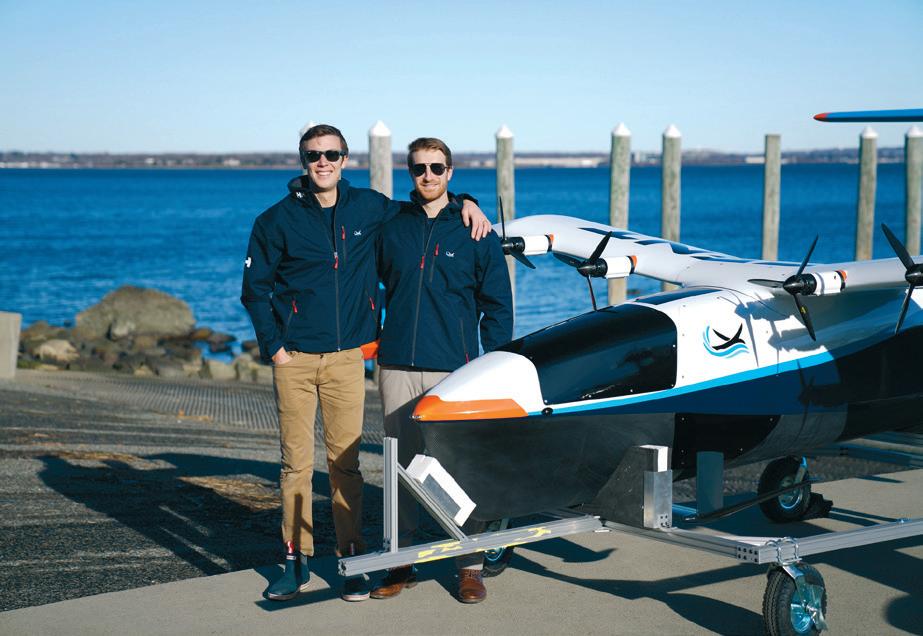

● 1 The seaglider will be able to service routes of up to 180 miles in distance
● 2 Coming in and out of port, it uses hydrofoils to travel at up to 40 knots
● 3 Regent CTO Mike Klinker and CEO Billy Thalheimer, pictured alongside the Viceroy
52 FEBRUARY / MARCH 2023 DEVELOP3D.COM
‘‘
’’
At Regent, we are bringing to market a revolutionary new vehicle with the potential to change how both people and freight move over the water
3 2 1

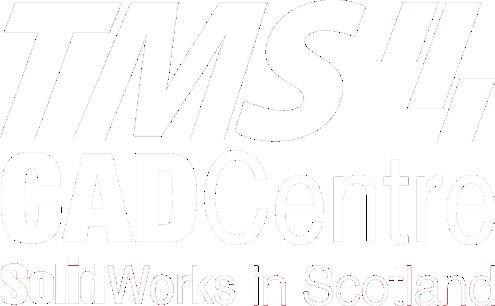
FREE CAD SOFTWARE & SUPPORT FOR ENTREPRENEURS AND START-UPS 01324 550 760 solidworks@tms-scotland.com tms-scotland.com/solidworks APPLY NOW
Lenovo ThinkStation P360 Ultra
» This ultra compact workstation ups the ante in several areas, from graphics
» Intel Core i9-12900K processor (3.2 GHz, 5.2 GHz boost) (8 E-Cores, 8 P-Cores, 24 threads)
» Nvidia T400 GPU (4 GB GDDR6)
» 64 GB (2 x 32 GB)
DDR5-4800 memory
» 1 TB M.2 PCIe NVMe
OPAL2 TLC Gen4p SSD
» 300W external Power Supply Unit
» 87 x 223 x 202mm
» Microsoft Windows 10 Pro 64-bit
» 3 Years On-site warranty
£POA
www.lenovo.com
Benchmark results
For full benchmark scores and comparisons to other workstations visit www.tinyurl.com/ws-chart
Compact workstations have always had their limitations. While perfectly fine for mainstream 3D design work, they’ve lacked the graphics horsepower for visualisation, and the memory capacity to handle the most demanding datasets.
To expand your workflows beyond breadand-butter 3D CAD, you’ve typically had to go for a much a bulkier tower workstation. Lenovo is looking to change this with the ThinkStation P360 Ultra, a super compact desktop with a higher spec than other workstations in its class.
Compared to the Dell Precision 3260 and HP Z2 Mini G9 it has double the memory (128 GB vs 64 GB DDR5) and higherperformance graphics (Nvidia RTX A5000 laptop GPU vs Nvidia RTX A2000 desktop GPU). It also supports 125W CPUs, up to the Intel Core i9-12900K, something that the HP Z2 Mini G9 can also do, but the Dell Precision 3260 cannot.
CHASSIS INNOVATION
To accommodate these high-spec components, which draw more power and therefore produce more heat, Lenovo developed an innovative dual chamber design for the ThinkStation P360 Ultra’s chassis. This not only helps improve thermal performance but also aids serviceability.
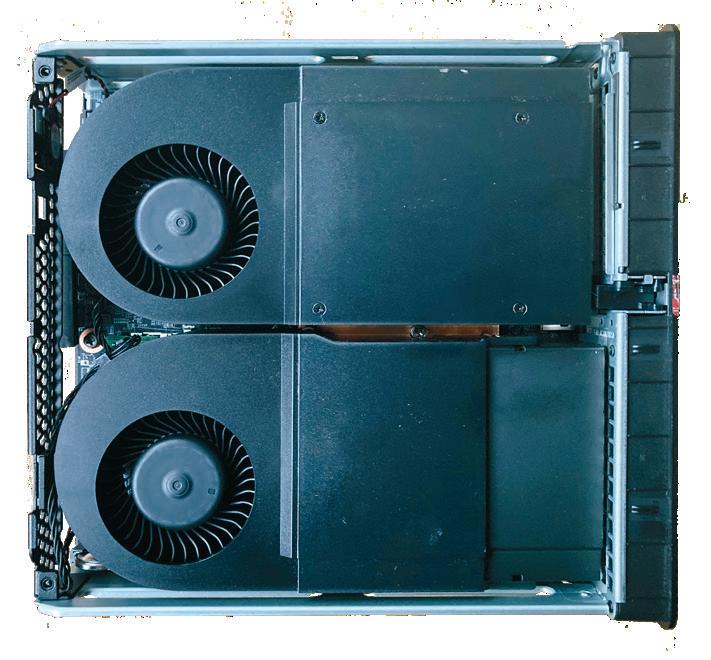
In contrast to most desktop workstations where the motherboard sits to one side, with the ThinkStation P360 Ultra it runs straight down the middle. This means the CPU is on one side, the
GPU and SSD(s) on the other, and there are dedicated fans and chambers for each. There are some caveats to this, however, which we’ll get onto later.
The ThinkStation P360 Ultra comes in at 87 x 223 x 202mm, making it the largest of the ultra-compact workstations. But it’s still incredibly small, takes up minimal desk space (when placed either vertically or horizontally) and is easy to move around. The tiny machine can also be VESA mounted behind a monitor, on a wall or under a desk.
The metal chassis is extremely solid and the design clean and simple. Like the HP Z2 Mini G9, air flows from front to back, drawn in through Lenovo’s trademark honeycomb grille. The centrally located motherboard allows for good placement of front ports, including two USB-C (Thunderbolt 4 Type C), one USB 3.2 (Gen 2 Type A) and headset audio. There’s plenty more at the rear, including four USB 3.2 (Gen 2 Type A) (with smart power-on), dual Ethernet ports (1GbE and 2.5GbE), three DisplayPort, plus whatever you have on your add-in GPU. There’s also a slot for the optional antenna for Wi-Fi 6 / 6E.
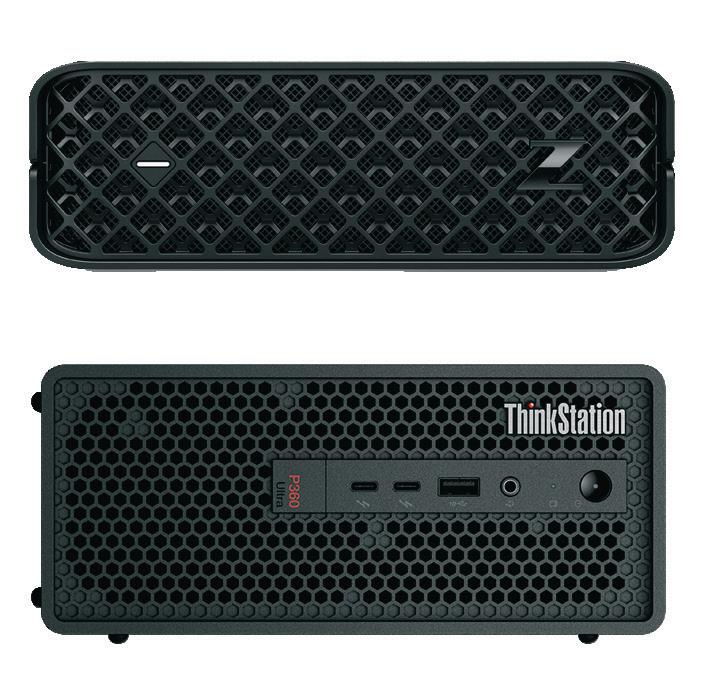
WiFi was notably absent on our test machine but for a workstation of this type, which is ideal for space constrained environments, such as the home office, it feels like a must.
The power supply unit is external, much like a laptop, and the ThinkStation P360 Ultra comes with a 170W, 230W, or 300W units depending on config. To open the machine, simply pull a lever at the back and slide off the metal cover. The location
of the components will depend on your chosen combination.
Single slot, CAD-focused GPUs, such as the Nvidia T400, T600 or T1000 are located on the opposite side of the motherboard to the CPU. More powerful dual slot GPUs, such as the Nvidia RTX A2000 and A5000, are located next to the CPU.
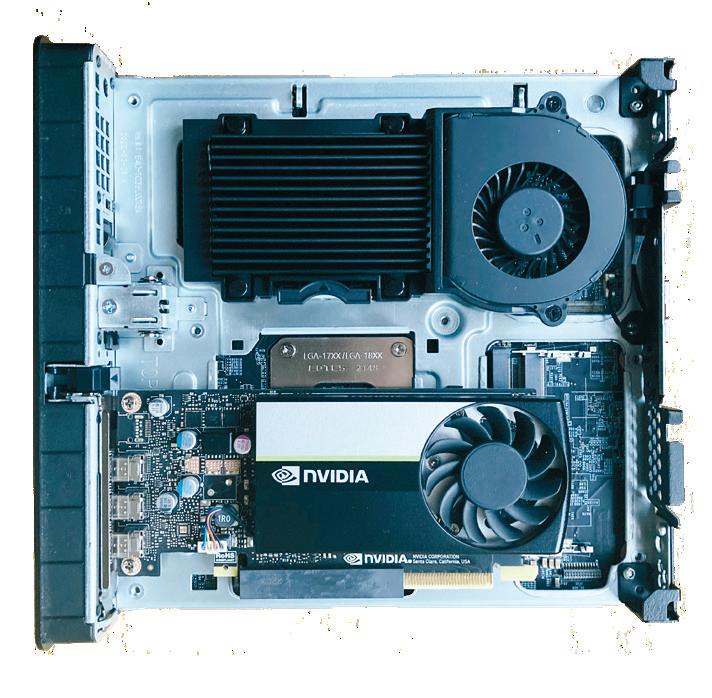
125W CPUs need a second, adjacent fan for cooling, which unfortunately means there is no room for a dual slot GPU. It means users must choose to prioritise CPU performance or GPU performance. You can’t max out both in the same machine.
For those whose workflows demand a powerful GPU, this shouldn’t be too hard a decision. While the single slot Nvidia T1000 (8 GB) is perfectly adequate for 3D CAD, moving up to the Nvidia RTX A5000 (16 GB) laptop GPU suddenly makes the ThinkStation P360 Ultra capable of powering a much wider of workflows, including VR, GPU rendering and real-time viz at 4K resolution.
Don’t expect performance to rival that of a desktop Nvidia RTX A5000 GPU, however. The P360 Ultra’s laptop chip is housed on a custom board with a base Thermal Design Power (TDP) target of 110W. As a result, it will not deliver as much performance as its desktop counterpart (which has a total board power of 230W). Compared to a standard desktop workstation, however, Lenovo claims users can expect slightly better performance than a desktop Nvidia RTX A4000, which is still a great card.
54 FEBRUARY / MARCH 2023 DEVELOP3D.COM
to memory capacity, making it capable of handling a much wider range of design, engineering and manufacturing workflows, writes Greg Corke
1 2 3
The ThinkStation
125W Intel Core i9-12900K. Both have 8 P-Cores and 8 E-Cores and similar Max Turbo frequencies (5.1 GHz vs 5.2 GHz). You’ll likely see the biggest performance difference when rendering, as the Core i912900K is able to draw more power when all cores are in use, up to a maximum Turbo power of 241W. That’s the theory, at least. With our test machine’s Core i9-12900K we saw power draw peak at 160W in V-Ray, although it dropped to 125W after rendering for 50 seconds.
It would be interesting to see what the
competition. This will likely be of most interest to designers and engineers who use huge datasets for visualisation, simulation or reverse engineering, much less so for vanilla CAD .
4
and heat sink/fan (top) and additional cooling fan (bottom)
● 3 The Lenovo ThinkStation P360 Ultra (bottom) is slightly bigger than the HP Z2 Mini G9 (top)
This
‘industry first’ is enabled by having four SODIMM slots (two on either side of the mother-board) so there are dual DIMMs per channel. According to Lenovo, it is the result of working very closely with Intel. However, more memory does mean slower speeds. When configured with 64 GB (2 x 32 GB 4800 SODIMMs),
● 4 The ThinkStation P360 Ultra can be placed vertically or horizontally on the desk
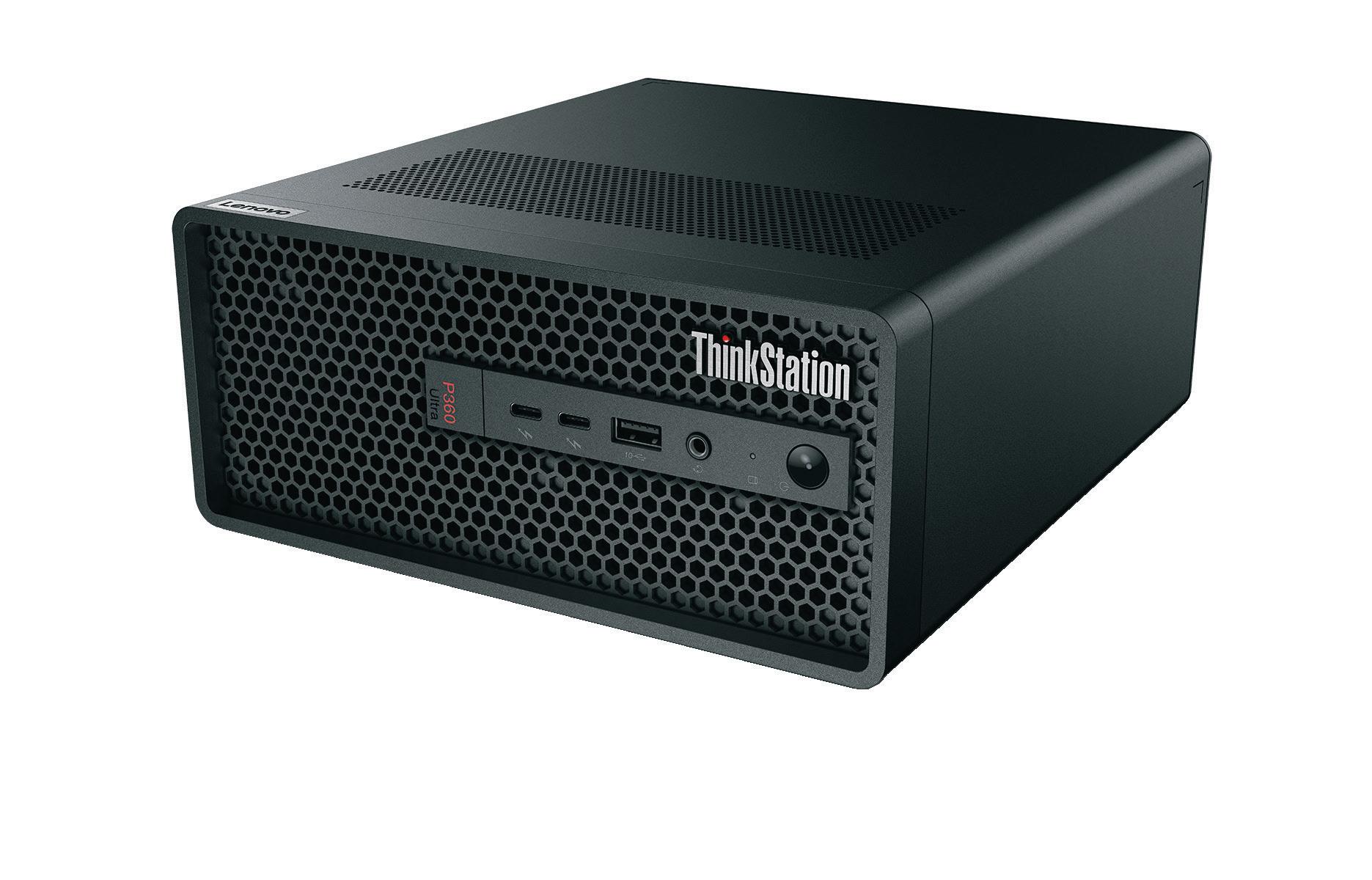

DEVELOP3D.COM FEBRUARY / MARCH 2023 55 HARDWARE REVIEW
P360 Ultra marks a big step forward for super compact desktop workstations
for example, as was the case with our test unit, memory speeds drop from 4,800MHz to 4,000MHz, as per Intel’s design specification.
CORE PERFORMANCE

Our test machine was tuned more towards CPU- than GPU-intensive workloads. It features a top-end Intel Core i9-12900K (8 P-cores / 8 E-cores), an entry-level Nvidia T400 (4GB) GPU, 64 GB of DDR5 4800 memory and a single 1 TB M.2 NVMe SSD.
We experienced excellent all-round performance in single threaded and lightly threaded CAD workflows. In Revit, Inventor and Solidworks, it was a touch faster than the HP Z2 Mini G9 and its Intel Core i7-12700K (see DEVELOP3D’s Workstation Special Report 2022 - www. develop3d.com/magazines). It extended its lead over the HP machine in our multithreaded rendering tests, thanks in part to the four additional E-Cores. In V-Ray, Cinebench and KeyShot it maintained an all P-Core frequency of 3.99MHz, hitting 4.40MHz in the early stages of a render.
Compared to a liquid cooled tower fitted with the new Intel Core i9-13900K CPU, single threaded and multi-threaded performance was notably lower. However, with this new top-end processor boasting superior Instructions Per Clock (IPC), higher clock speeds and four additional E-Cores, this was to be expected.
The surprise came when comparing the ThinkStation P360 Ultra to an older Intel Core i9-12900K-based tower with liquid cooling. It even outpaced the Scan 3XS GWP-ME A124C we reviewed in March 2022 (www.tinyurl.com/Scan12thGen) in many single threaded and lightly threaded workflows, and it wasn’t that far behind it in multi-threaded render tests. However, there’s an element of comparing apples to pears here, as the ThinkStation P360 Ultra uses faster DDR5 memory, compared to Scan’s DDR4.
Delving a bit deeper into the benchmarks, we noticed some slower
than expected scores. Some of these can be explained by memory speed (for example, recompiling shaders in Unreal Engine is particularly sensitive to memory bandwidth), others by Windows 10 and its tendency to sometimes assign processes to cores incorrectly using Thread Director. We identified several processes that only ran on the slower E-Cores (and not on the faster P-Cores, as one would want). This includes simulation in Solidworks, recompiling shaders in Unreal Engine and drawing production in Autodesk Inventor. While this was easily ‘fixed’ by changing CPU priority in the excellent third party tool, Process Lasso, it reinforces the importance of running Windows 11 on workstations with Intel’s hybrid processor technology. These performance issues were not seen in any of the Windows 11-based workstations be tested recently.
Fan noise was noticeable, but acceptable. In single-threaded CAD applications there was a gentle hum. There was a natural increase in volume in multi-threaded rendering applications. However, in tools like Leica Cyclone Register 360 where the loads on different cores continually change, fan speeds increased and decreased with some frequency which some may find annoying.
3D PERFORMANCE
Considering the graphics potential of this machine, we were a little underwhelmed by the supplied Nvidia T400 (4GB). This is very much an entry-level CAD GPU, best suited to small to medium sized assemblies. While 3D benchmark scores in Revit, Inventor and Solidworks
were significantly lower than any other machine in last issue’s Workstation Special Report, we still found it delivered a perfectly good experience at FHD resolution. In Solidworks 2023, for example, testing with a 3.6 million triangle computer model, delivered a smooth 51 FPS in shaded with edges mode and 39 FPS with RealView enabled.
As you can imagine, the Nvidia T400 is nowhere near powerful enough for visualisation work and the system became unusable in many of our tests, especially at 4K resolution.
THE VERDICT
The ThinkStation P360 Ultra marks a big step forward for super compact desktop workstations. As product designers and engineers extend their workflows beyond pure CAD, they no longer need to resort to bulkier towers to meet their increased performance demands.
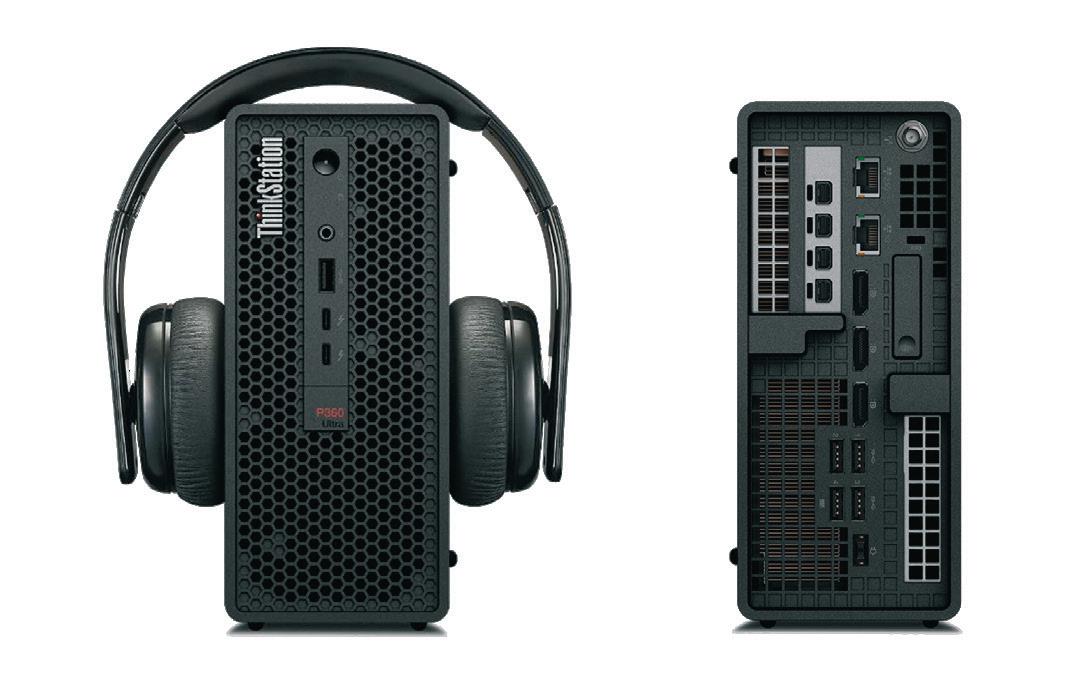
The biggest advancement is arguably the ability to configure the machine with an Nvidia RTX A5000, albeit a laptop variant with a slightly lower performance profile. This opens up the super compact workstation to graphics hungry workflows like real time viz and GPU rendering that simply weren’t feasible in the past with a machine of this size.

Meanwhile, 128 GB of memory is still a fairly niche requirement, but it will certainly be welcomed by some of the more demanding design and engineering professionals, particularly in simulation where datasets can be huge. Importantly, with four SODIMM slots, users can start with less memory and add more in the future, as needs change.
From a pure CAD perspective, there are smaller machines that will probably do just as good a job in applications like Revit and Inventor. But the beauty of the ThinkStation P360 Ultra is that it can cover such a wide range of workflows. And from an IT management perspective, particularly among larger firms, that can be a big plus.
56 FEBRUARY / MARCH 2023 DEVELOP3D.COM
Check out this first look video www.tinyurl.com/P360-ultra HARDWARE REVIEW
As product designers / engineers extend their workflows beyond pure CAD, they no longer need to resort to bulkier towers to meet their increased performance demands
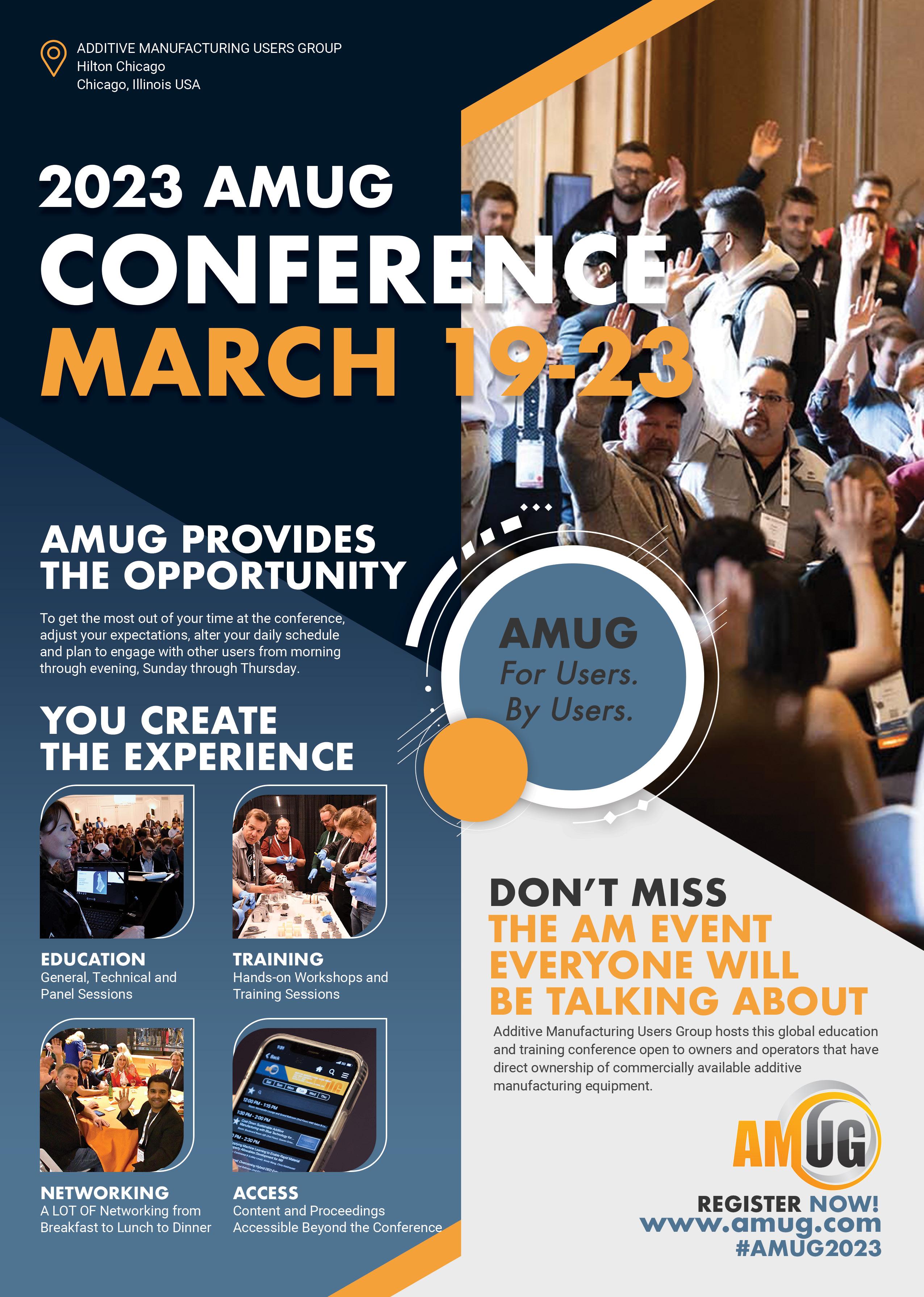
The recent arrival of his baby son brought Stephen Holmes into contact with a pretty mundane piece of hospital equipment. It’s got him thinking about the comfort of familiar objects during challenging times

The arrival of my first-born was not the moment I had down as inspiring an ode to a hospital hot drinks cart, but here we are.
Most of my December days were spent as a visitor to our local maternity ward, while my wife received postnatal treatment following the birth of our son. Book-ended by winter darkness, the days indoors were long ones. The two patients, both of whom slept for the majority of the time, left me with long stints of time alone, spent reading or exploring the ward’s corridors. Not that there was much to find. The festive period meant that the usual flurry of activity was reduced. The cafes and canteens had shut their doors. On Christmas Eve, the limited number of vending machines were all pillaged by the arriving night shift. They weren’t restocked until well after Boxing Day, which is where my dependence on the hot drinks trolley became a ritual that provided both sustenance and markers of the time that had passed.
The trolley’s grey sheet metal and red industrial twist shut-off knobs (used to deposit shots of instant coffee or sugar) gave it an air of Bauhaus. The name of the ‘Ultrakart’ and the font used to display this name were both equally Germanic.
I visited the Ultrakart multiple times, day and night. It was a bastion of functionality, parked in a corridor, where weary birth partners would congregate. Some were still adrenaline-fuelled by the appearance of their child moments earlier; others were ashen-faced, having spent days maintaining a positive demeanour in front of their child’s mother.
Stepping out into the corridor to pour hot drinks into small, beige plastic cups
gave us all a moment to ourselves, a brief period of reflection in which to process what was going on.
COMFORTING FAMILIARITY
In my working life, I spend a lot of time listening to designers talking about cutting-edge technologies, about shaping the future with digitally enhanced products and explaining the lengths to expertly hone a product’s functionality based on their observations of user behaviour. As is to be expected, the hospital was awash with such equipment – monitors, beds, instruments and more.
Nearly everything there beeped and bleeped. Nearly everything had been built via this process: watched in its function as part of a workflow, buttons exactly judged, mouldings and materials thoughtfully considered. Everything about these objects had been impeccably thought-through by their designers.
During those long hours, I wondered how much user-centred research, intrinsic ergonomic analysis and iterative prototyping had gone into making my new favourite trolley. Given that it was made of bent sheet metal and pre-existing parts bolted onto a wheelie cart with a water heater slapped on top, I quickly concluded it was not a huge amount. Apart from the caffeine, that’s what grabbed my attention. It offered simplicity in a world governed by medical professionals and procedures. It made you feel not entirely useless at a point when you were not in control of the situation.
Sometimes reassurance is what’s needed in a taxing situation, one in which you find yourself a very long way out of your comfort zone. Sometimes, this can be found in a physical product.
I think most of us have an example in our lives: an object that maybe isn’t the most advanced of its type, that we’ve held on to well past its best days, or that isn’t even the best tool for the job, but which we plug on with anyway, because as humans, we’re capable of tying emotions to those inanimate objects. Typically, the more analogue, the better.
The hospital drinks trolley couldn’t conjure up a fancy double espresso with a big glug of bourbon, which certainly would have been welcome on more than one occasion. But I was so enamoured with it at the time that I took a photo of it on my phone, where it’s saved on my handset among the first images of my son.
Now that the delirium has passed, the pure and basic functionality of its design still stands out in my mind, even among all the literally lifesaving technologies we came into contact with during those days.
So, if you are in any small part responsible for the design of the Ultrakart, then you have my thanks. I raise a small plastic mug of tea to you.
GET IN TOUCH: With the huge range of baby products on the market, Stephen has been immersed in research (some from D3D articles past), but now believes he’s prepared for every eventuality, except actual parenthood. On Twitter, he’s @swearstoomuch

58 FEBRUARY / MARCH 2023 DEVELOP3D.COM LAST
WORD
The Ultrakart in all its prosaic glory and ready for service on the local maternity ward
Standing at the Ultrakart gave us all a moment to ourselves, a brief period of reflection

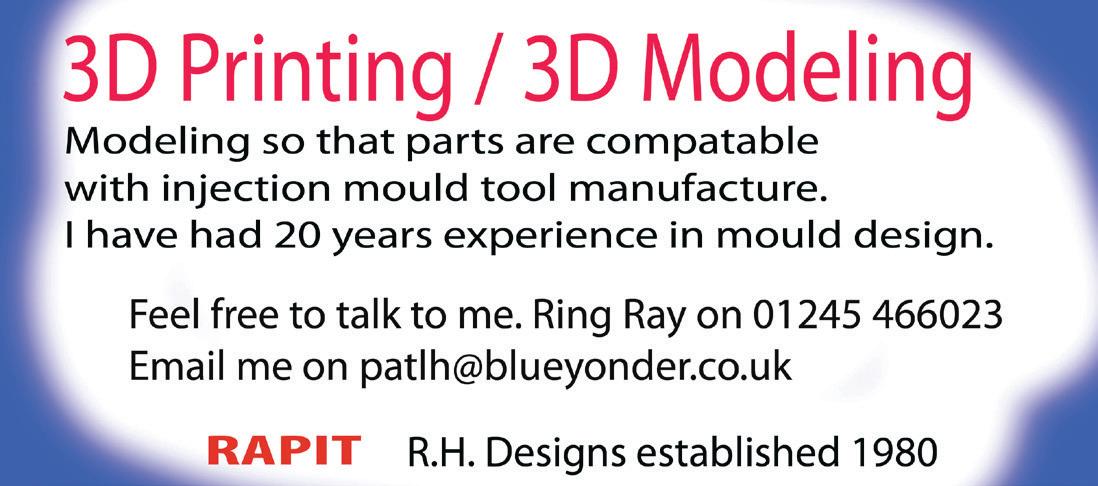


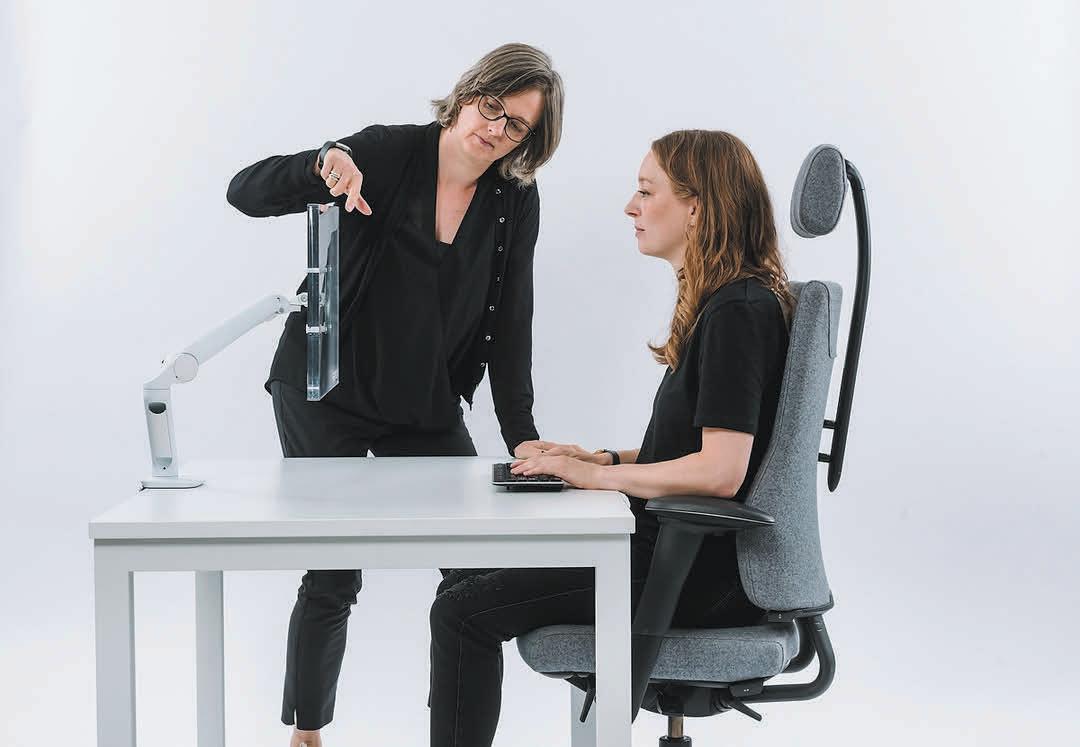


DEVELOP3D.COM FEBRUARY / MARCH 2023 59 DEVELOP3DSERVICES TO ADVERTISE YOUR SERVICES HERE CONTACT STEVE KING STEVE@X3DMEDIA.COM | +44 (0) 20 3355 7314 | +44 (0)7850 507362 Don't let your workstation cause you discomfort ergonomic chairs sit stand desks workplace assessments ergonomic accessories Bad back? We can help with: 0330 332 0880 www.posturepeople.co.uk Watch on-demand develop3dlive.com 2022 Register FREE now


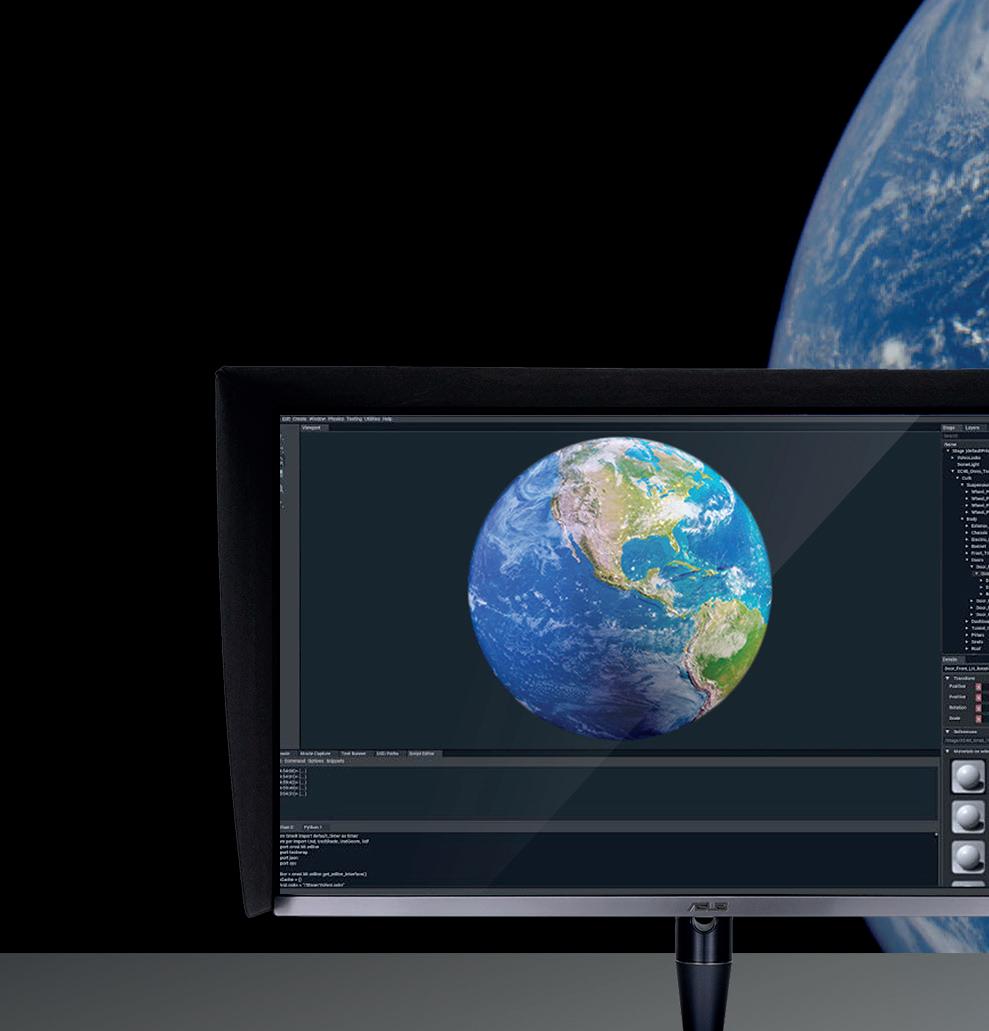
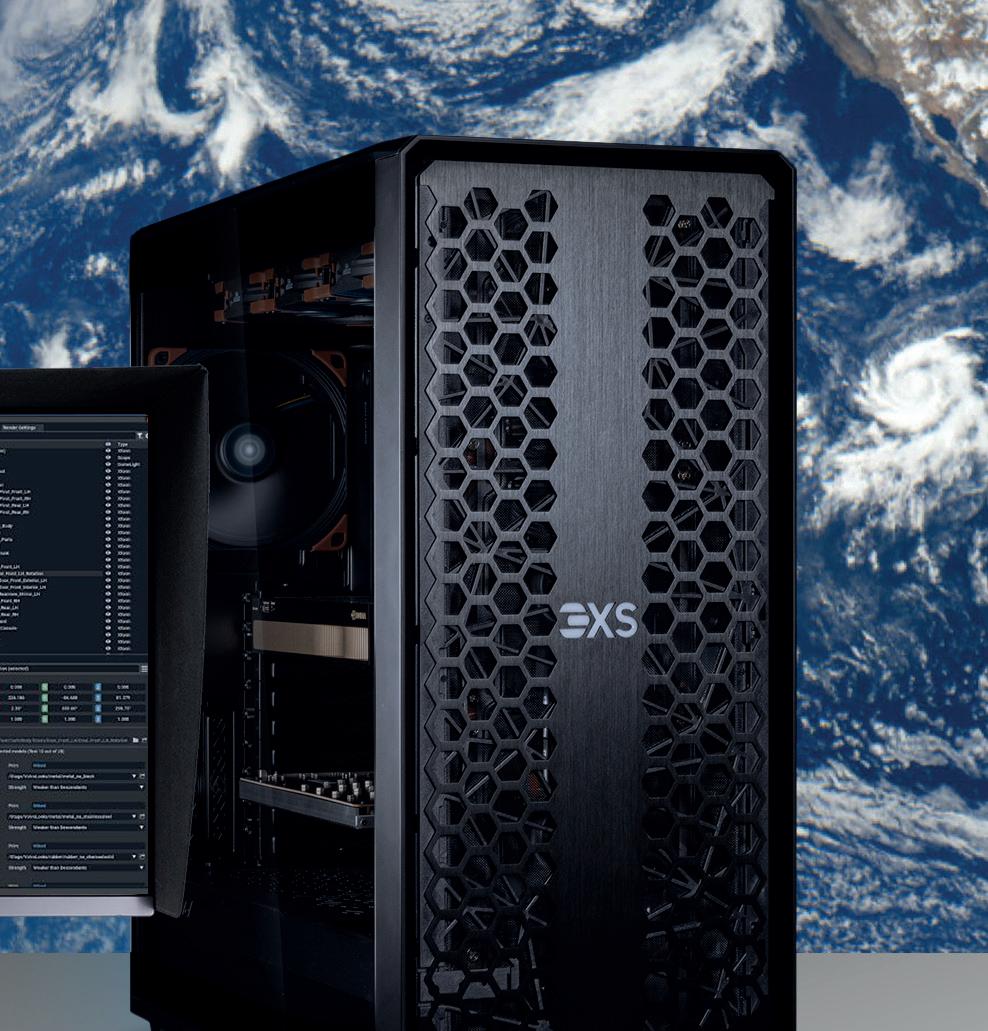



Discover your perfect workstation at • 01204 4 7 4 7 4 7 scan.co.uk/workstations Built for building digital twins 3XS workstations powered by the new NVIDIA RTX 6000 Ada GPU





















































































































































































































































































































































































































































